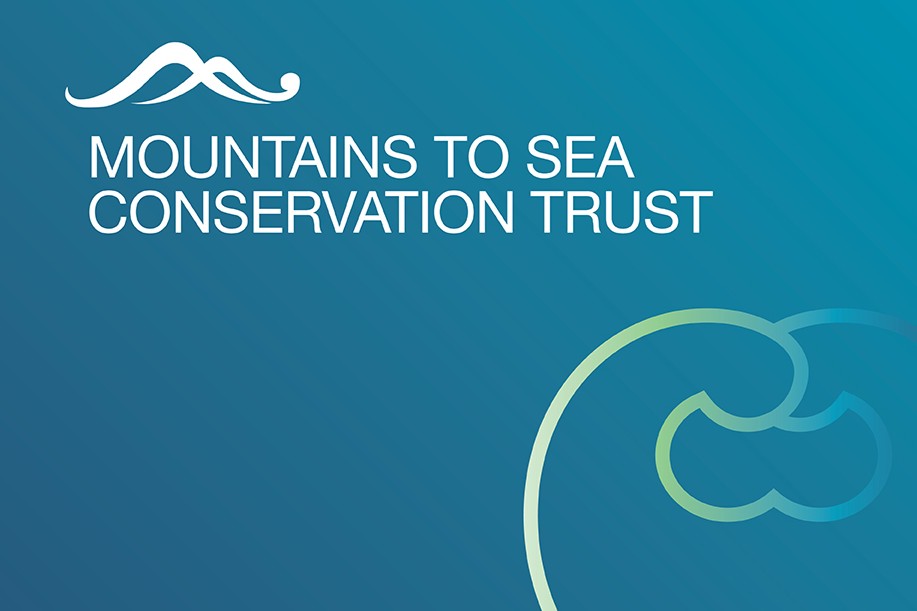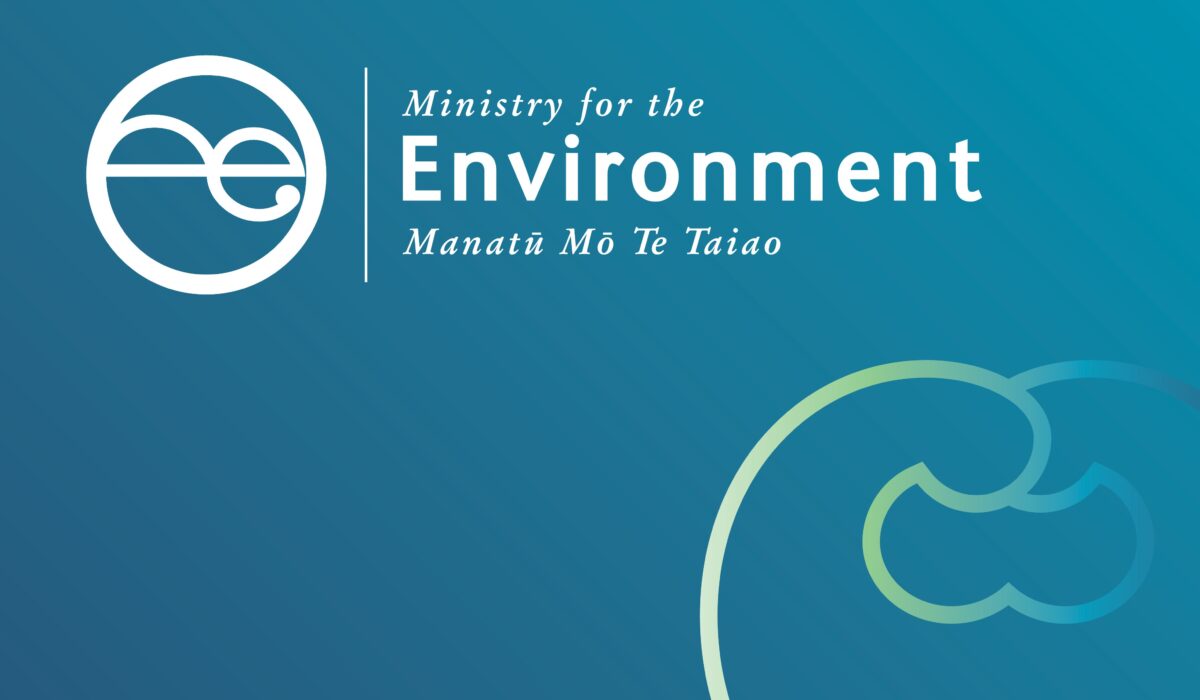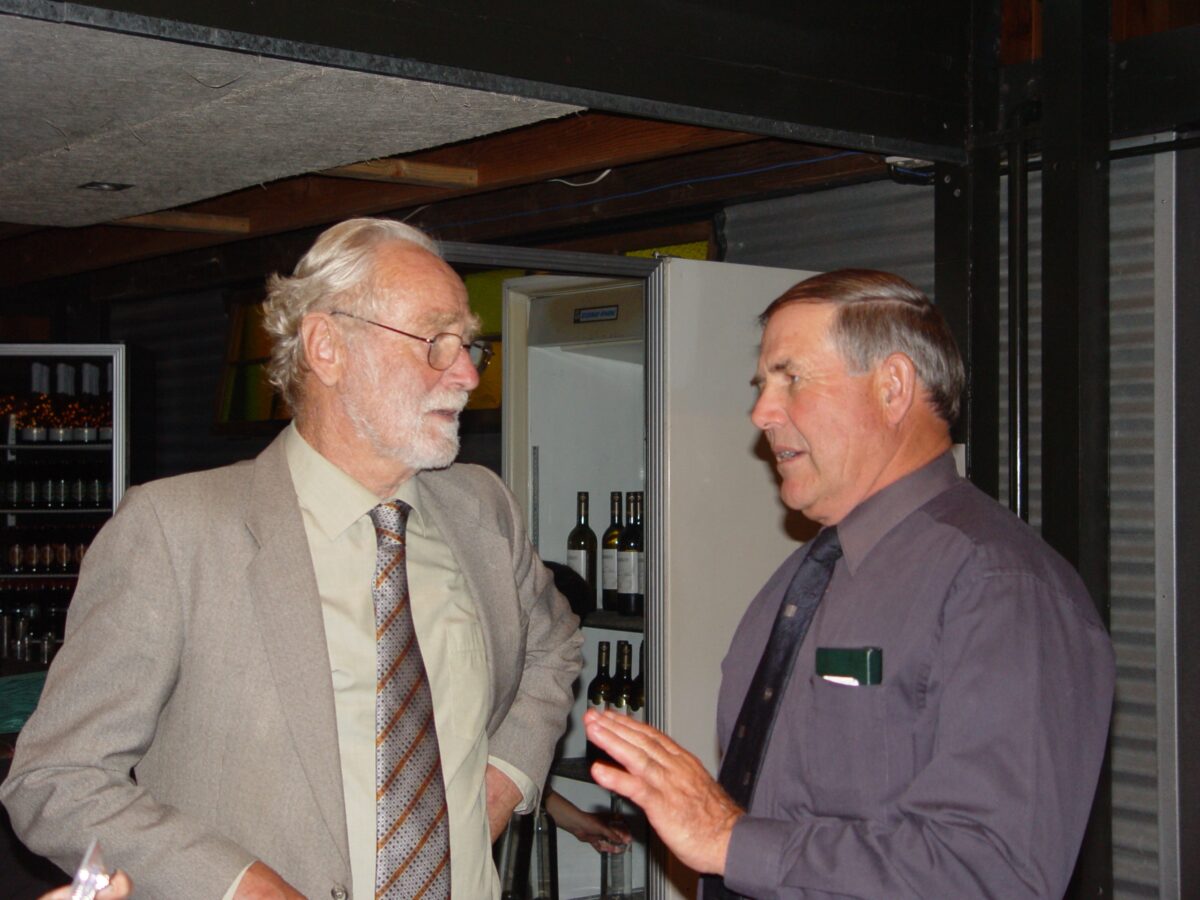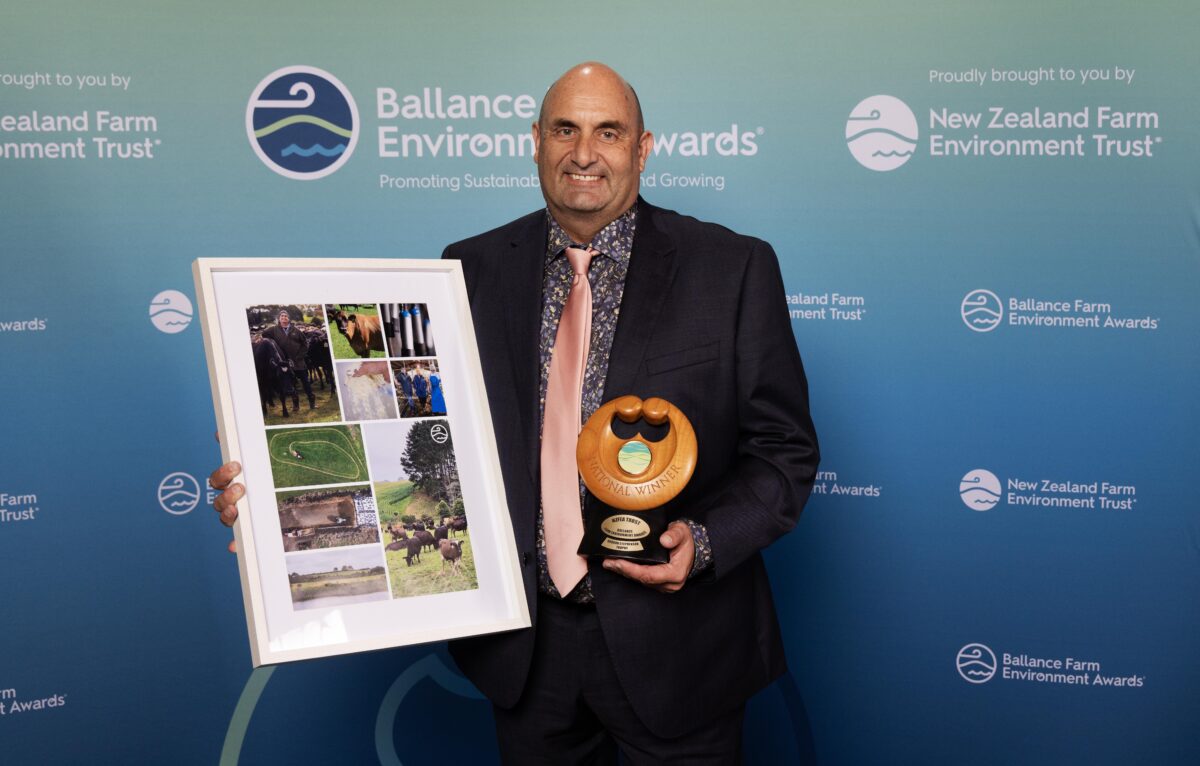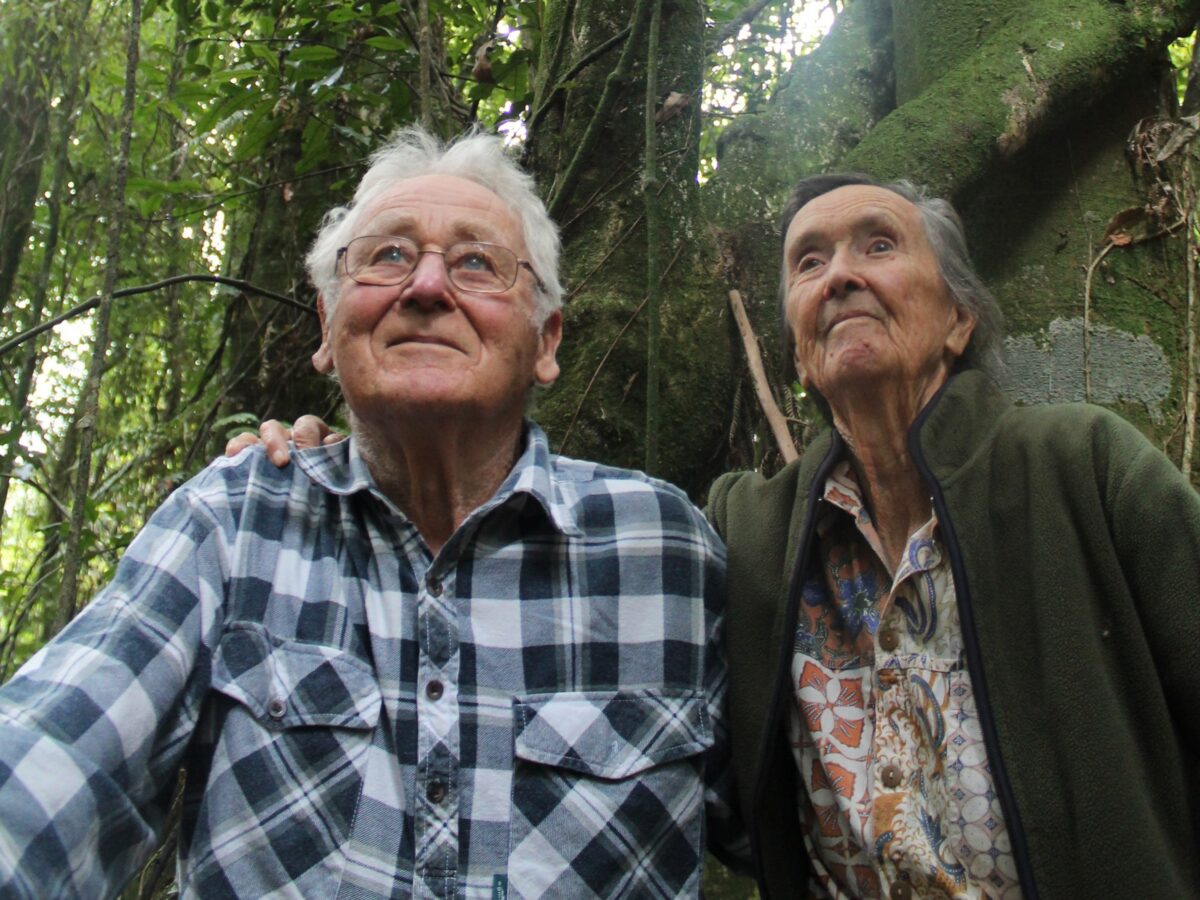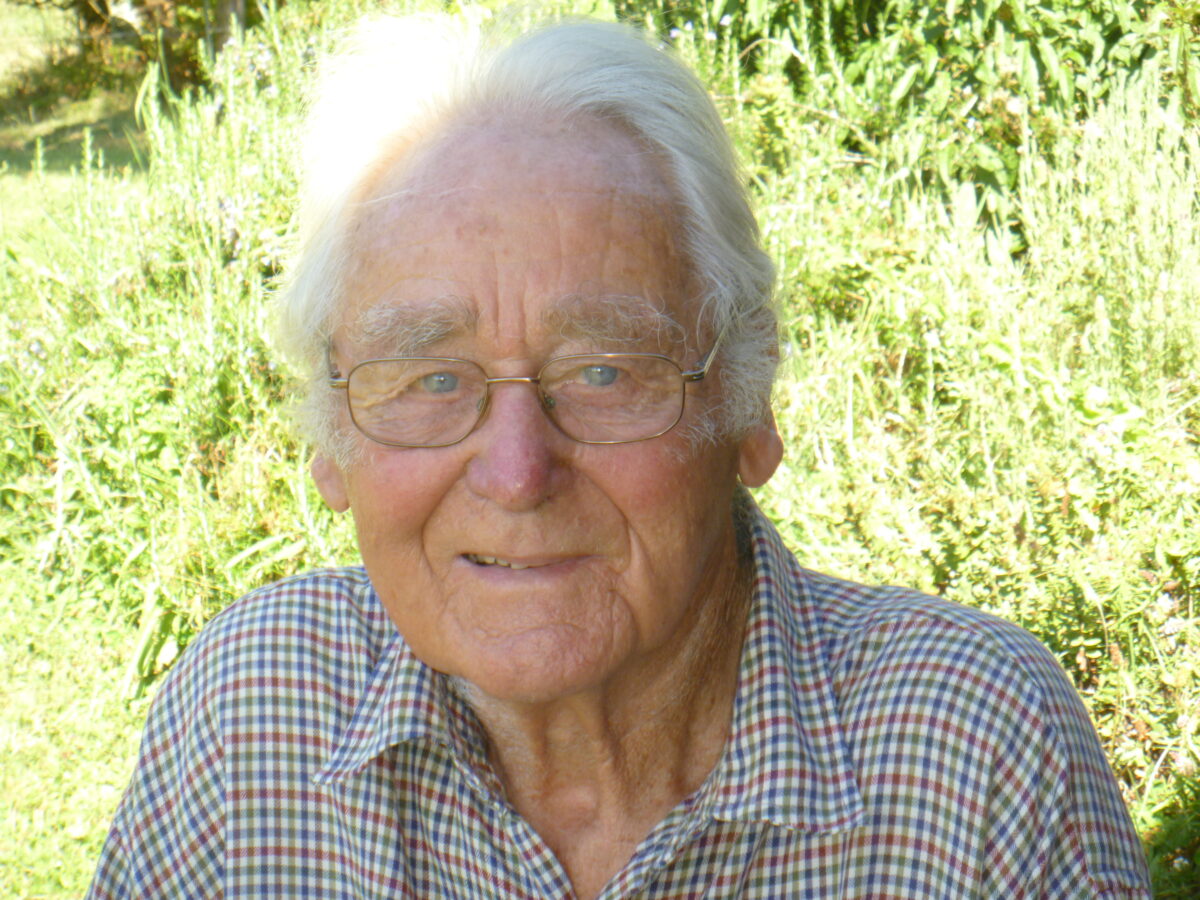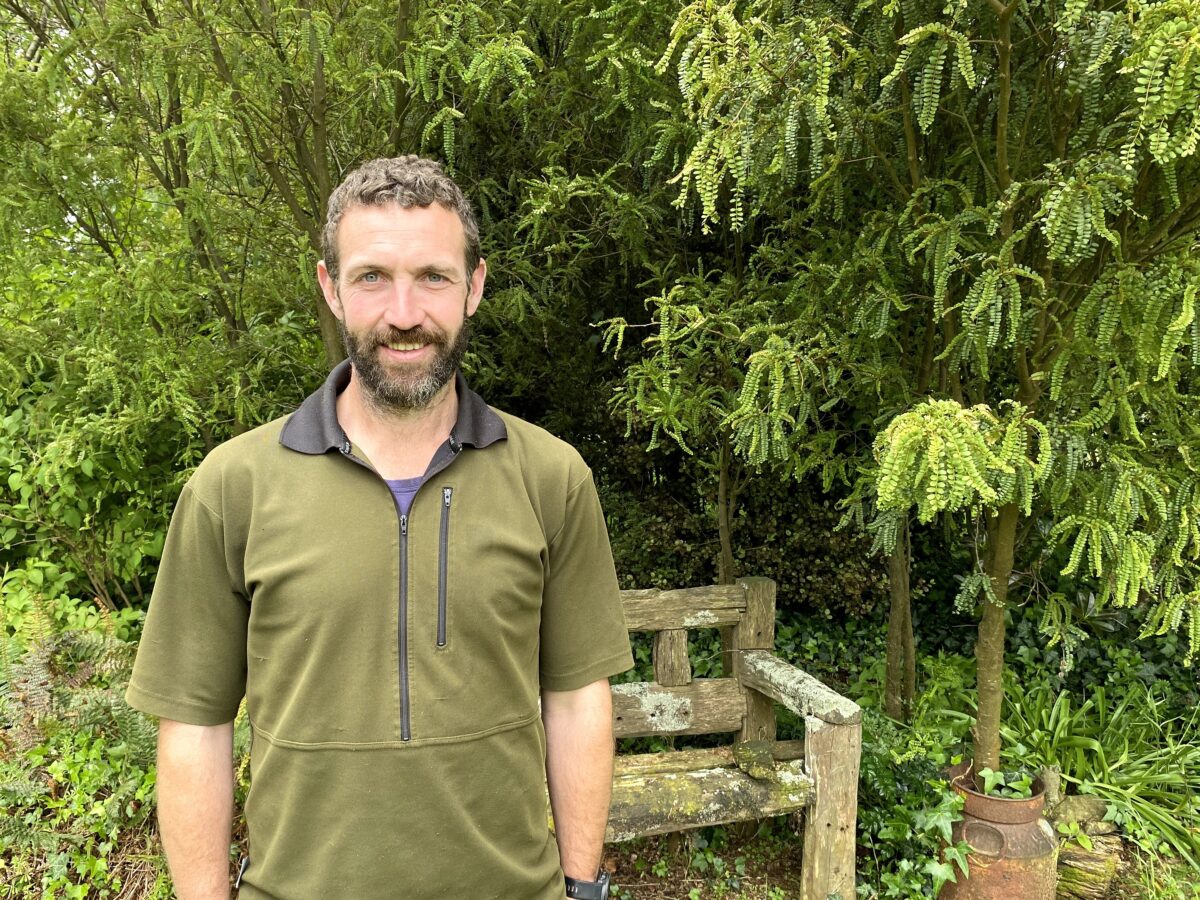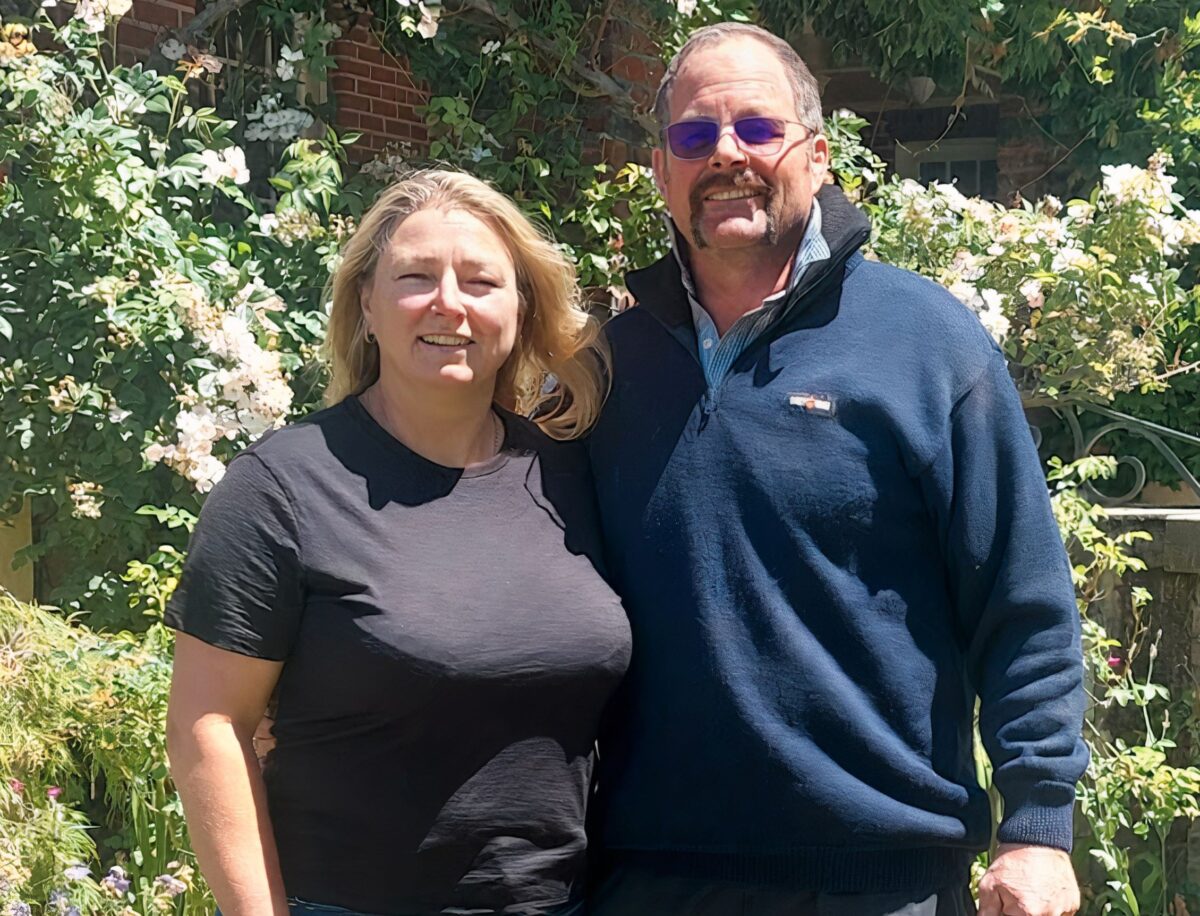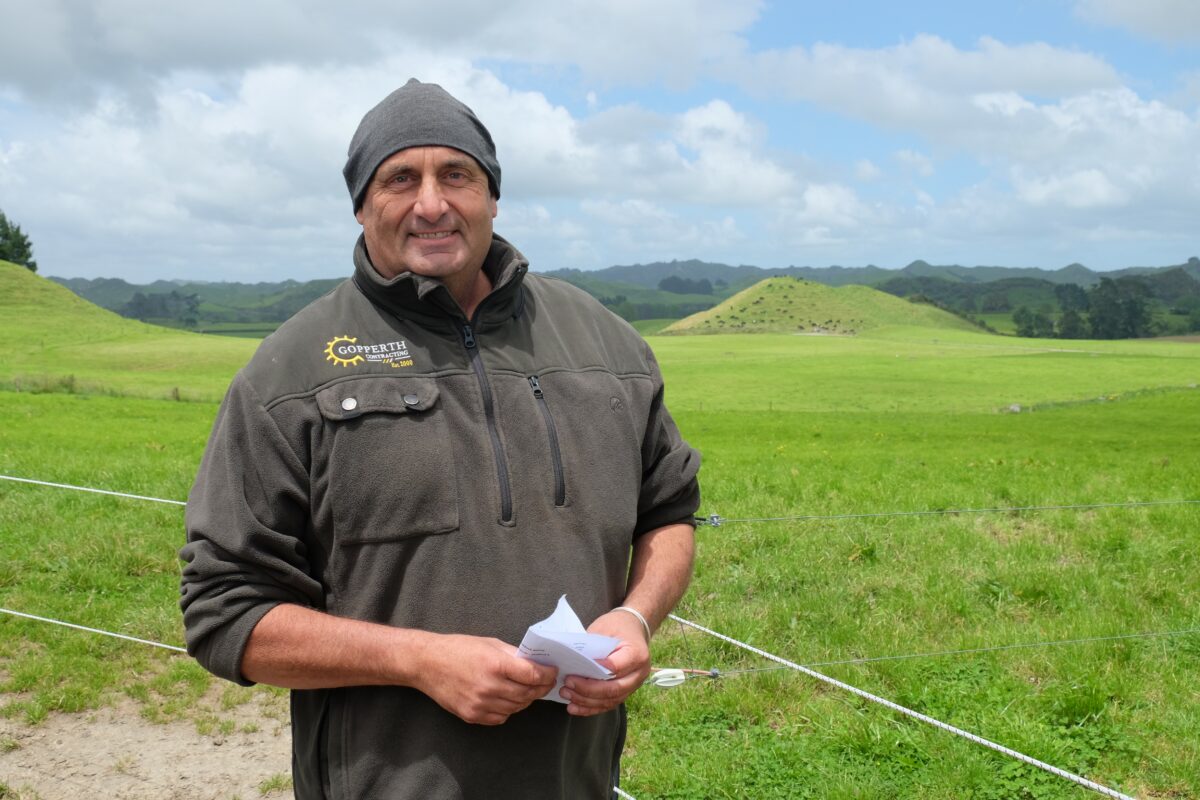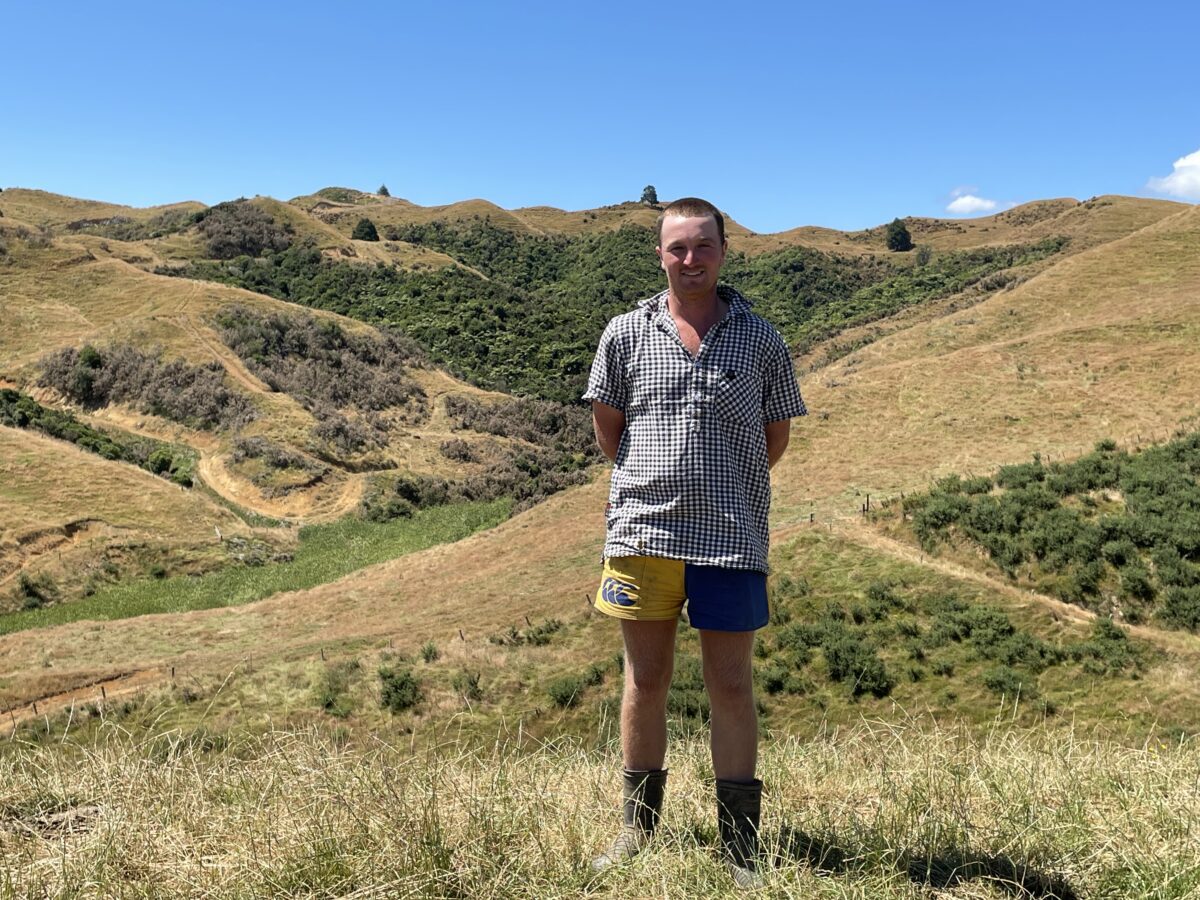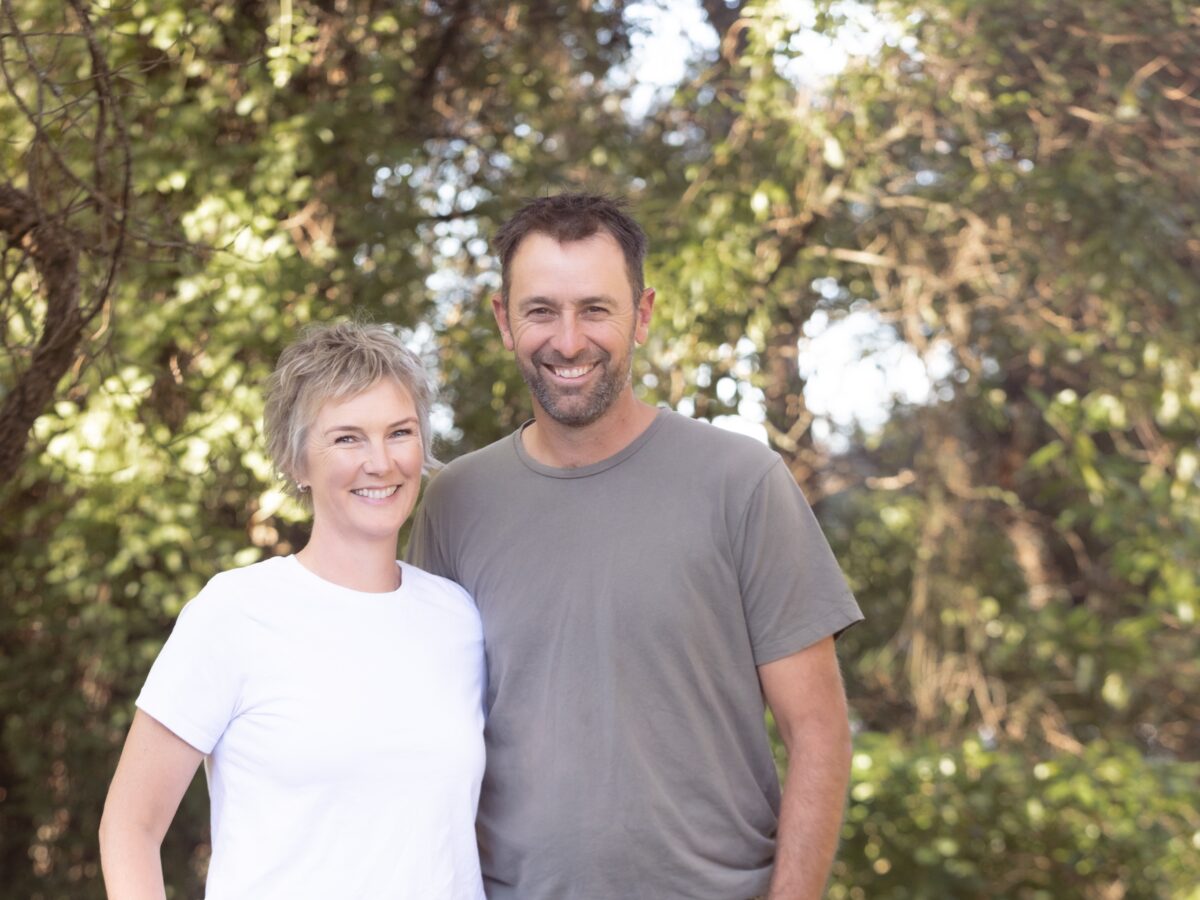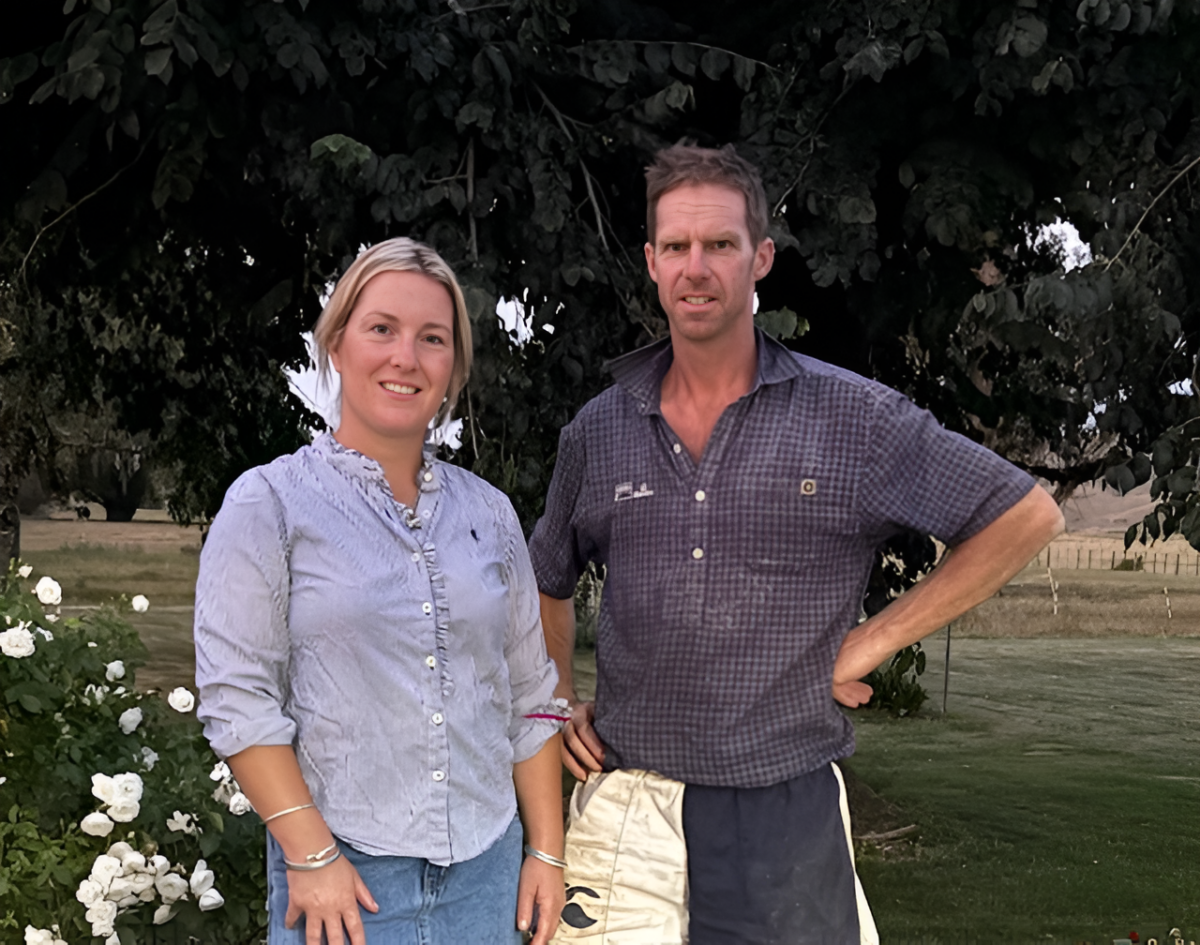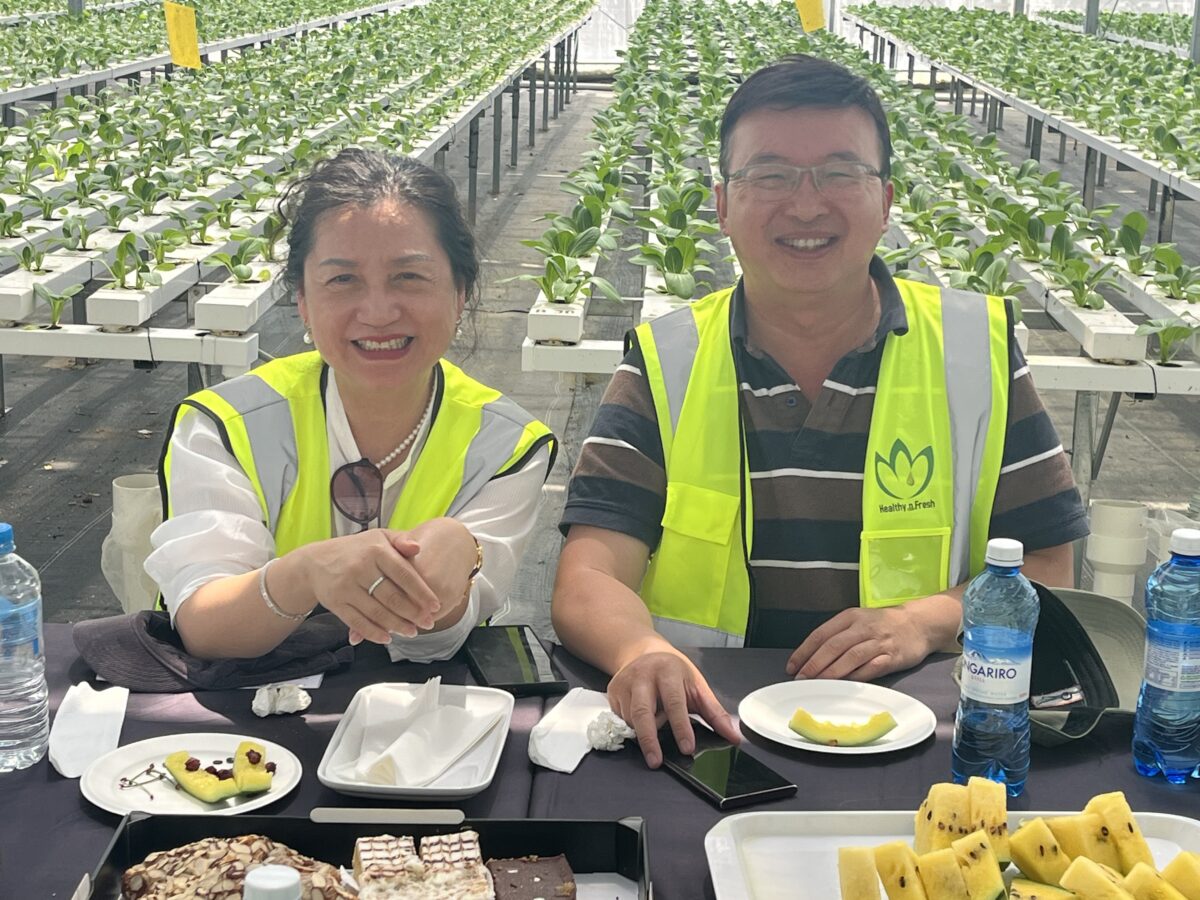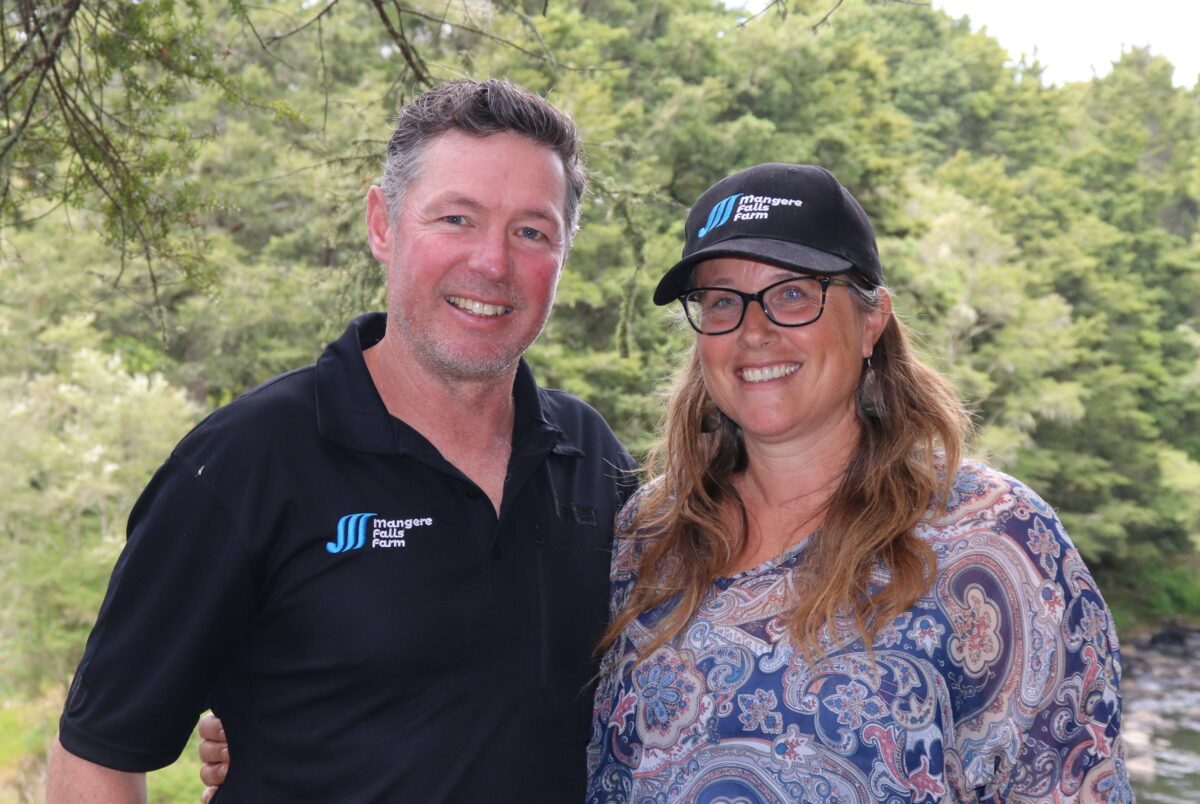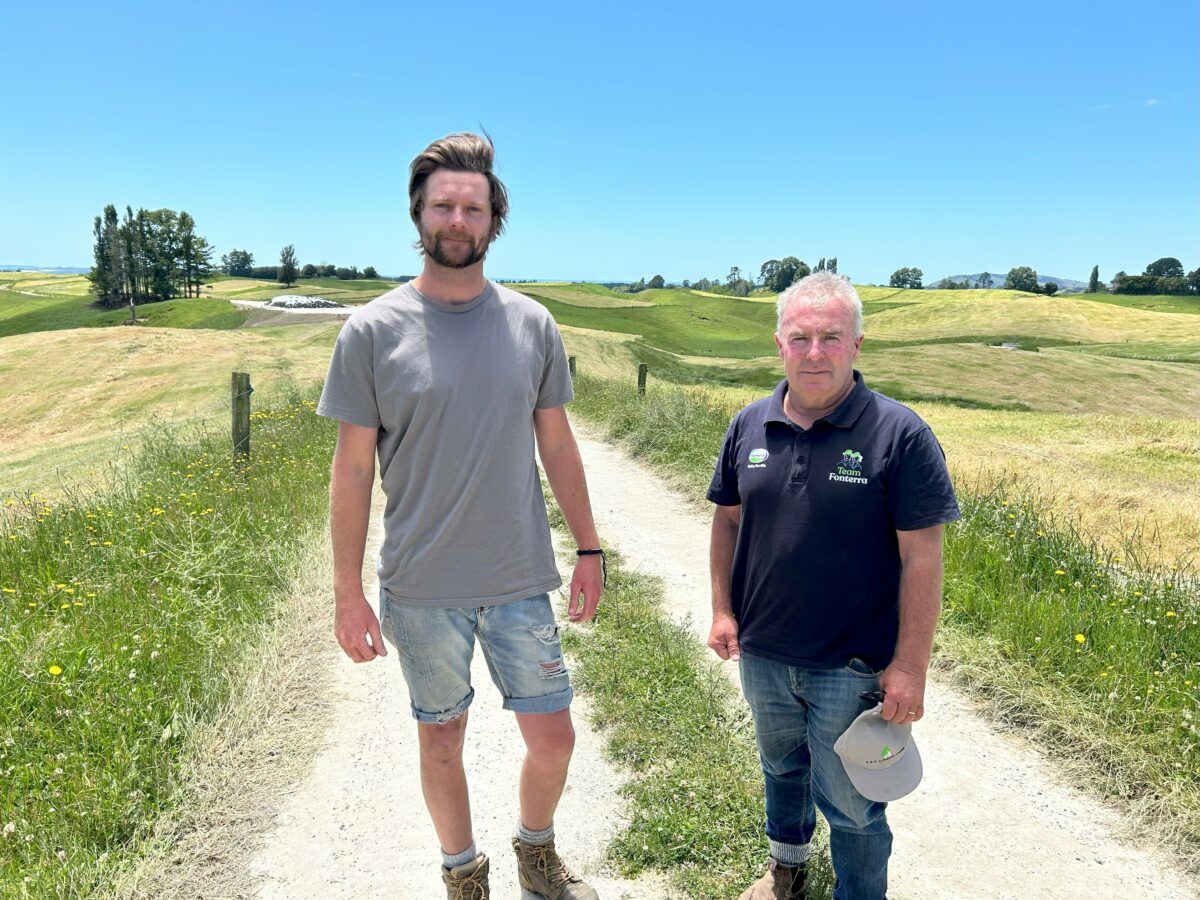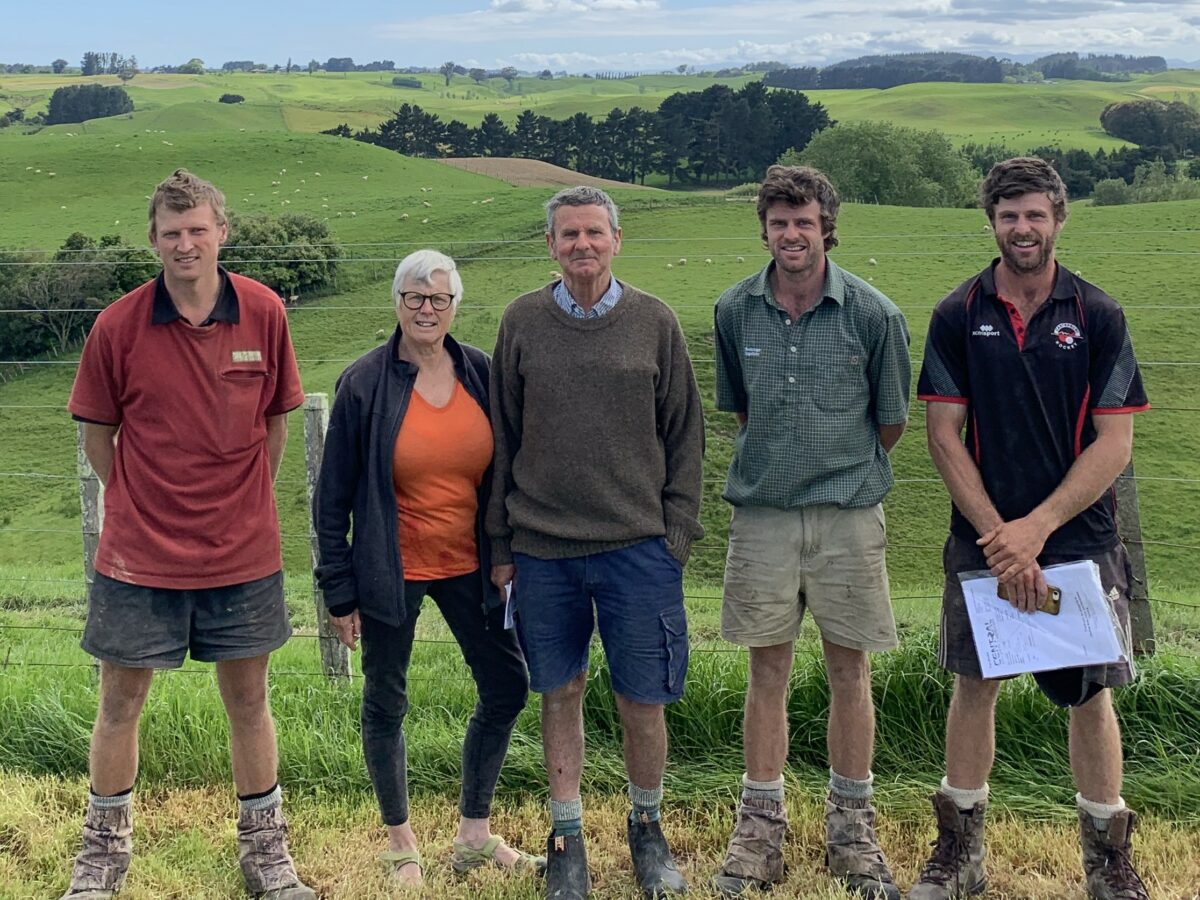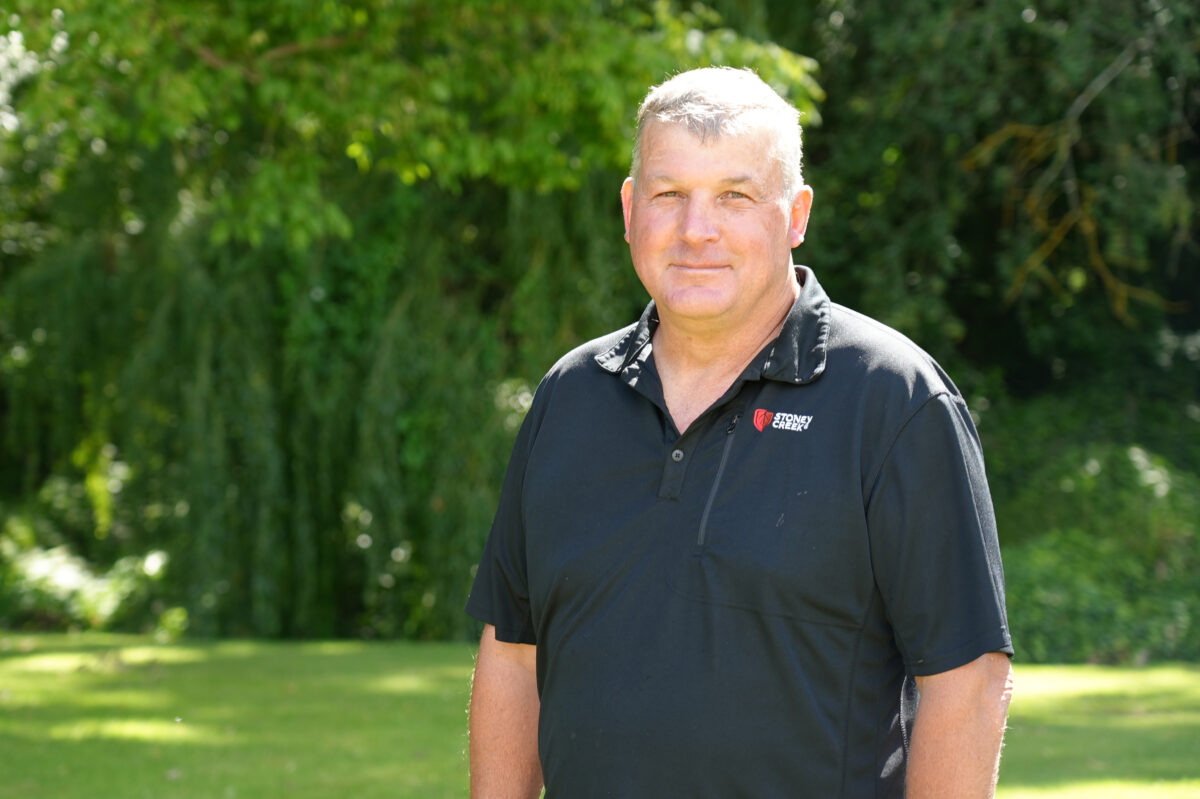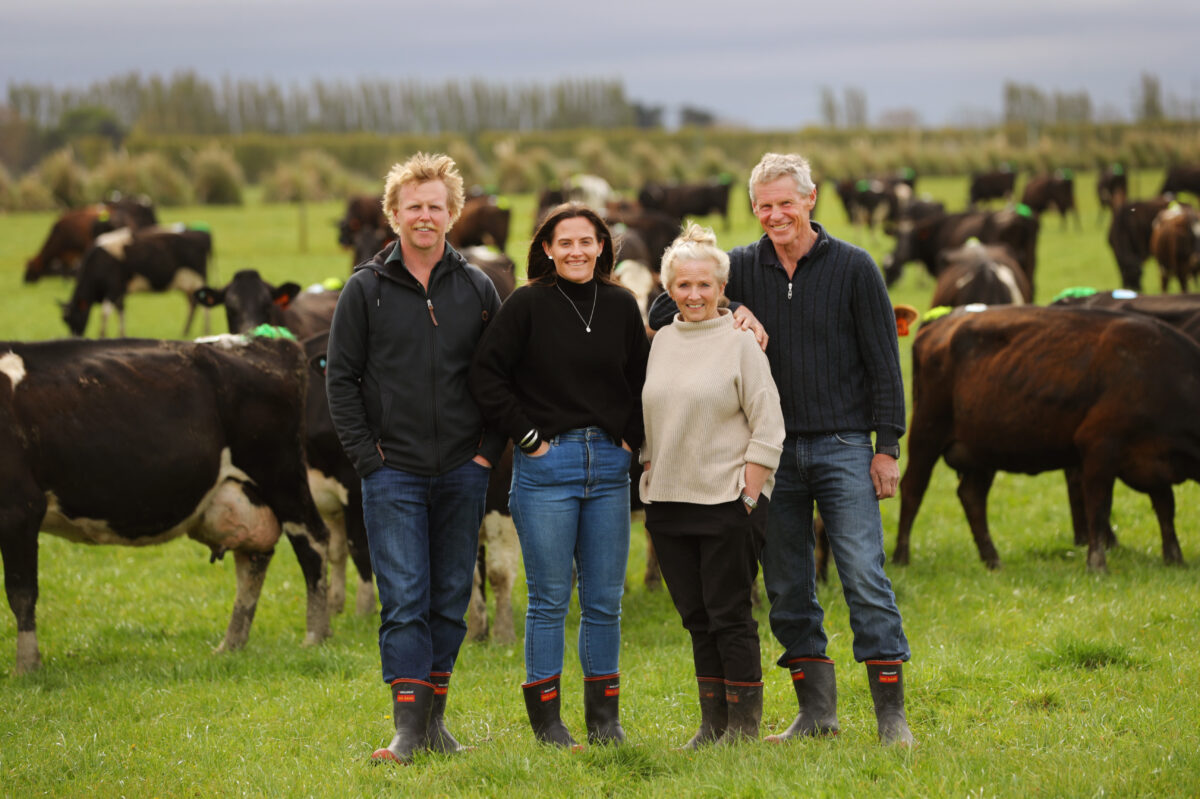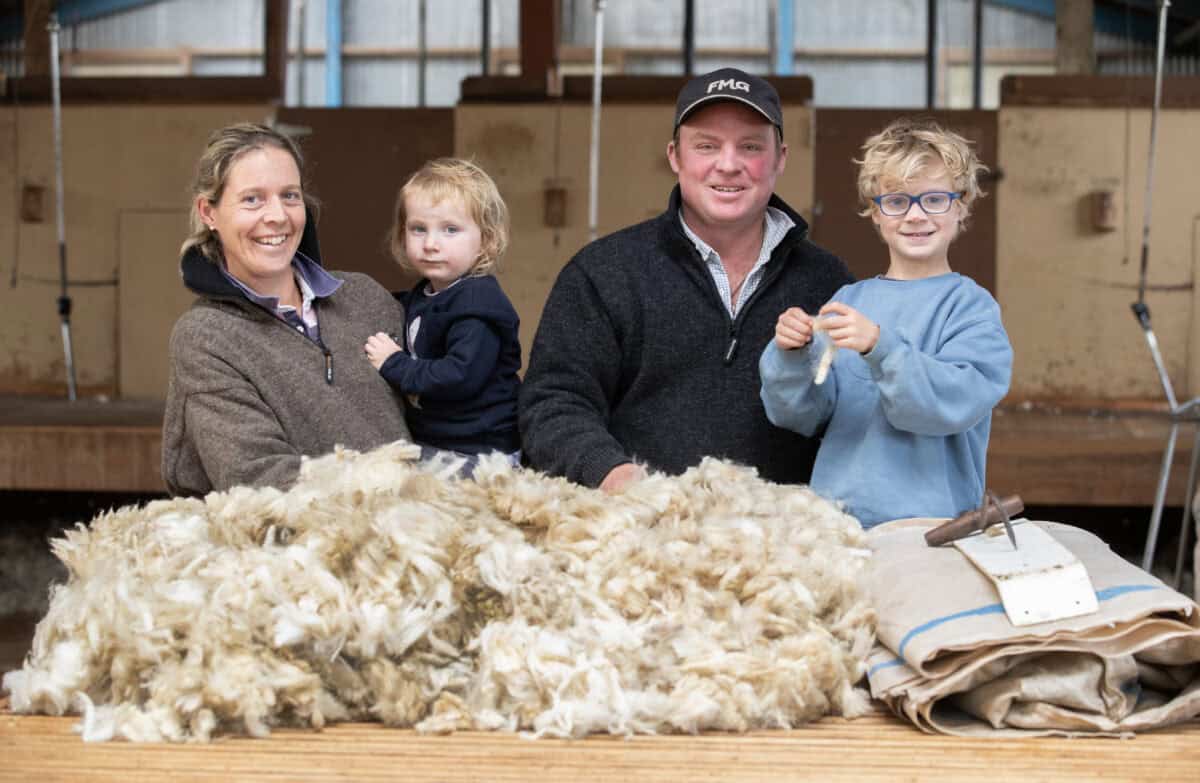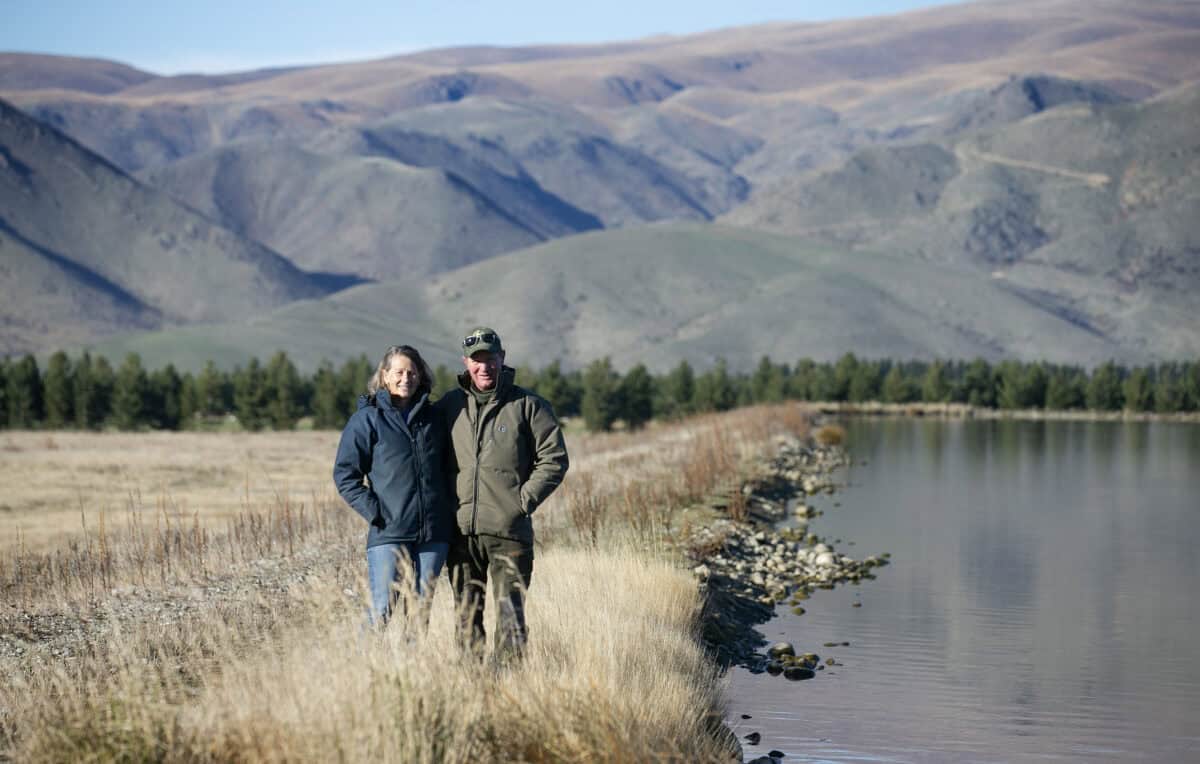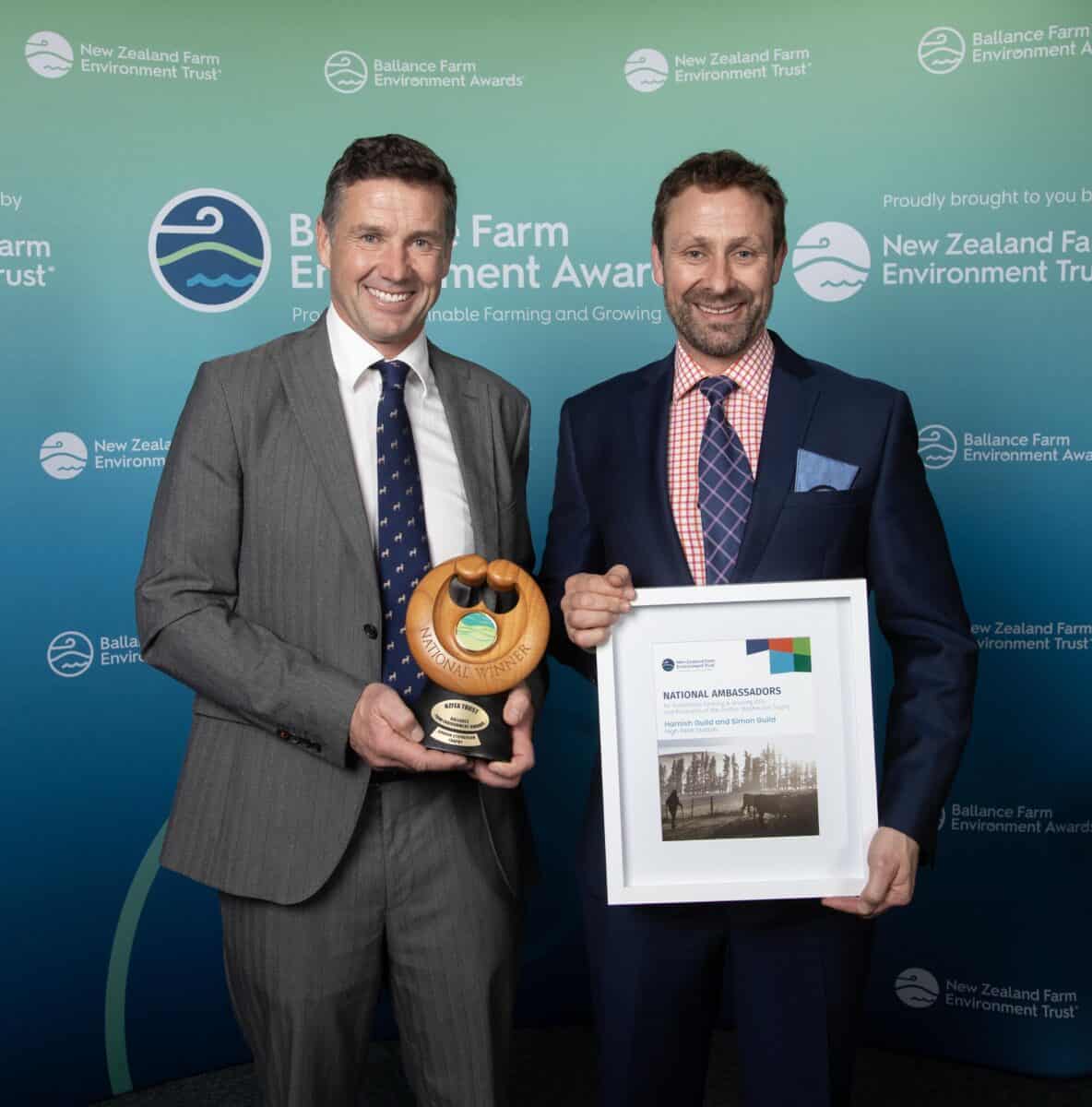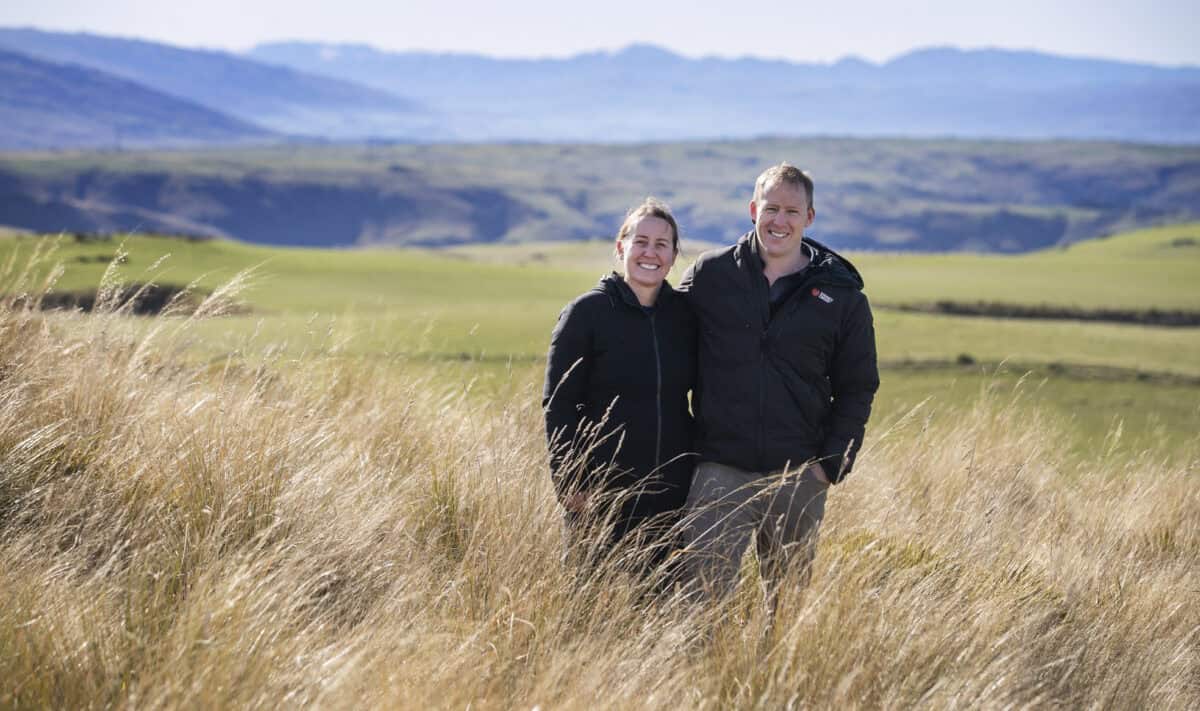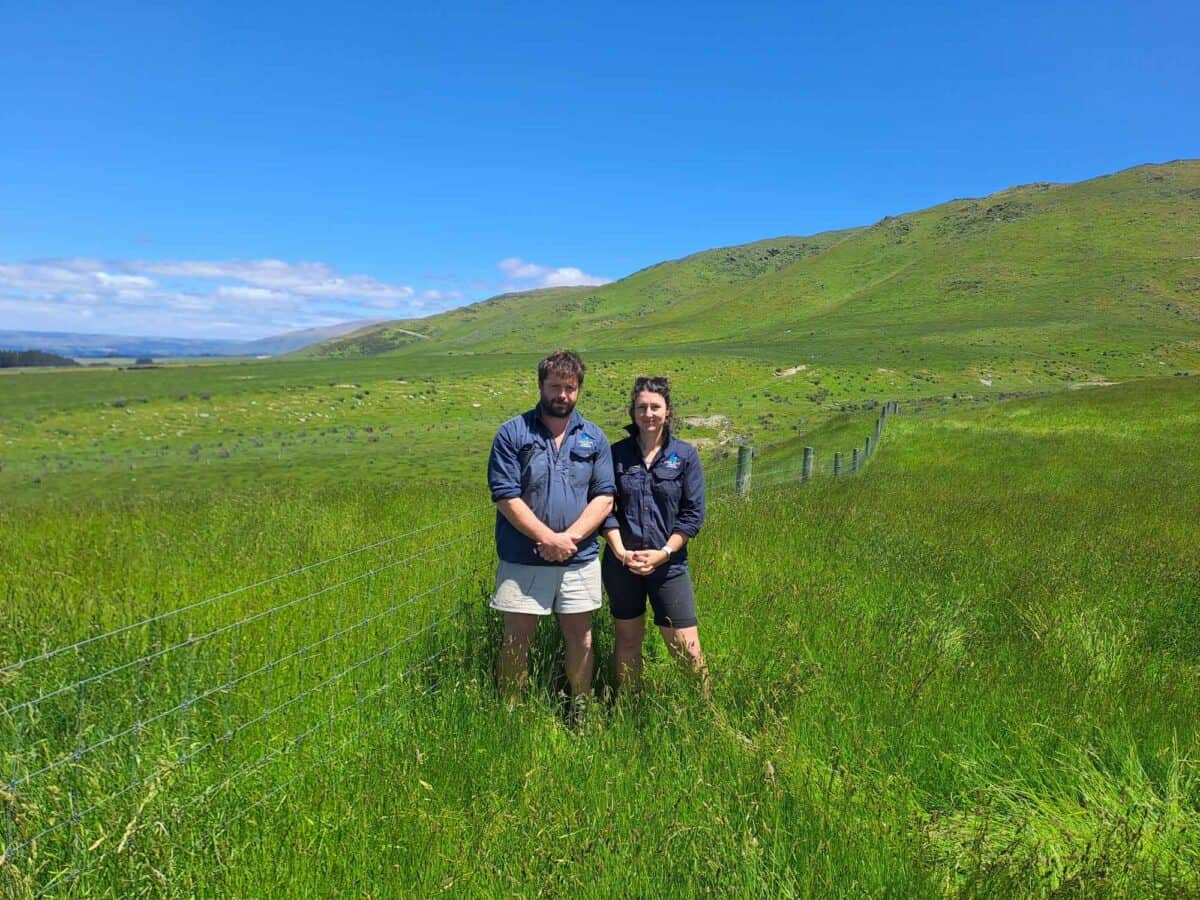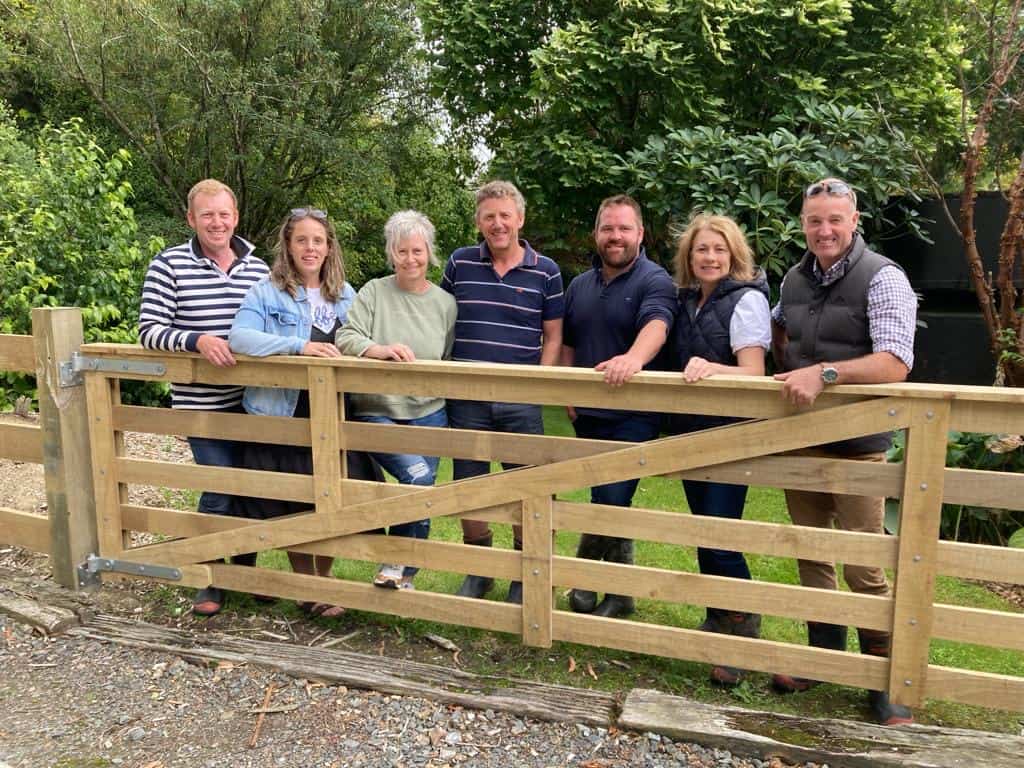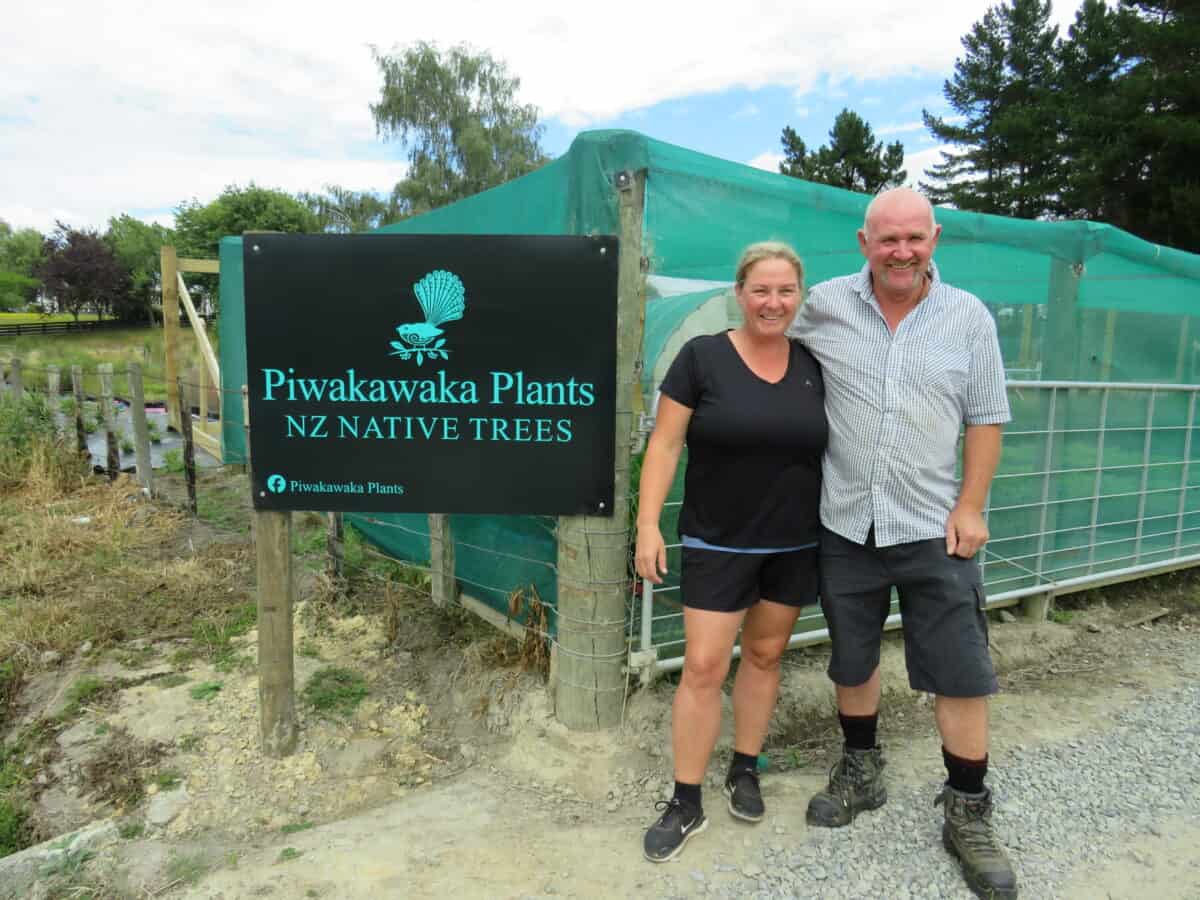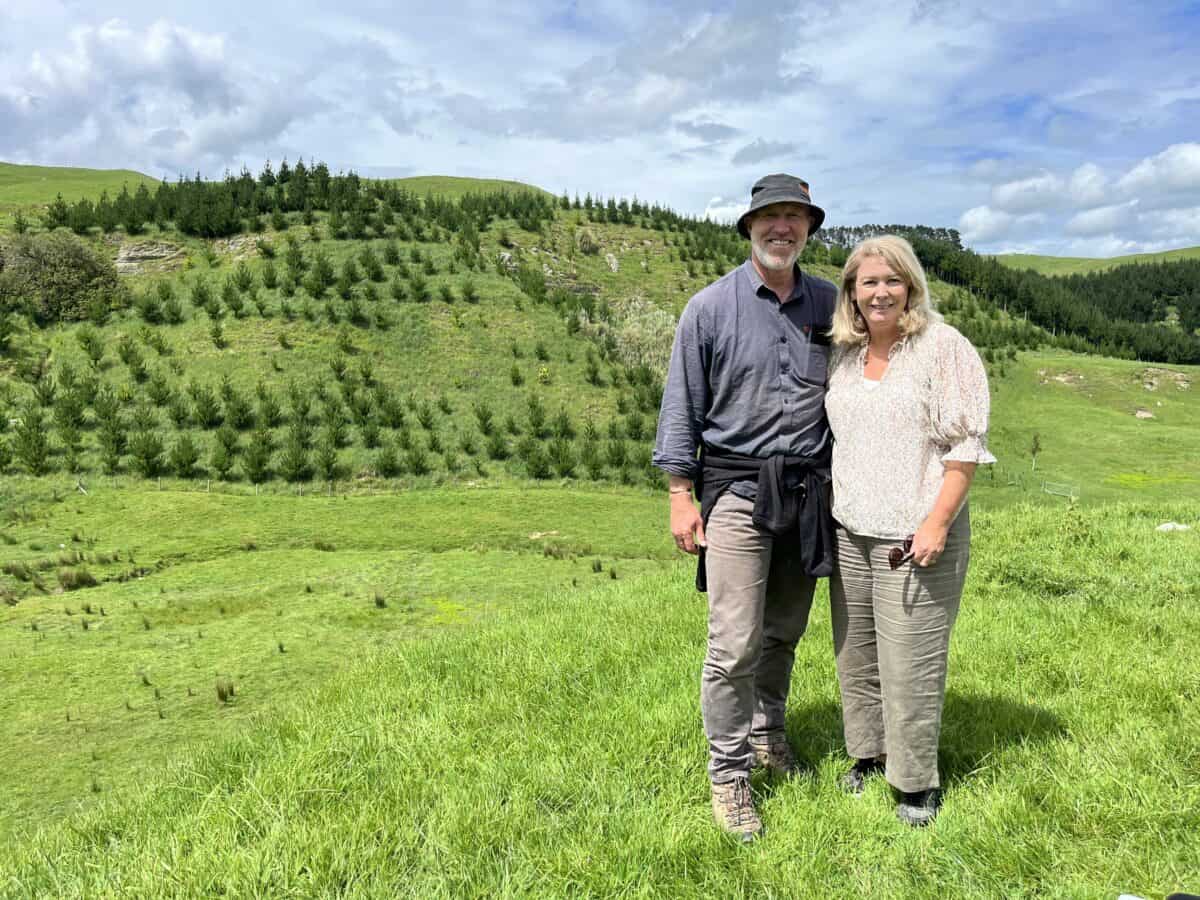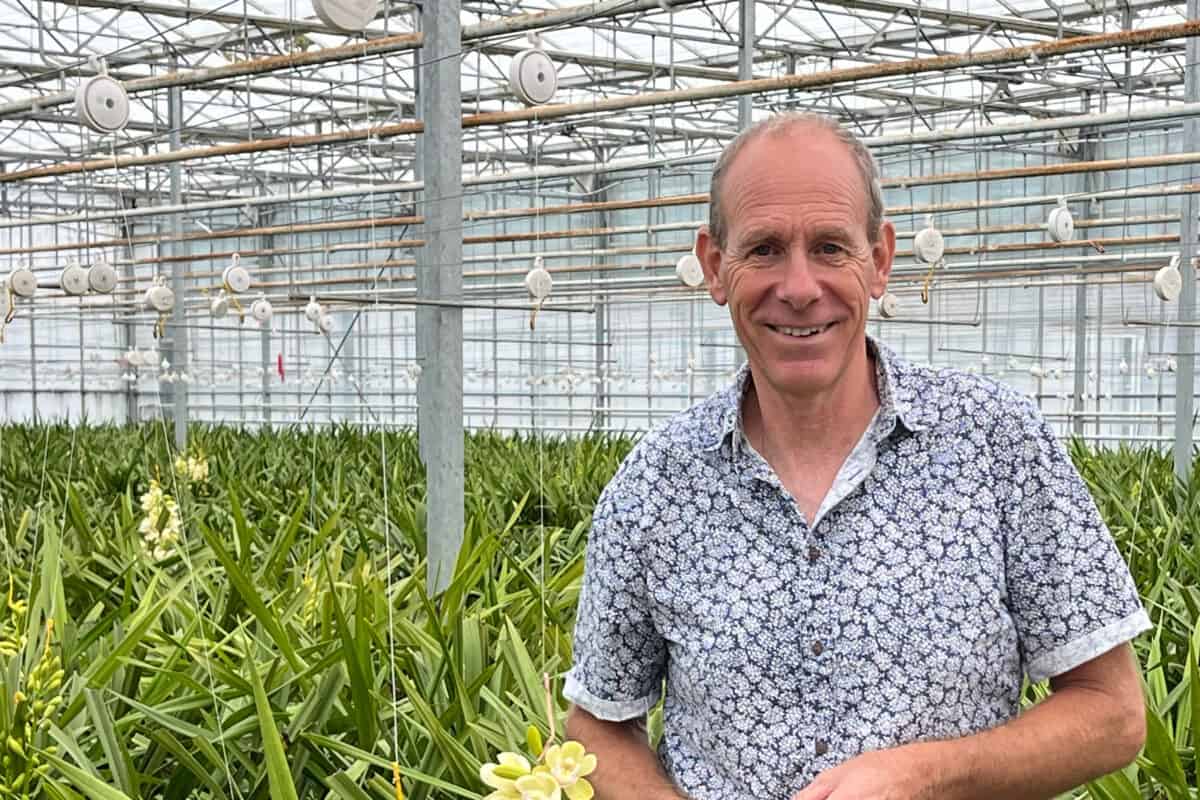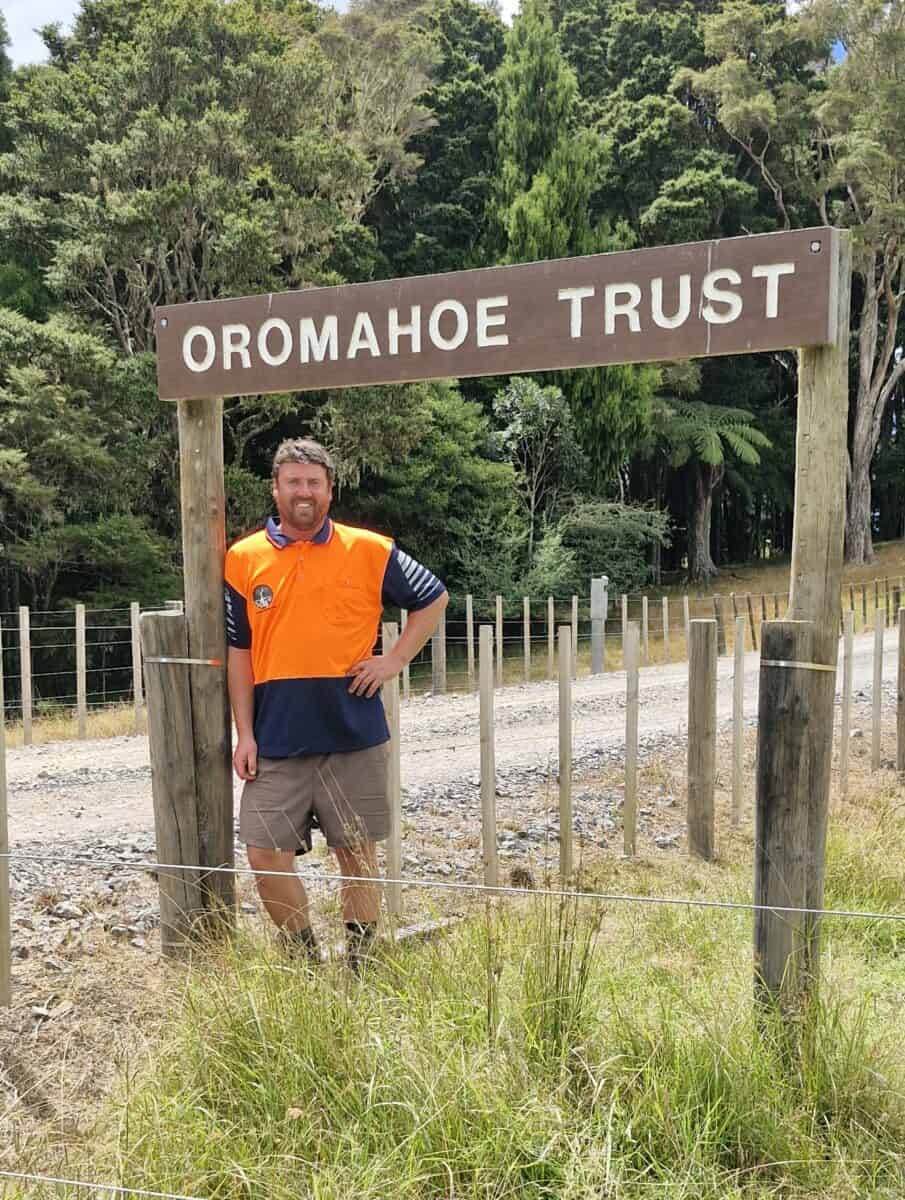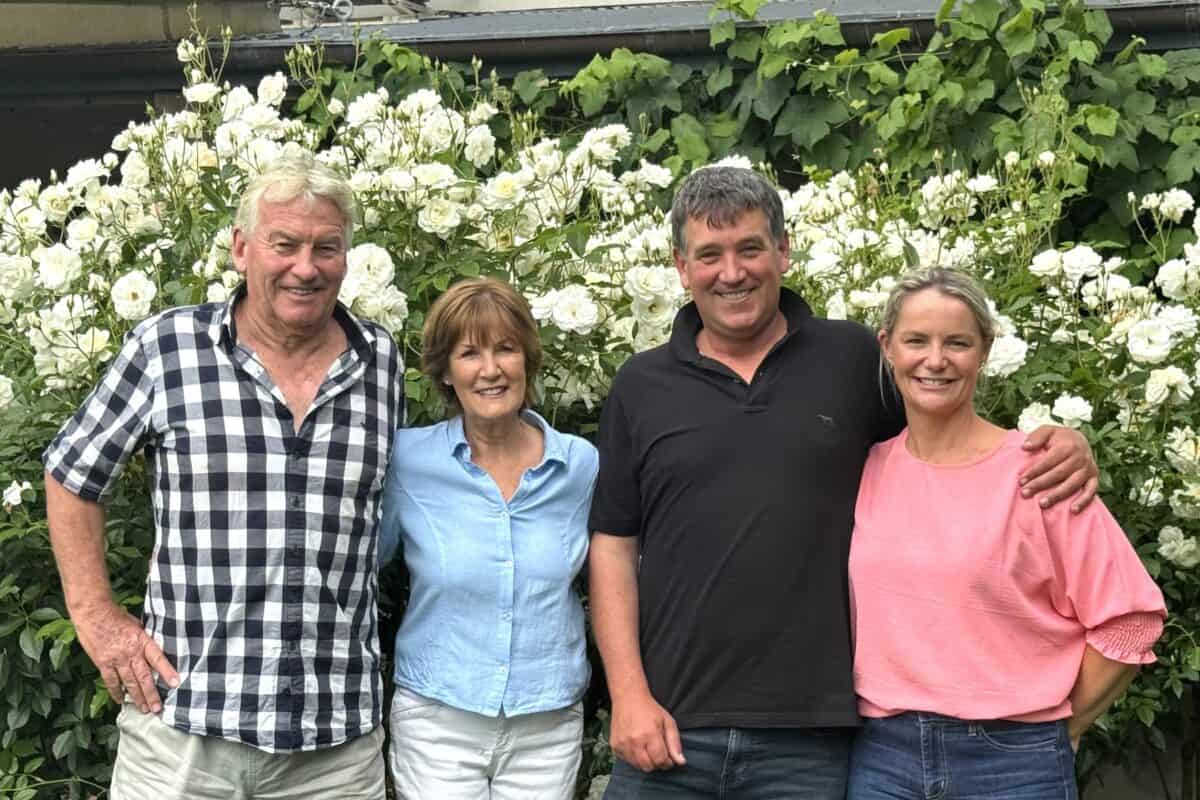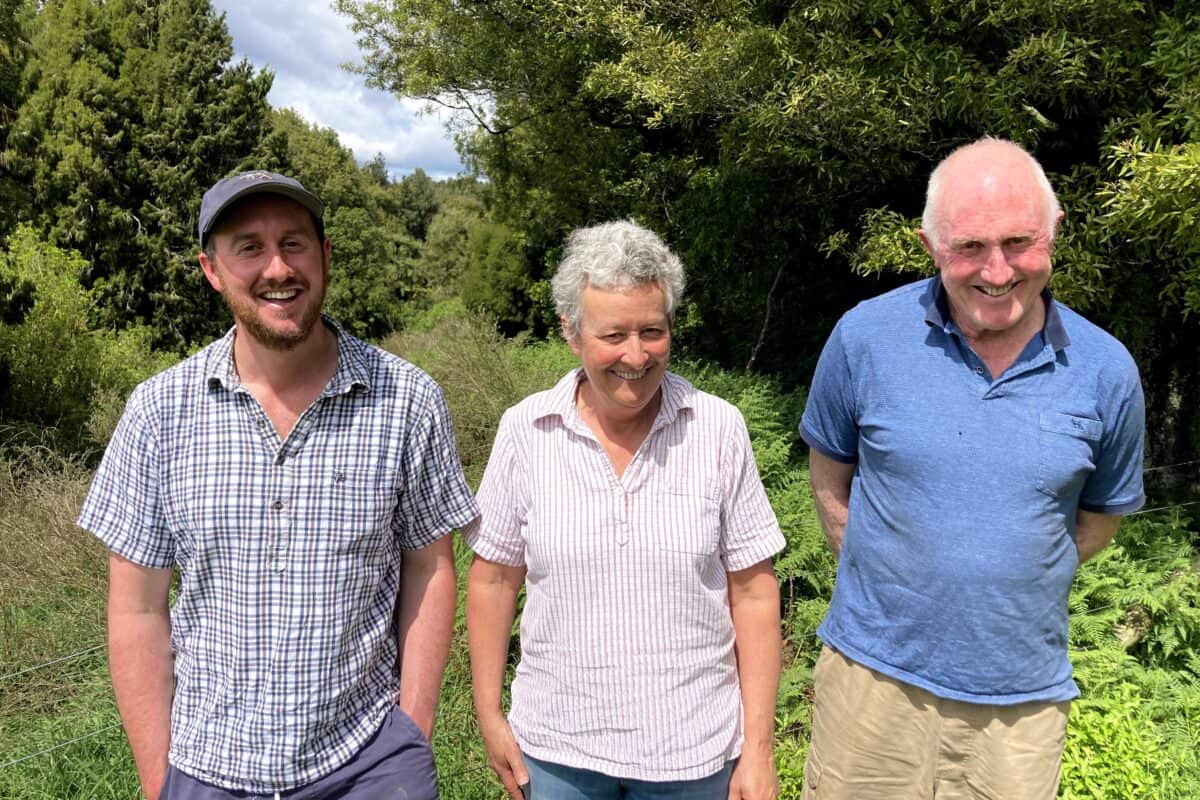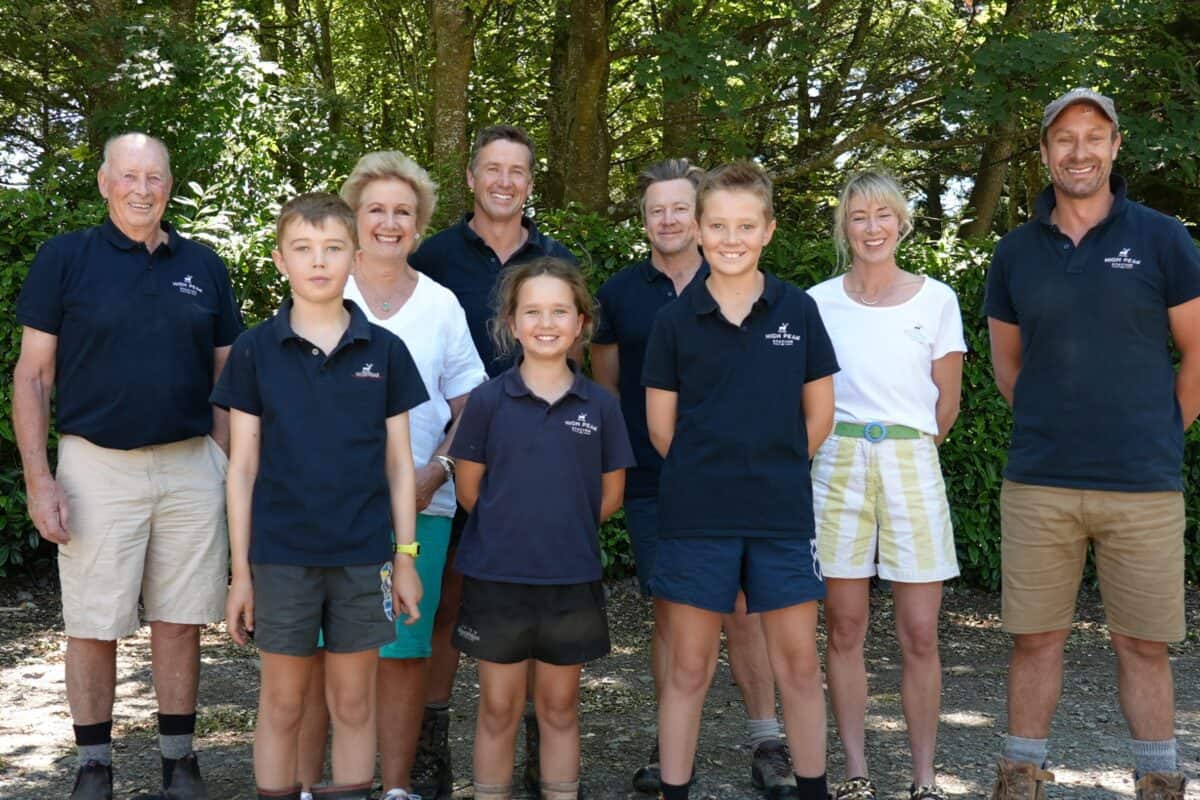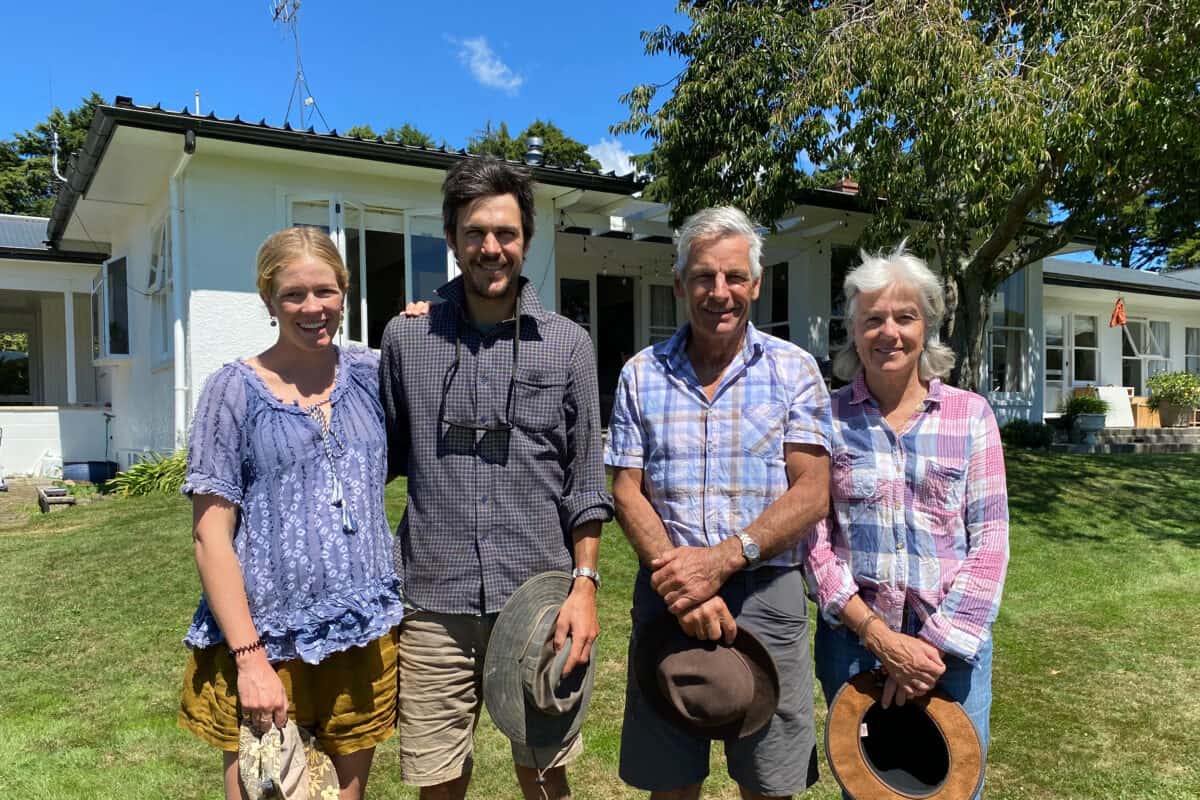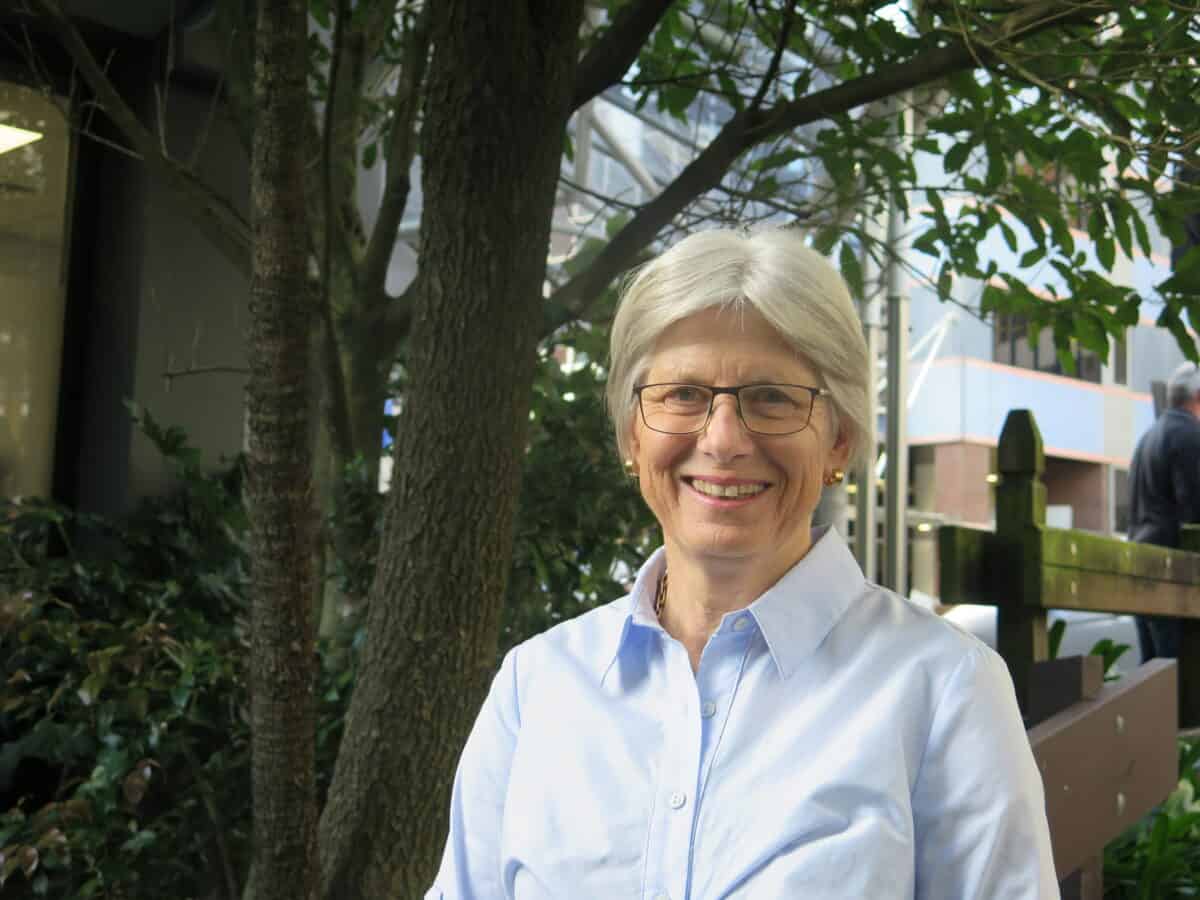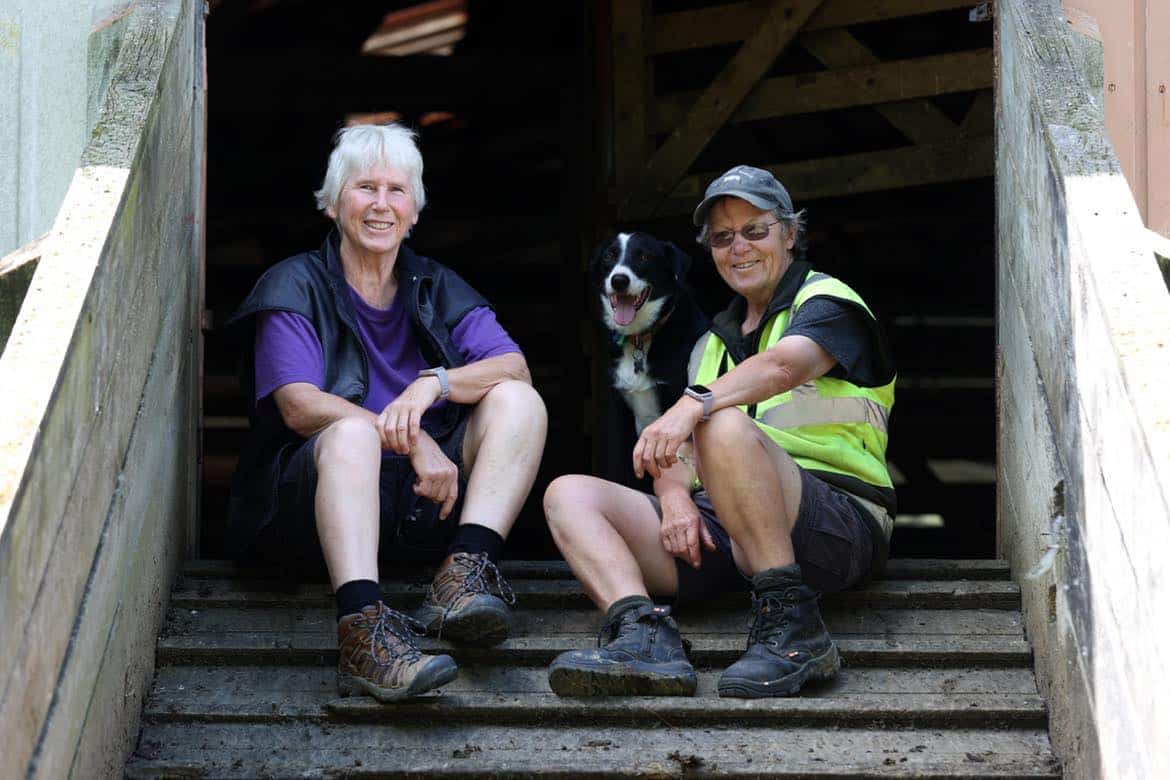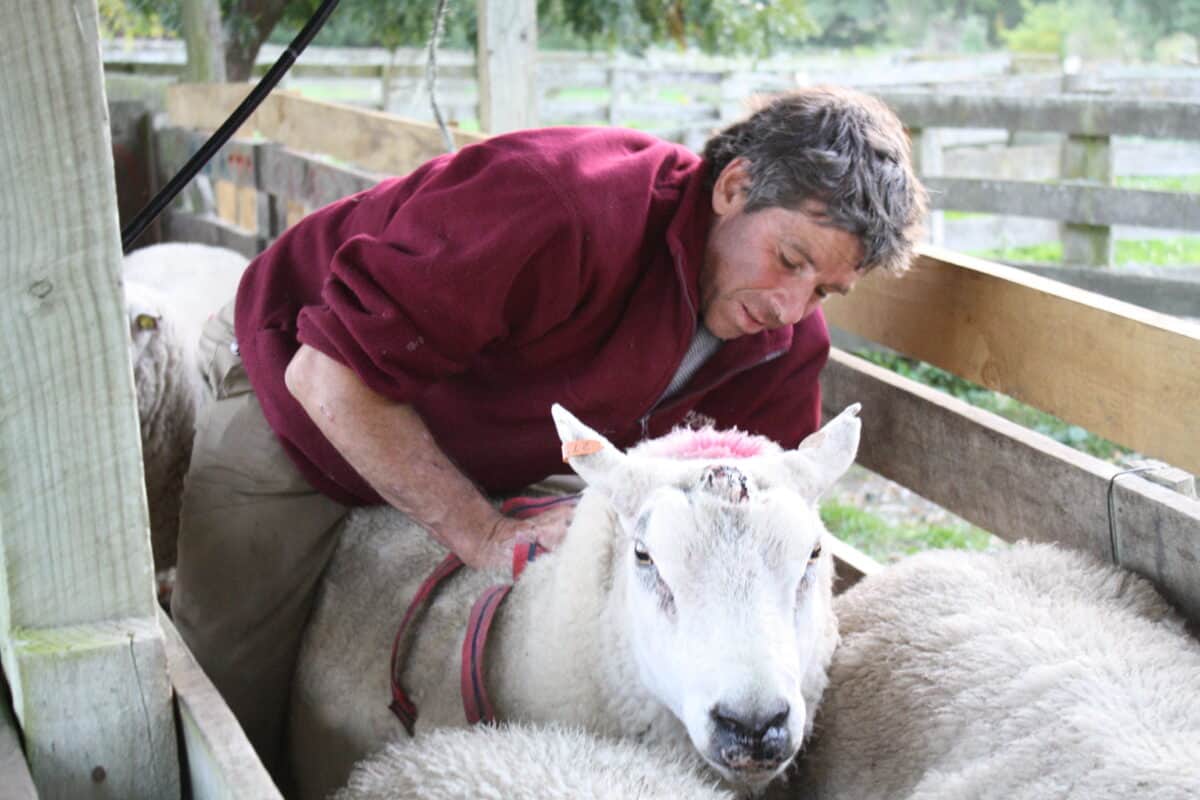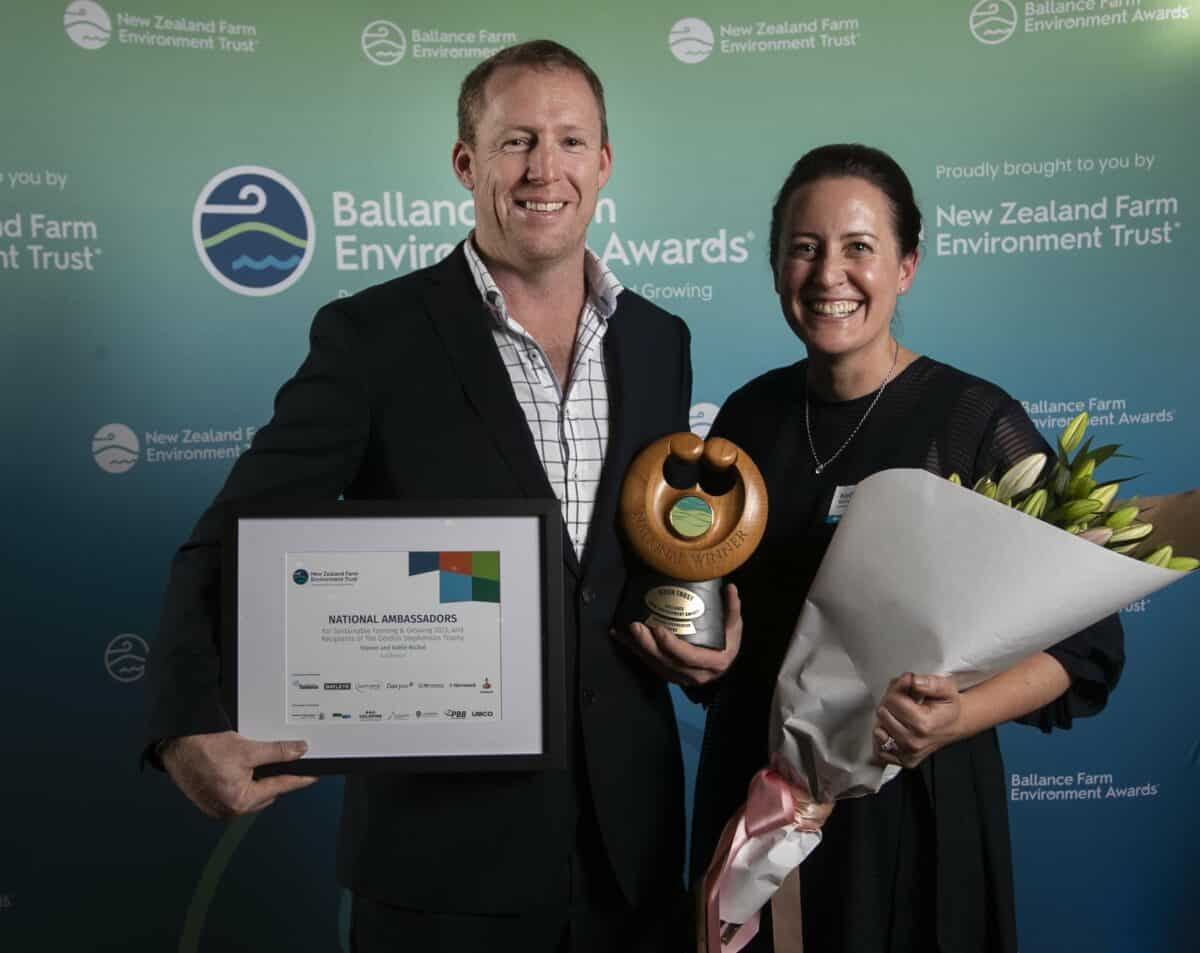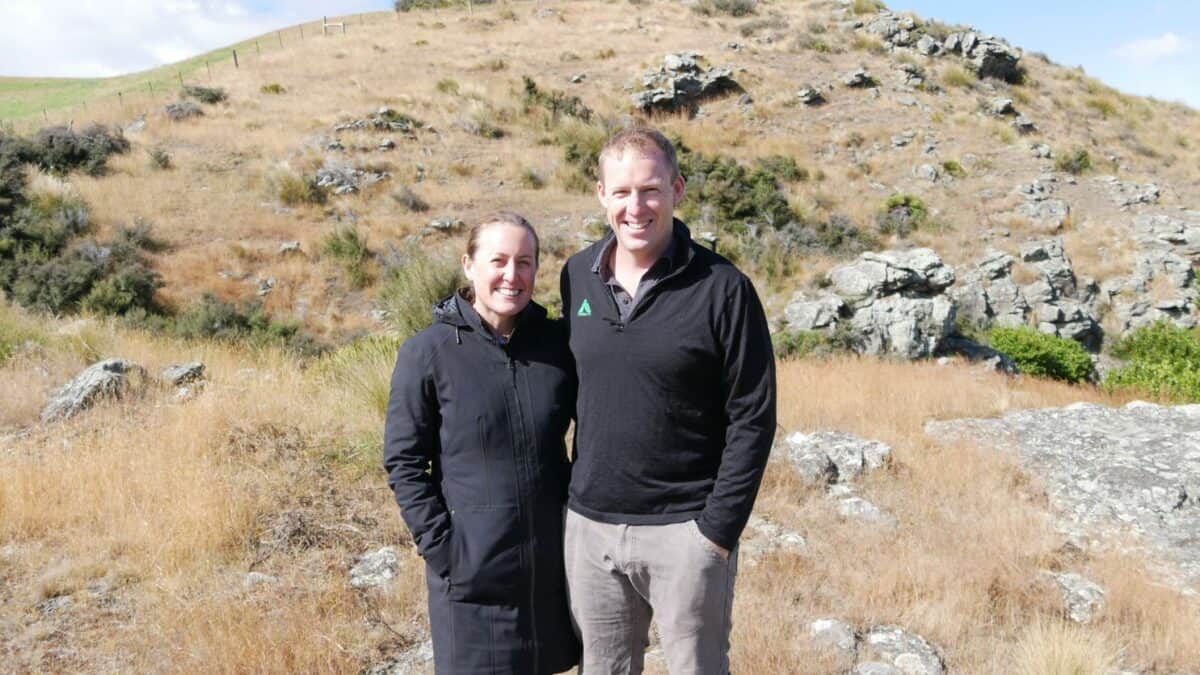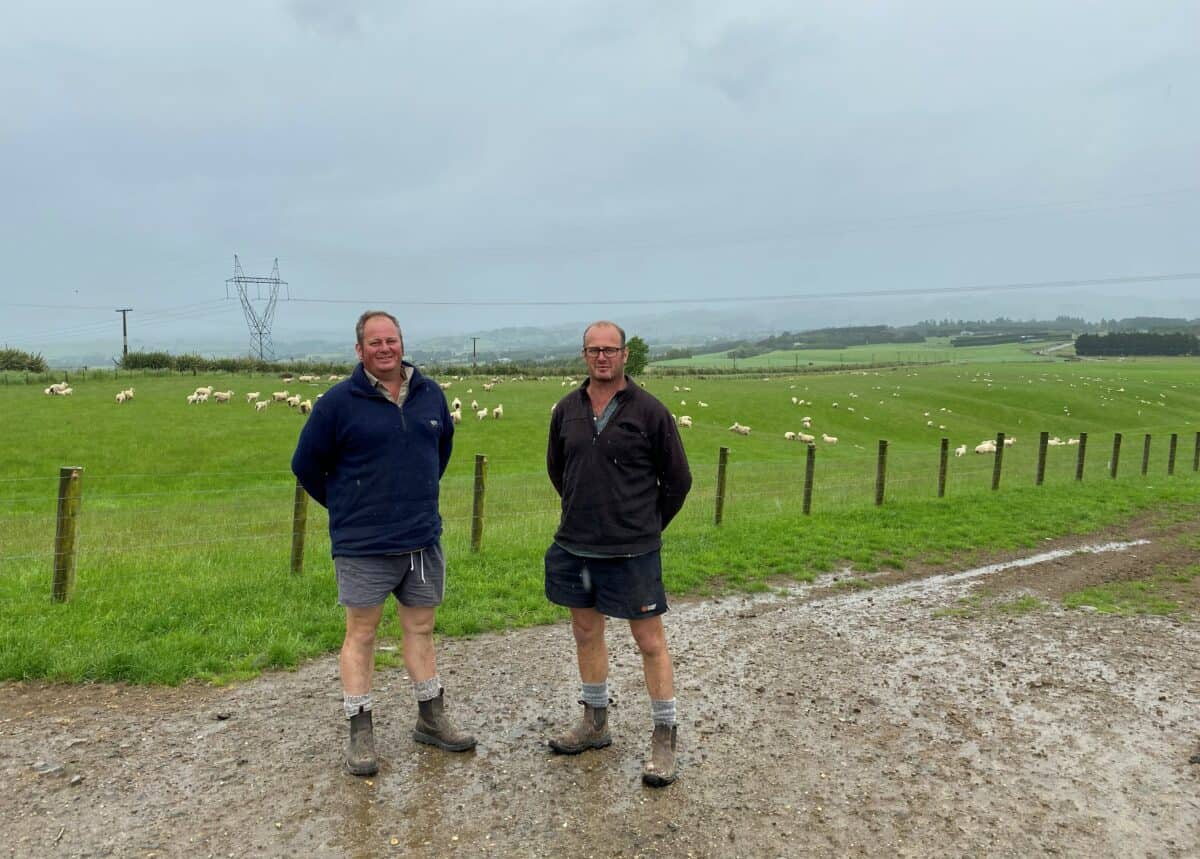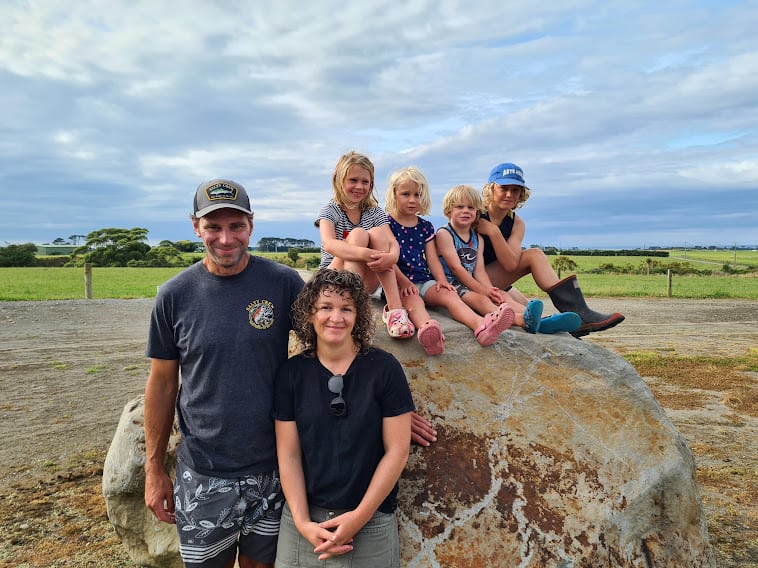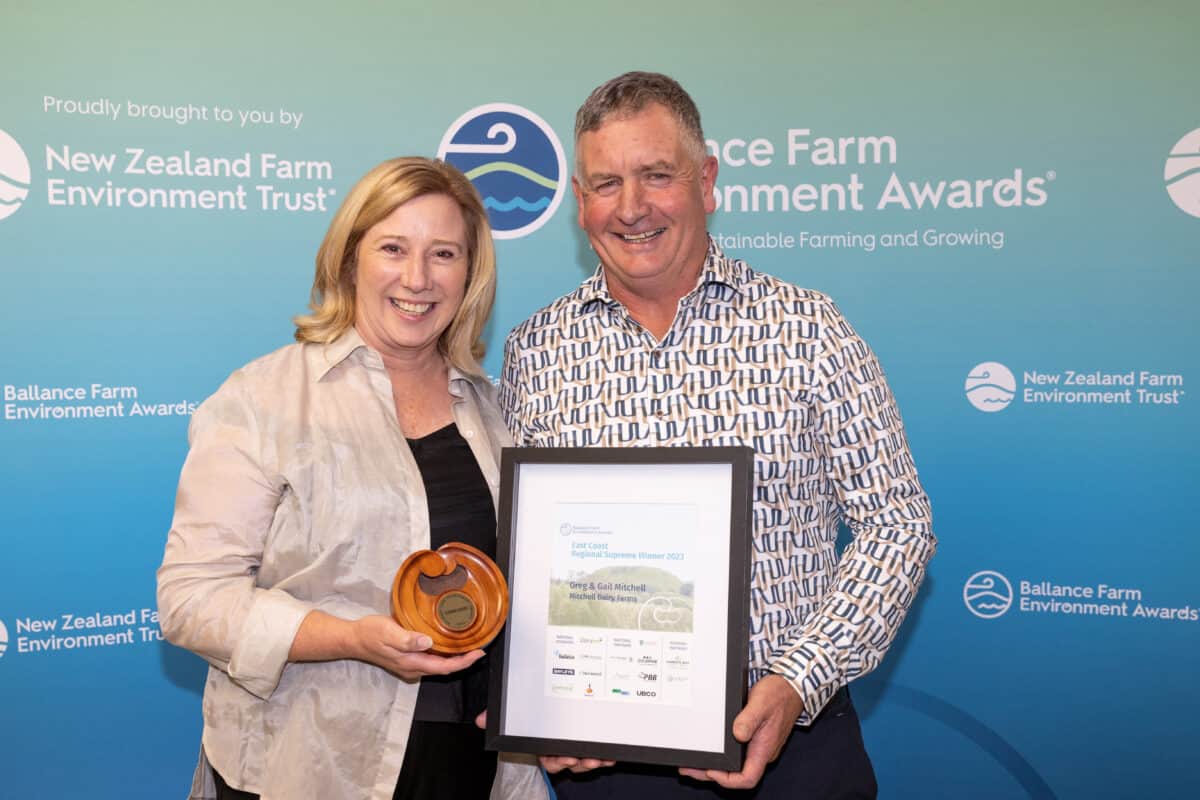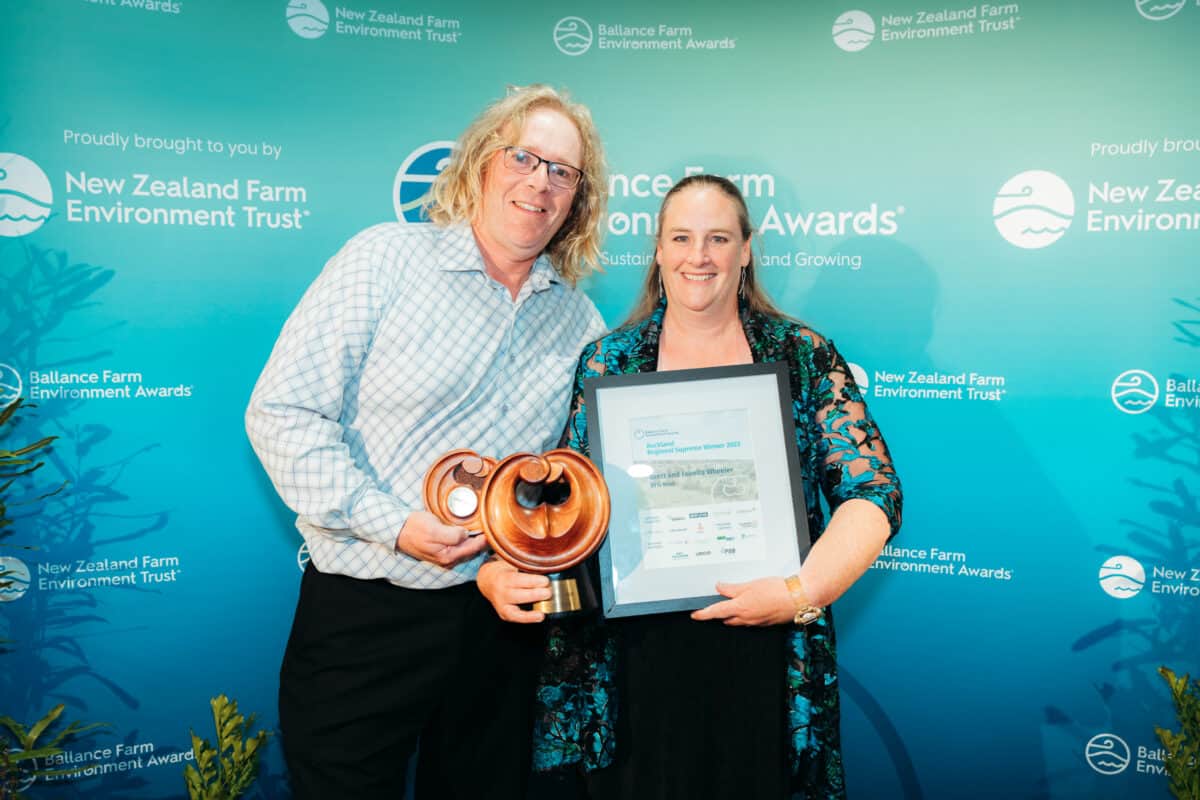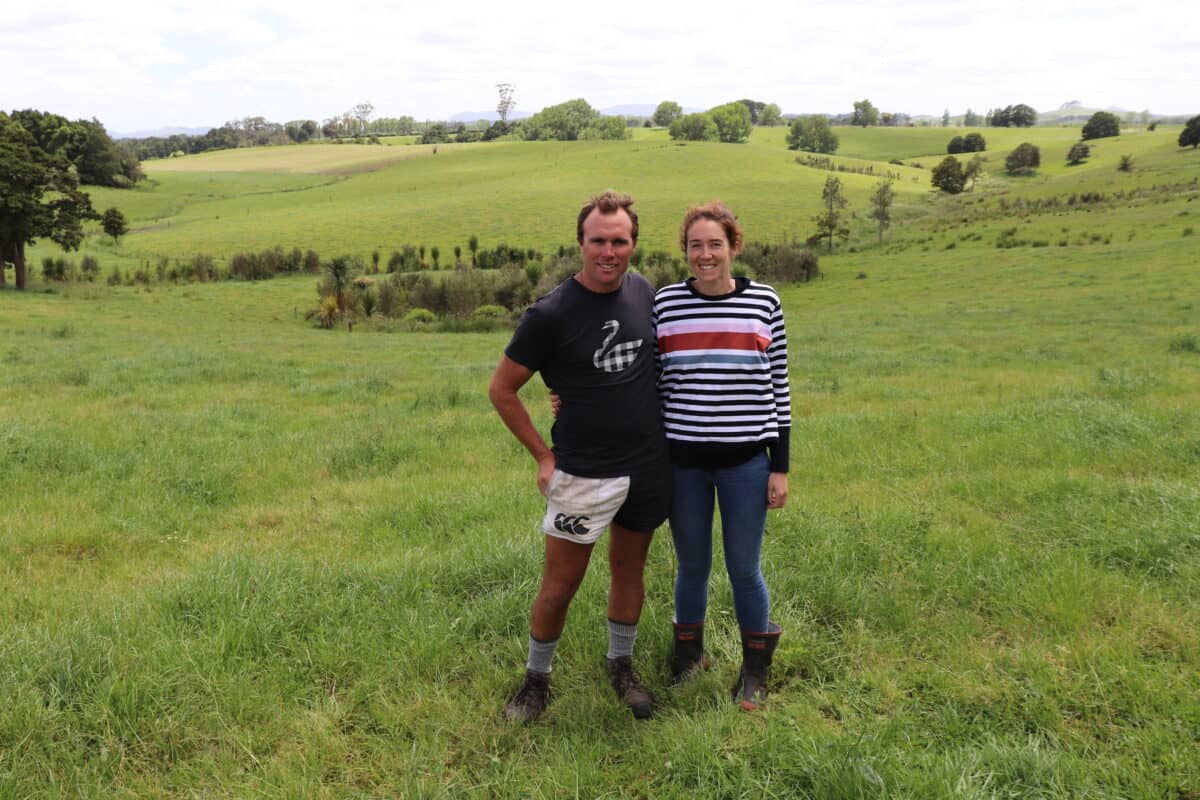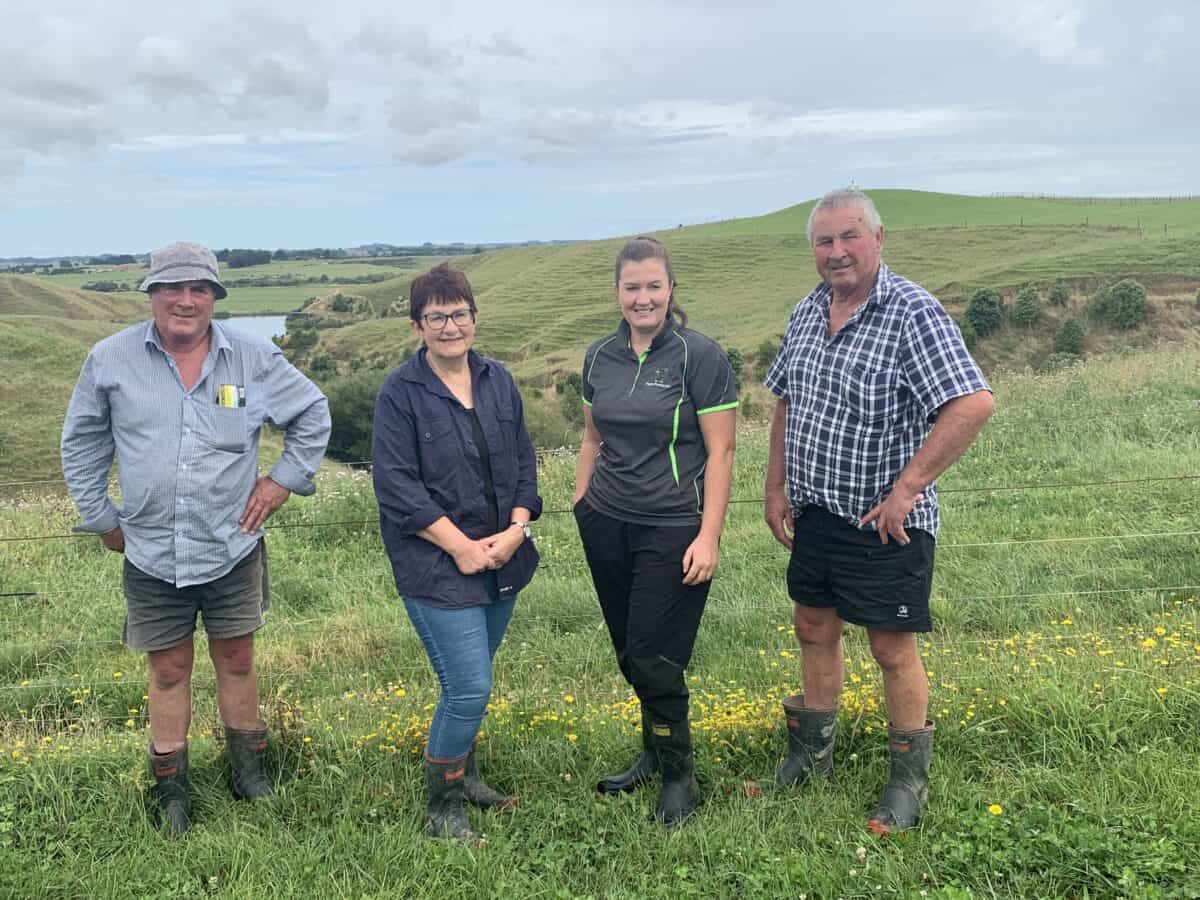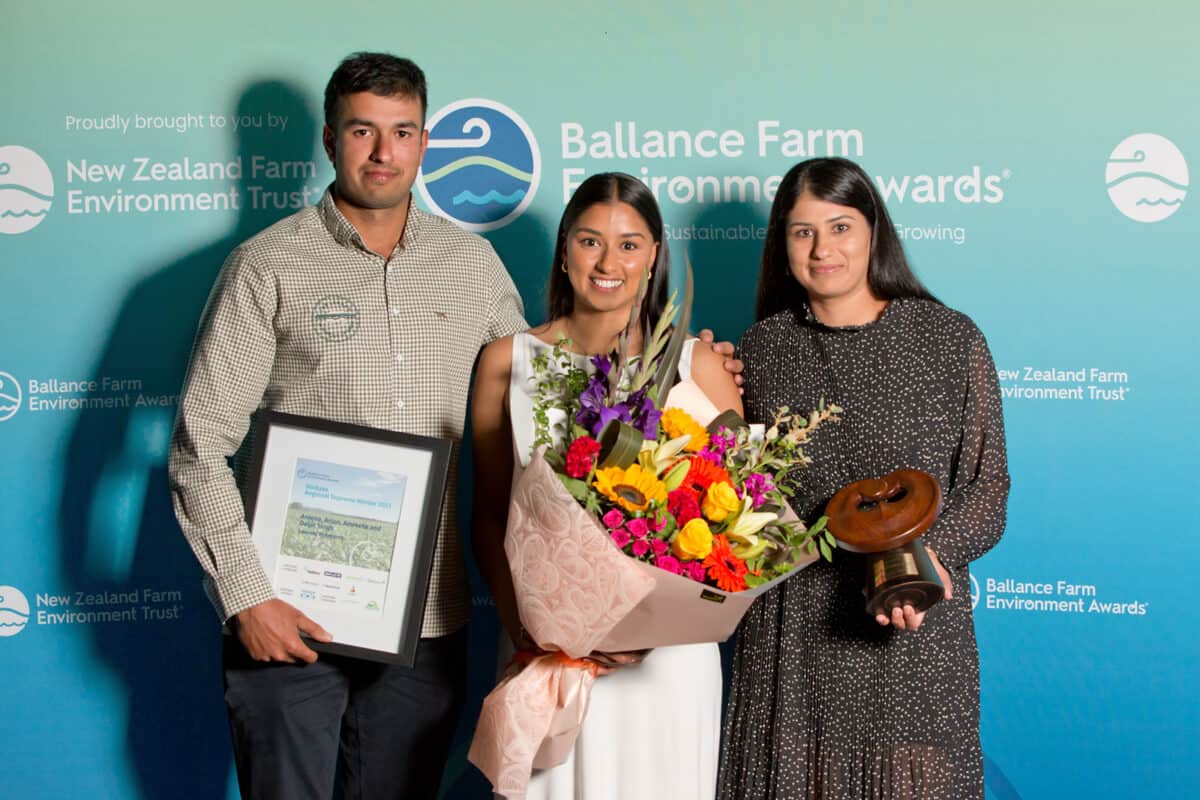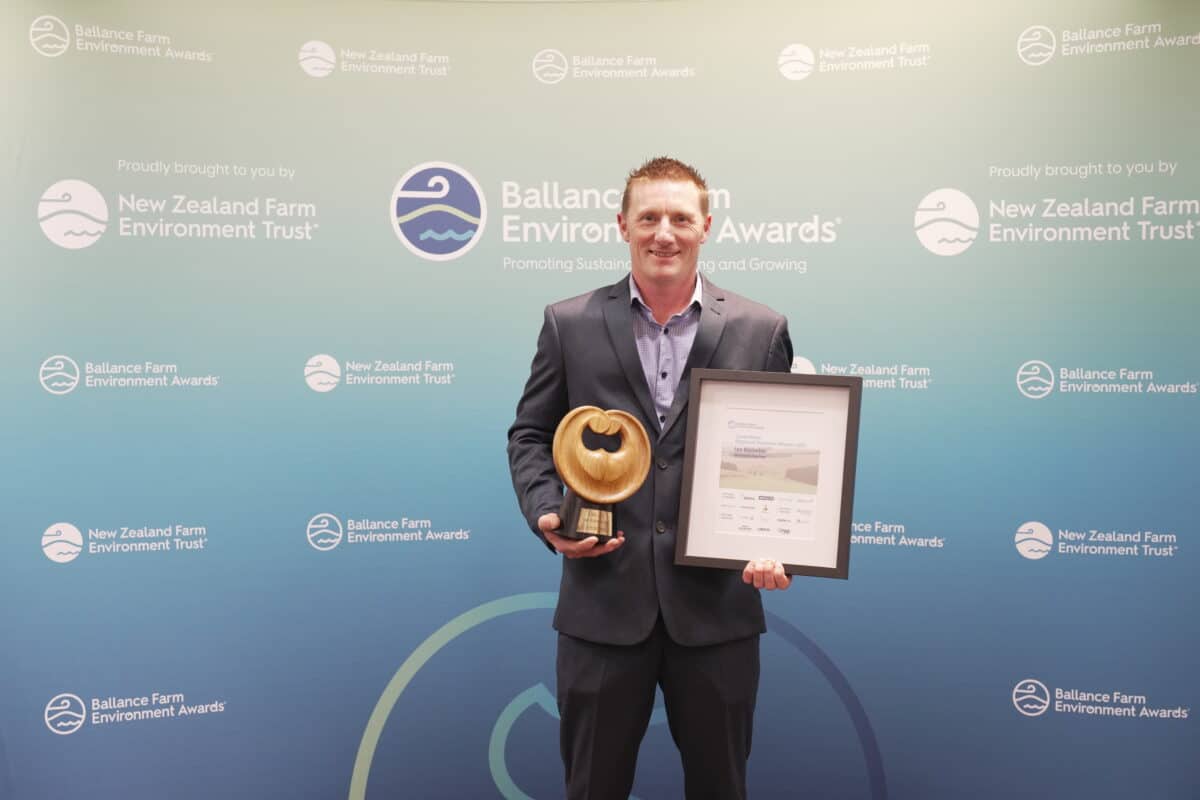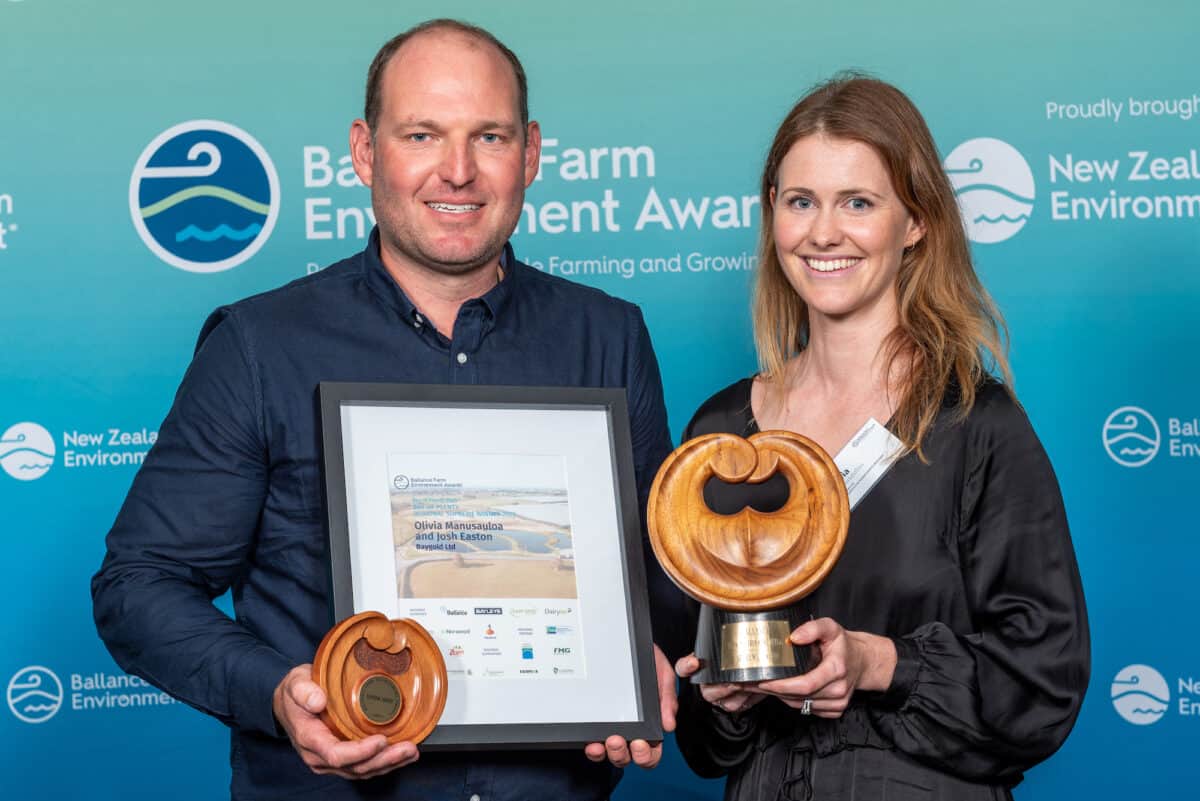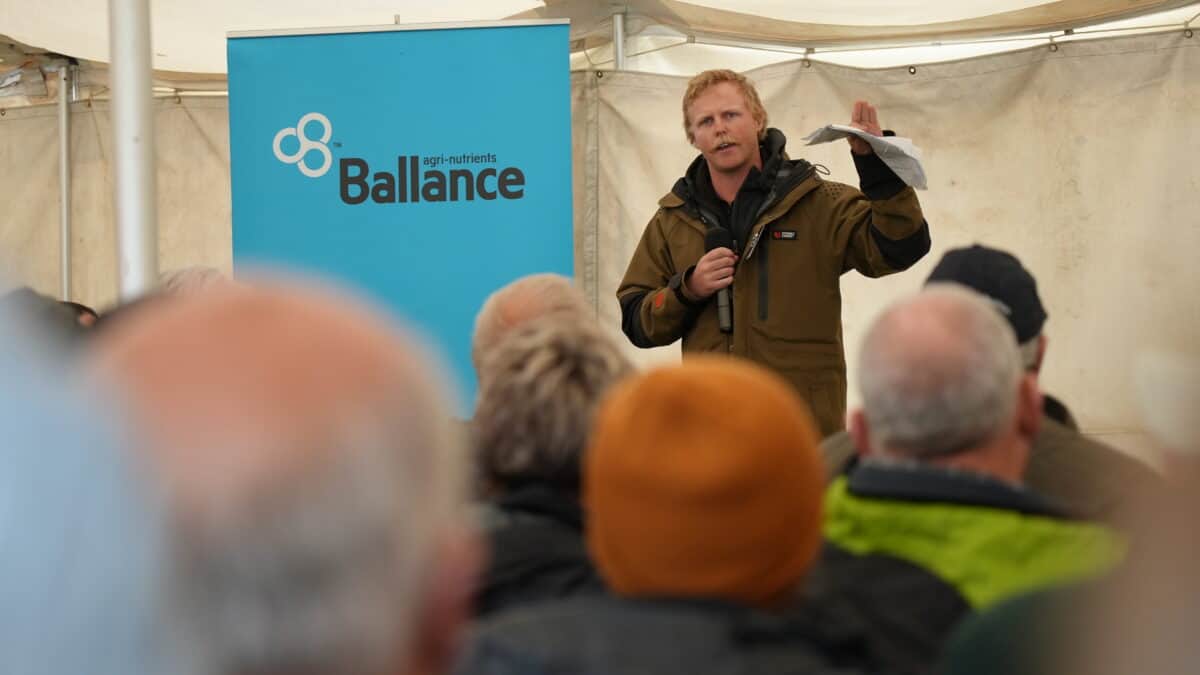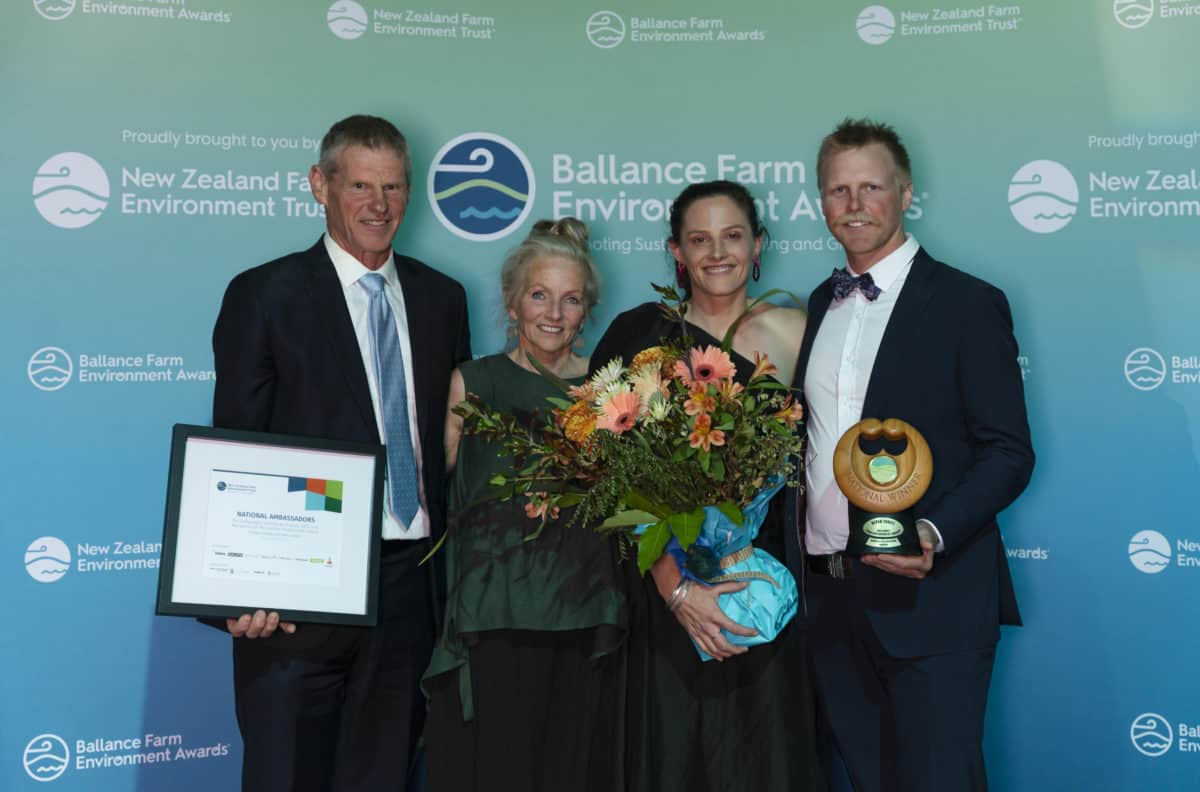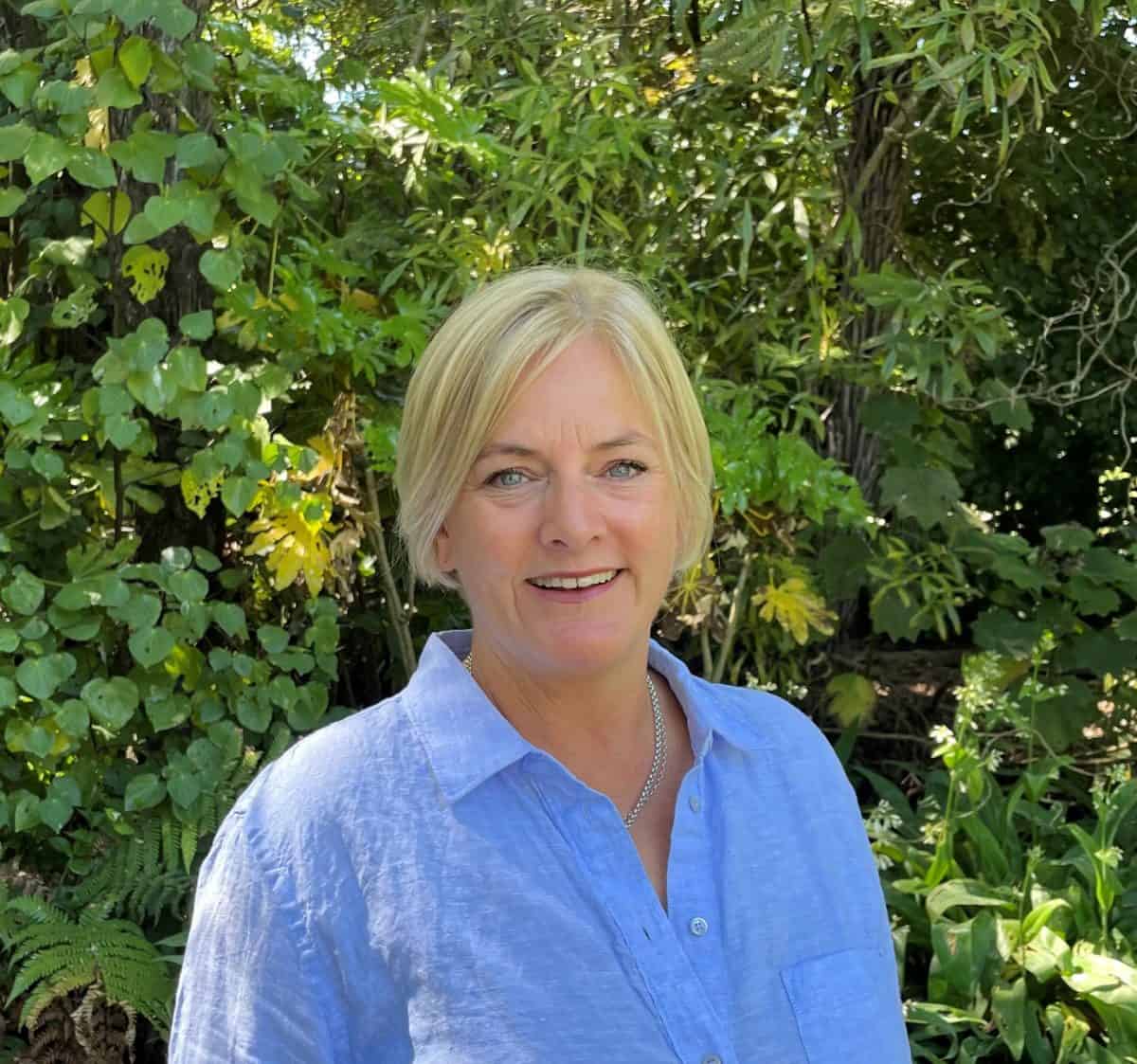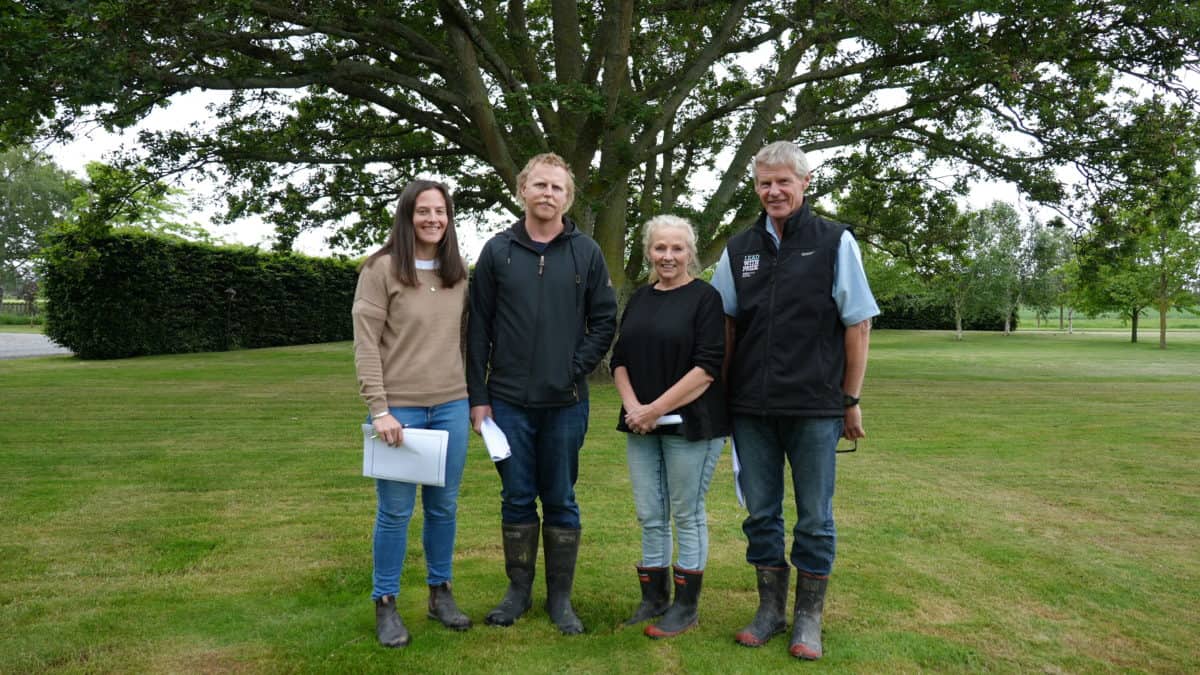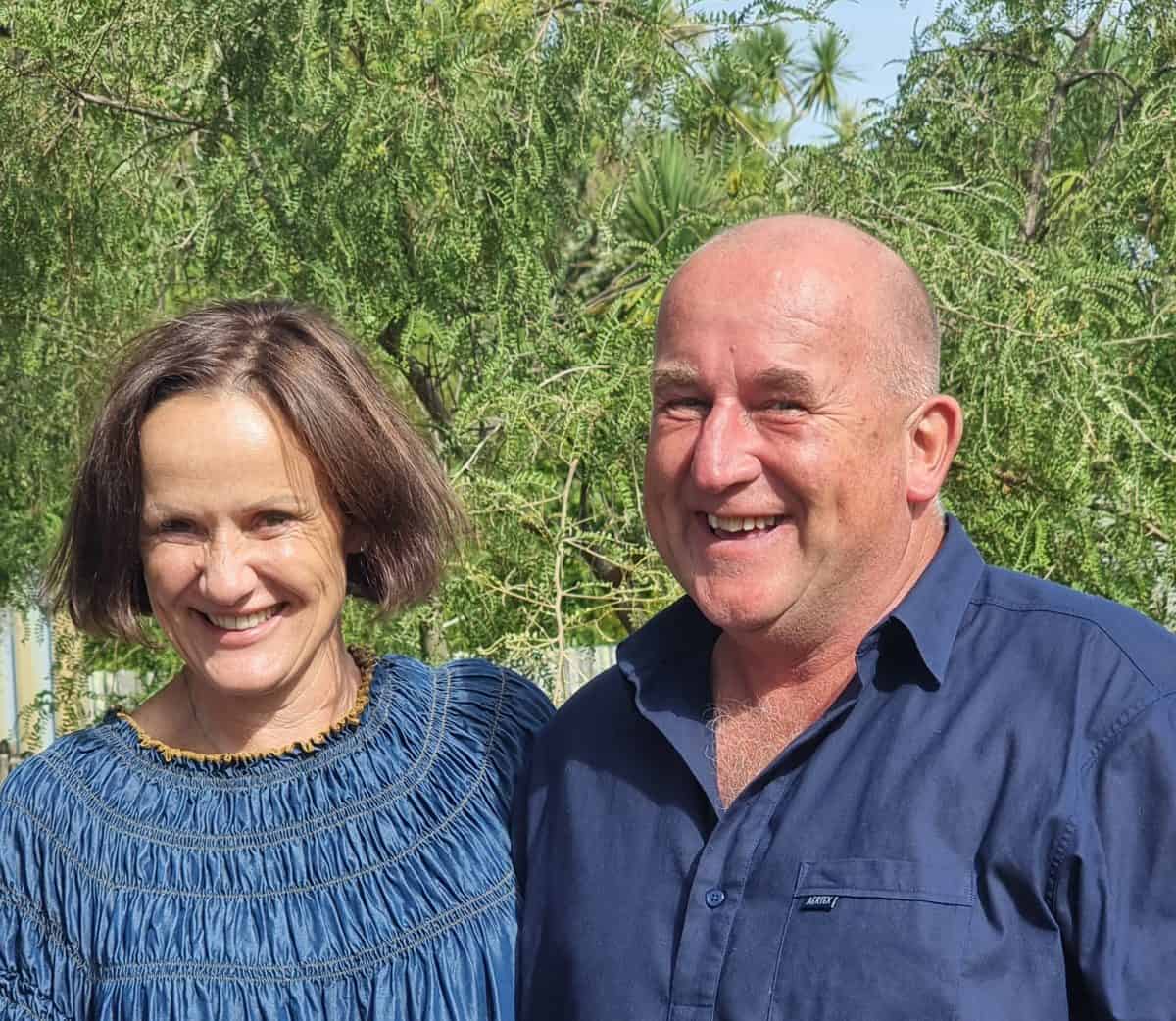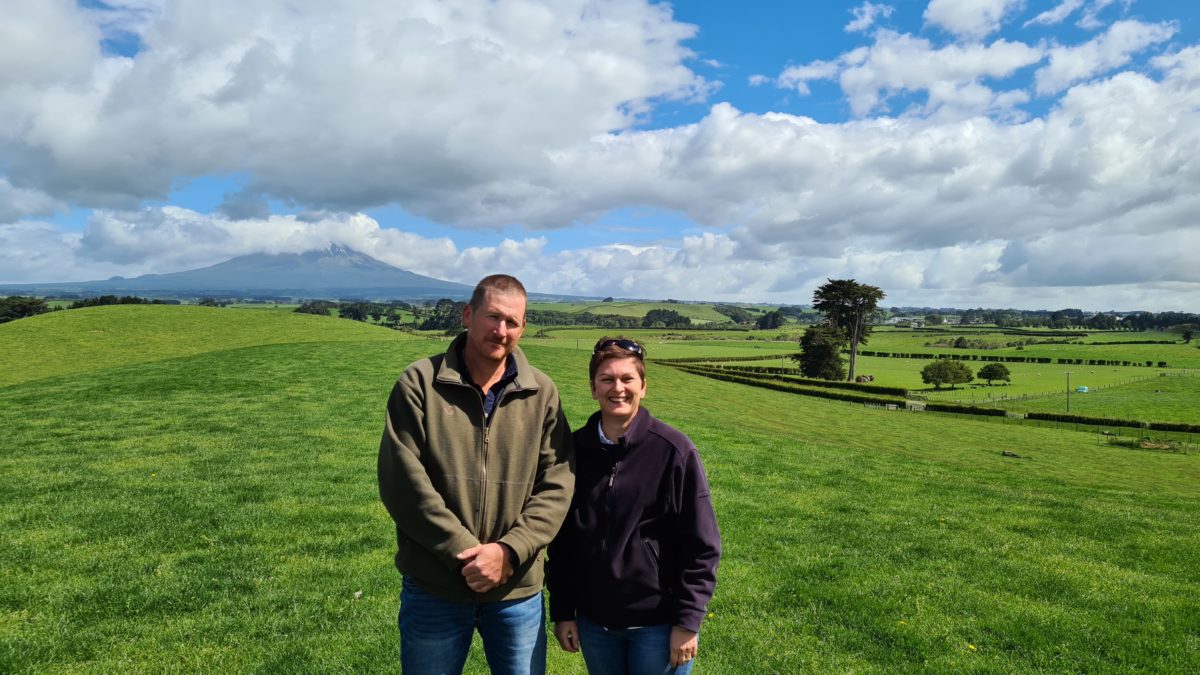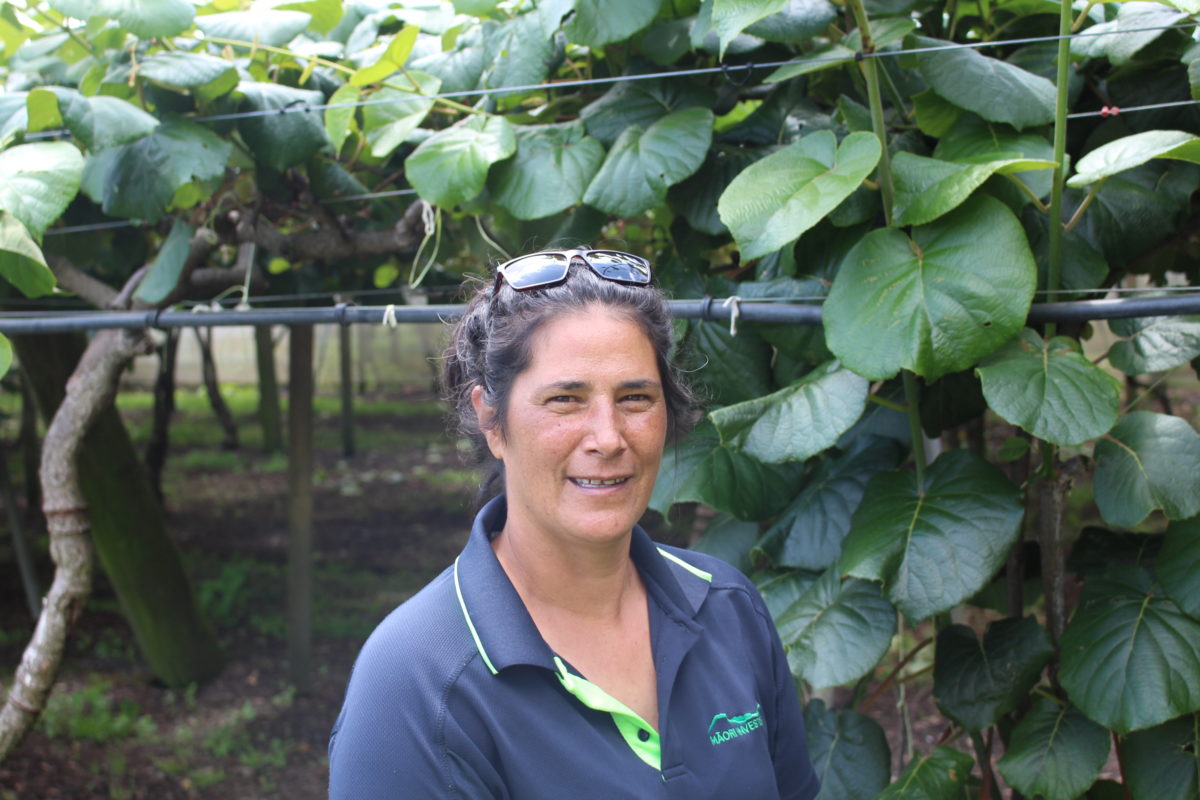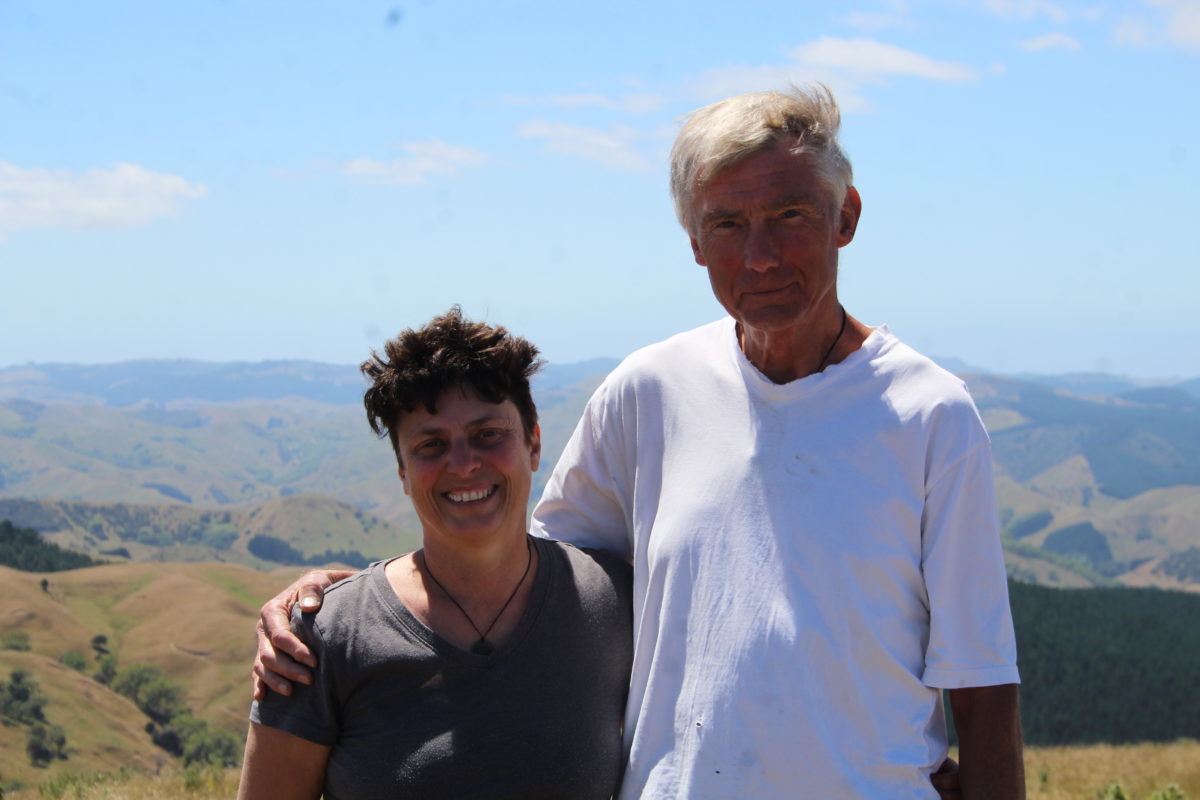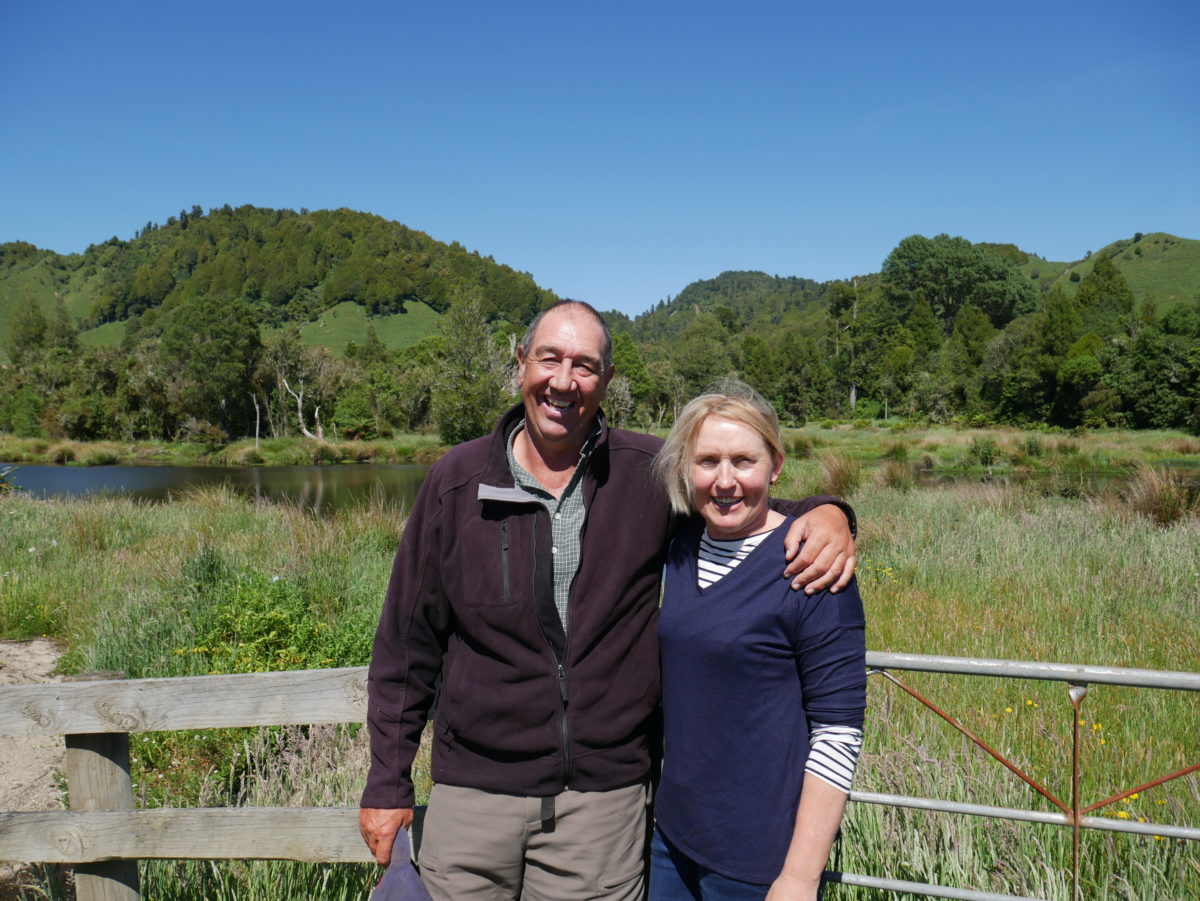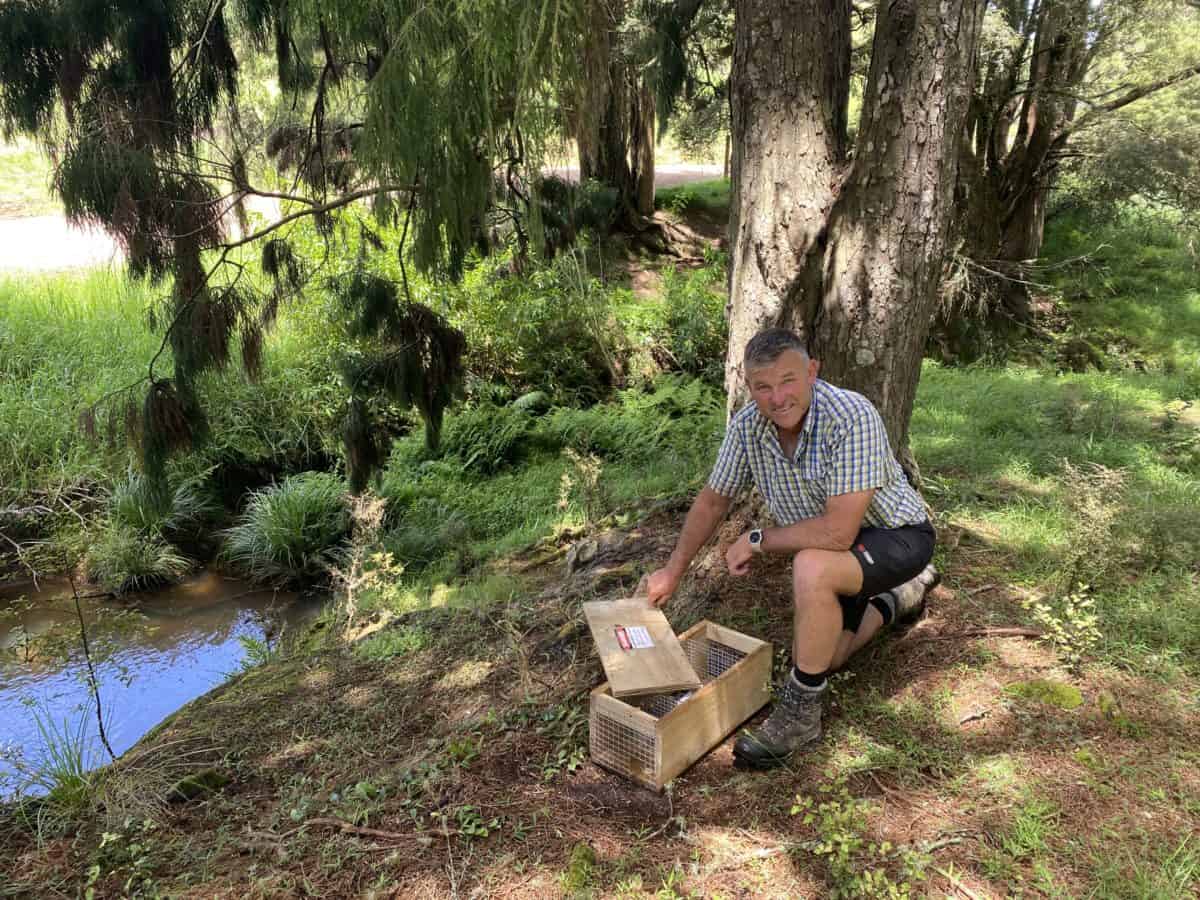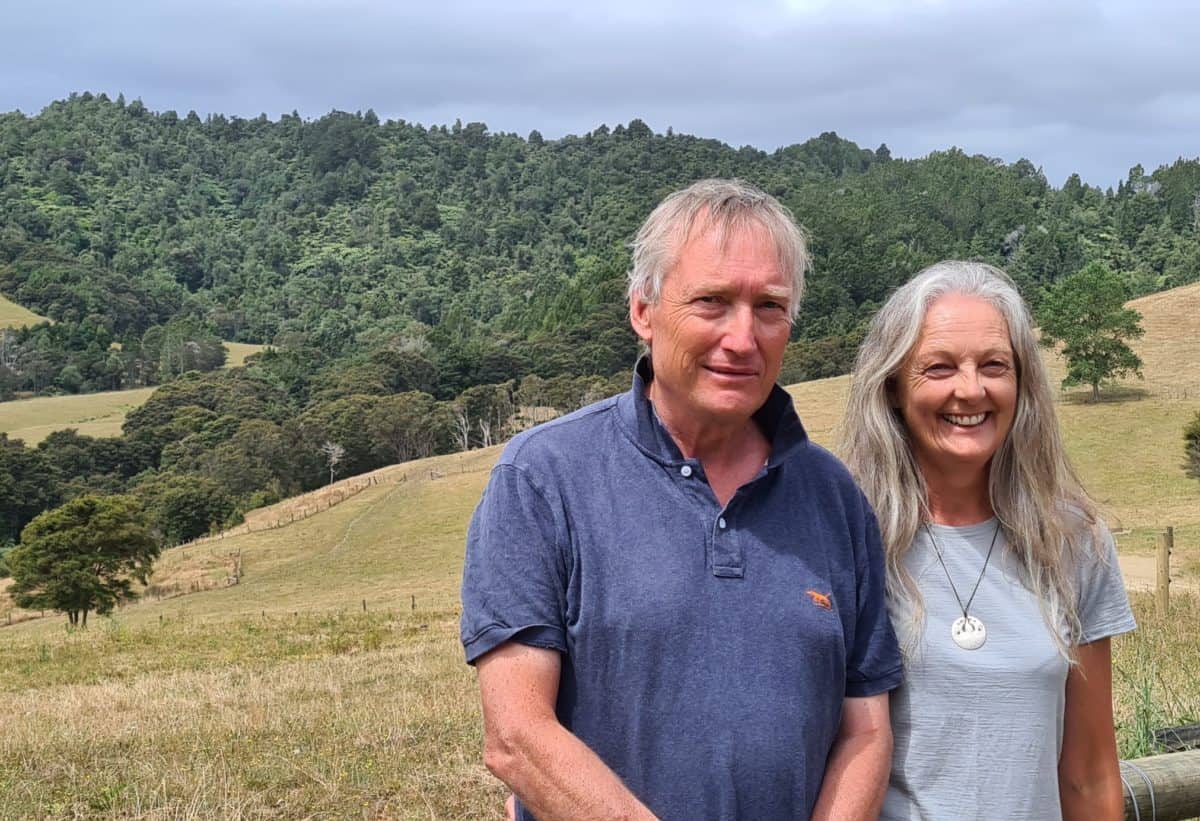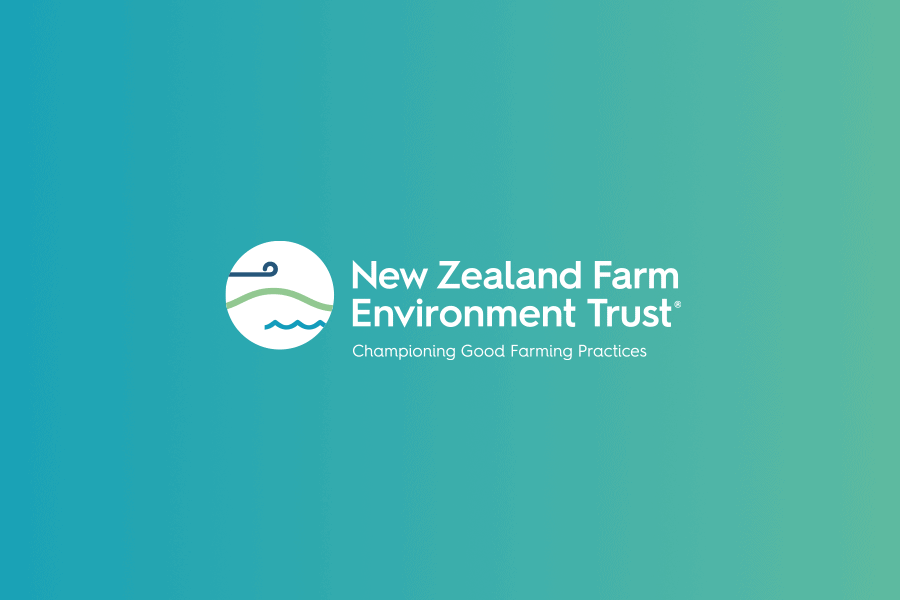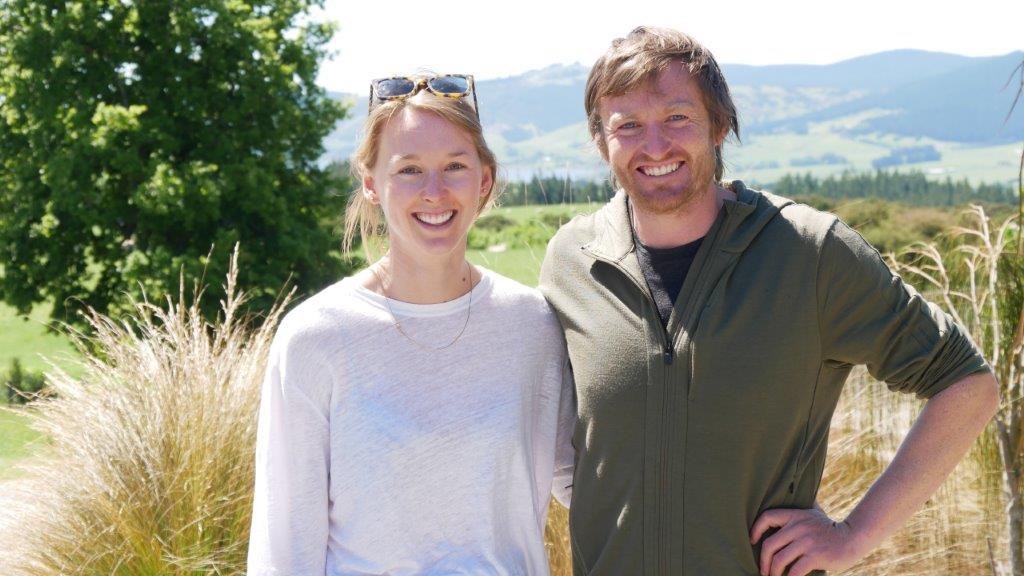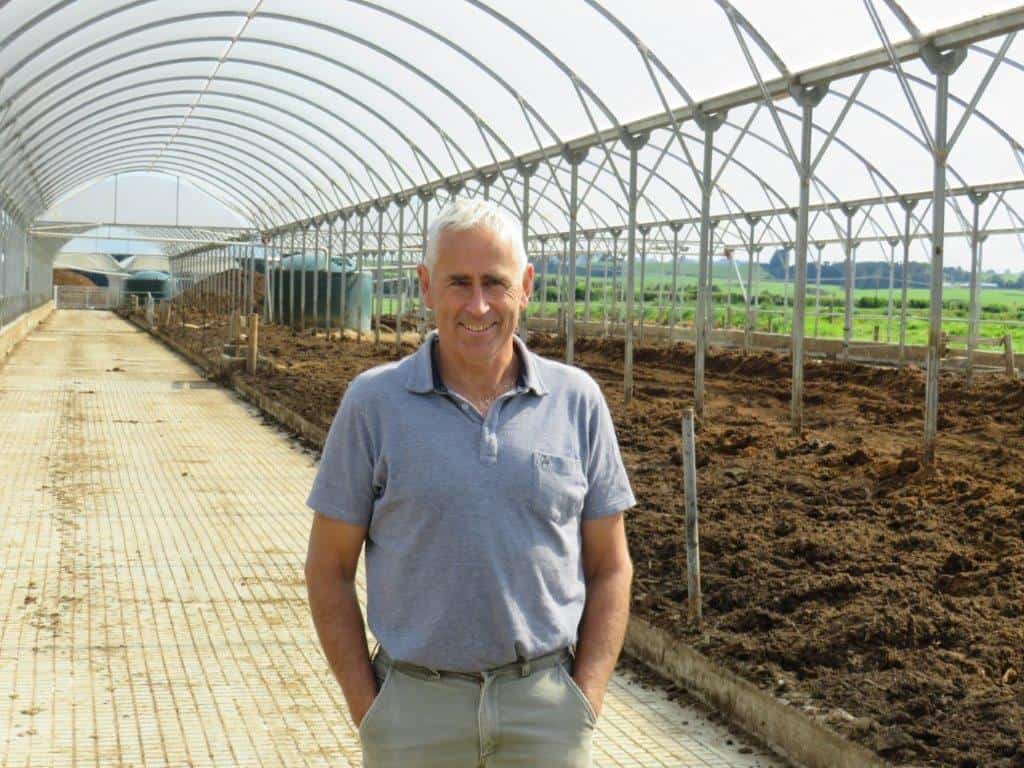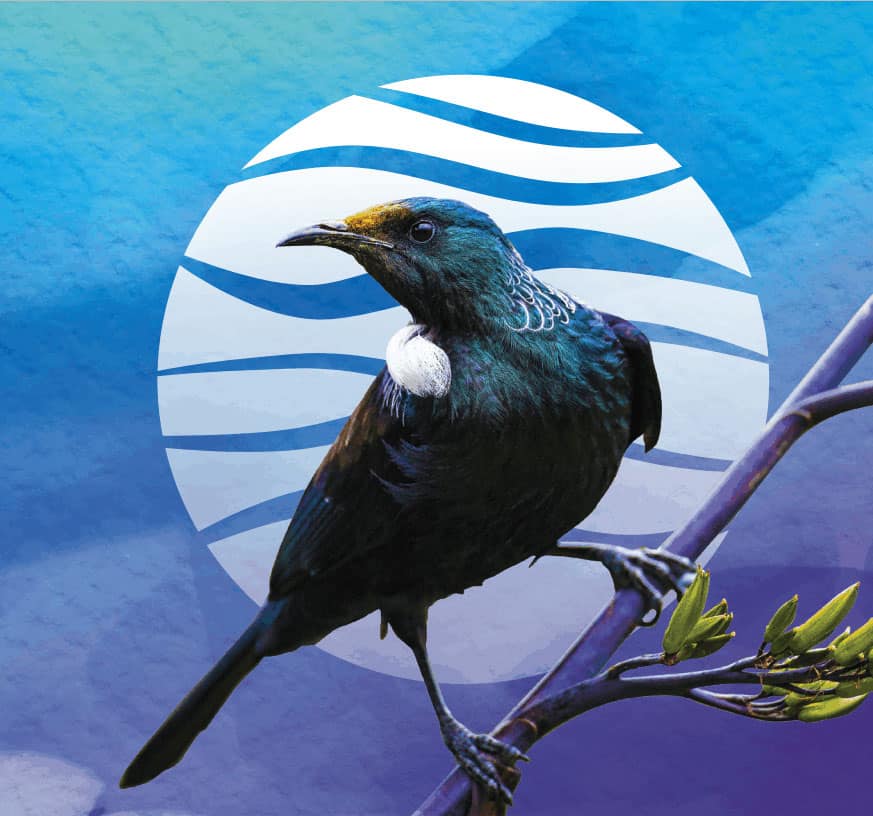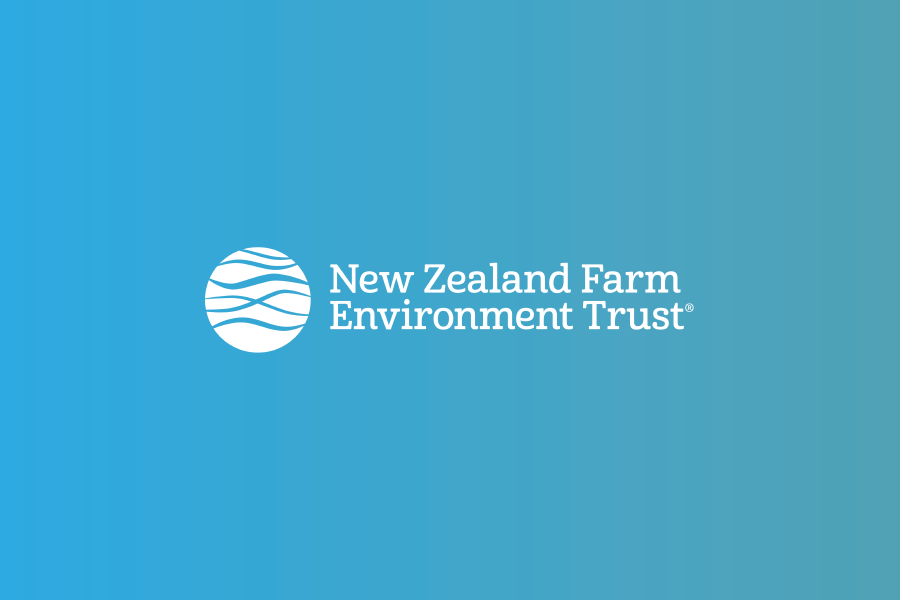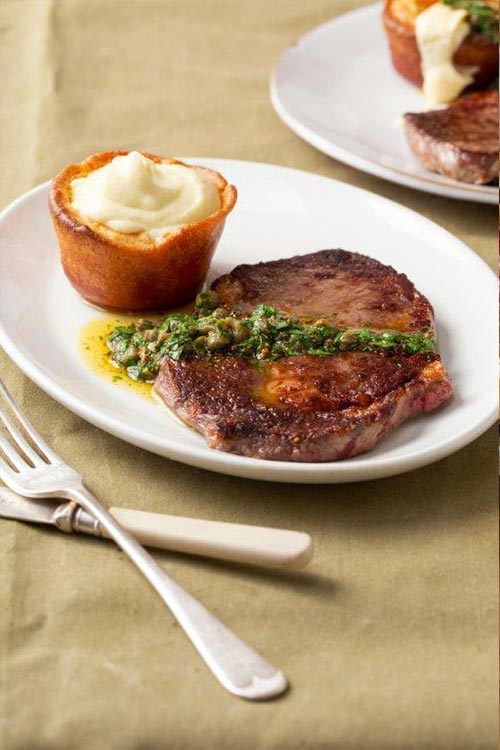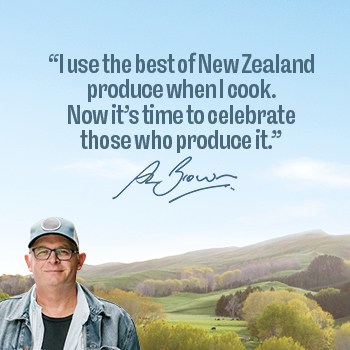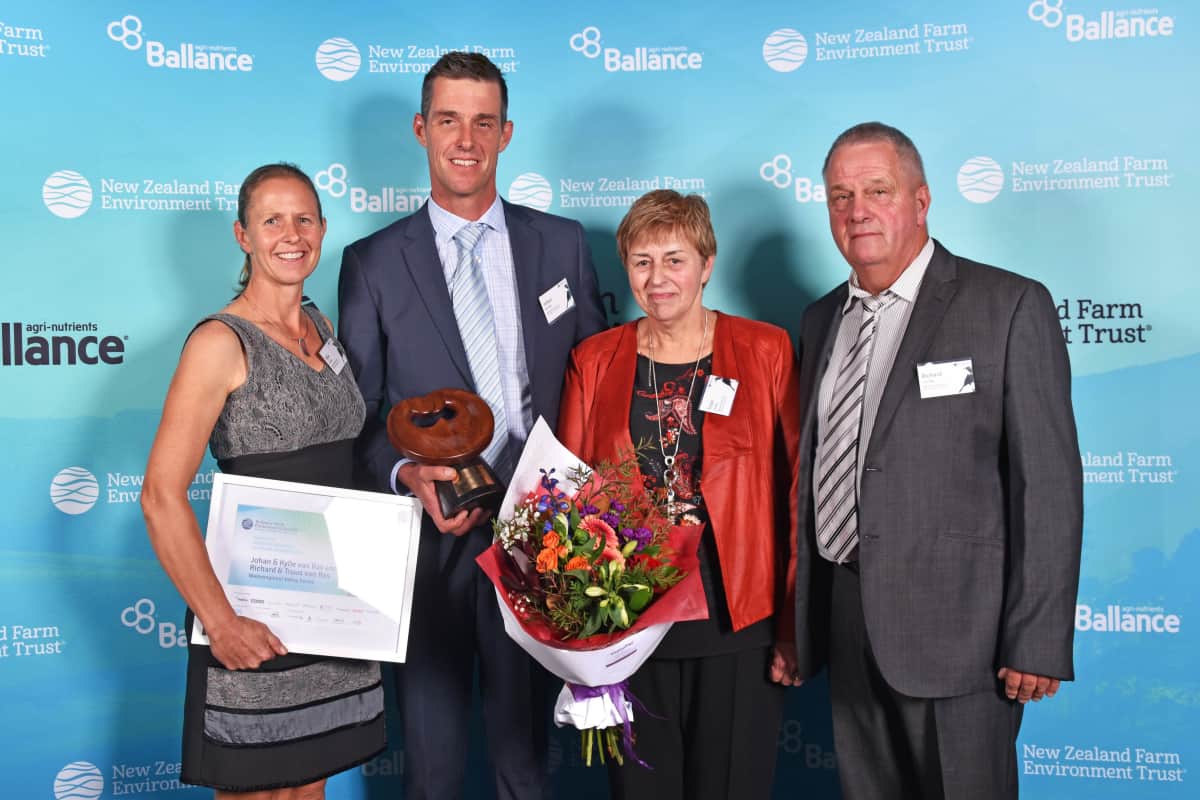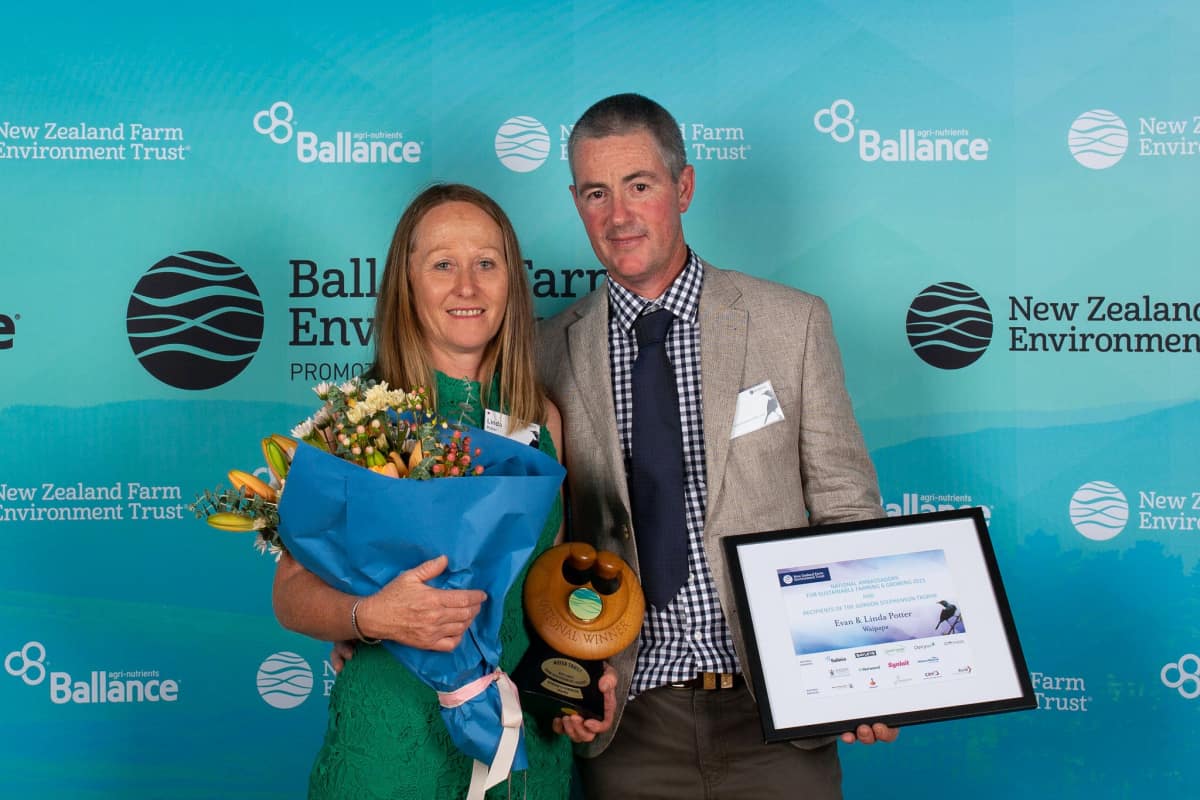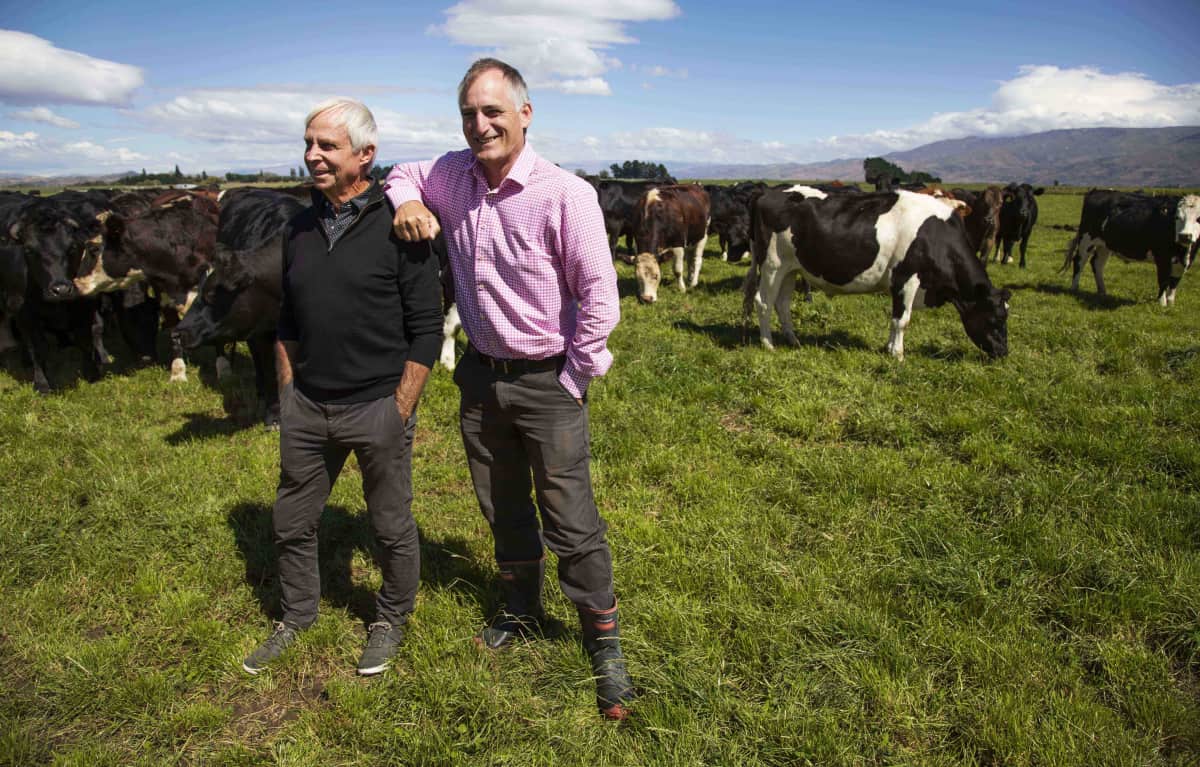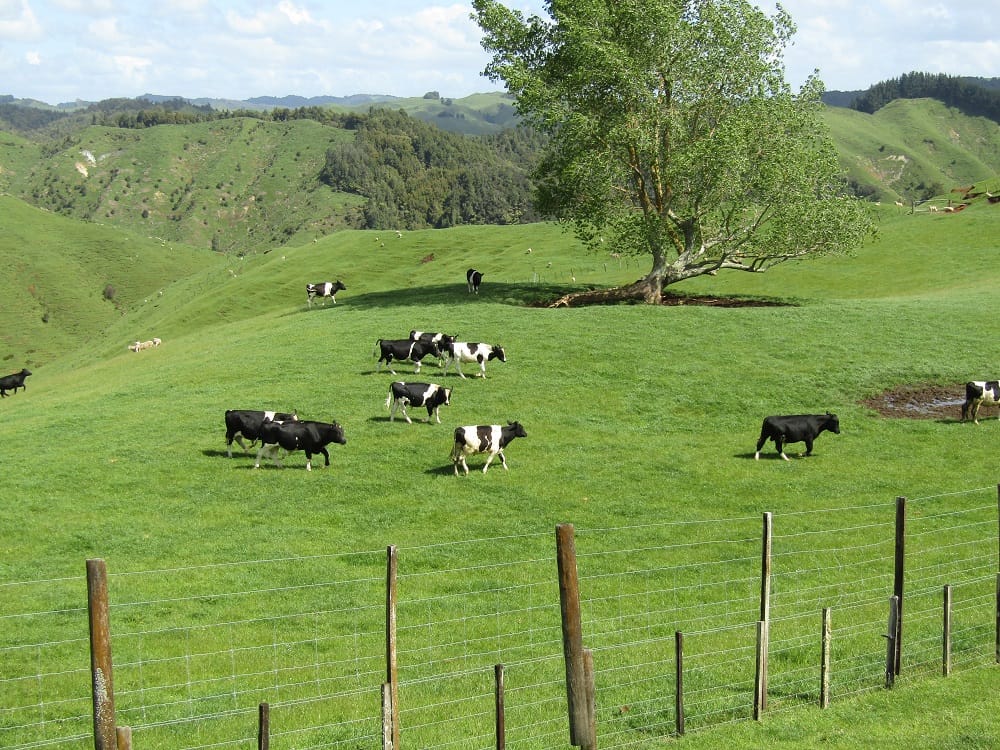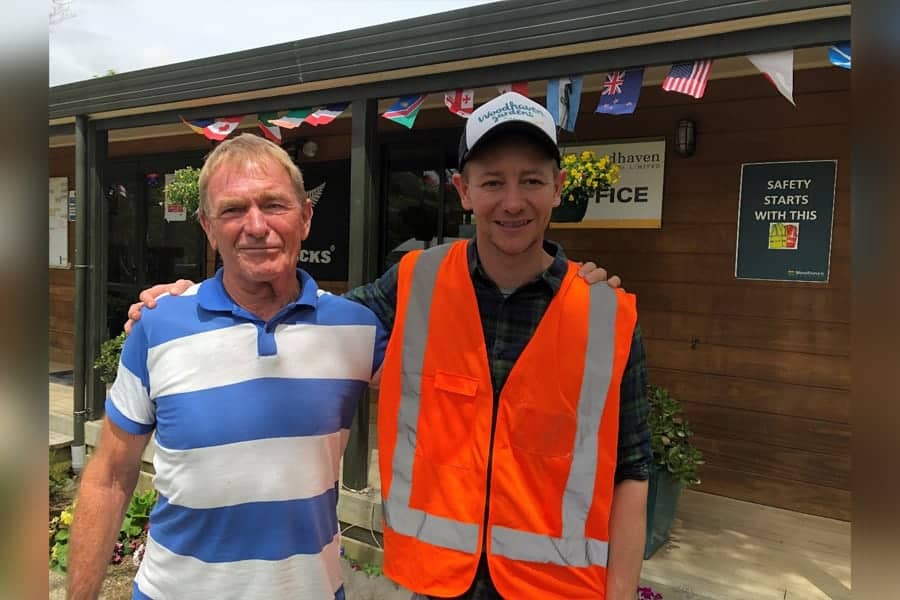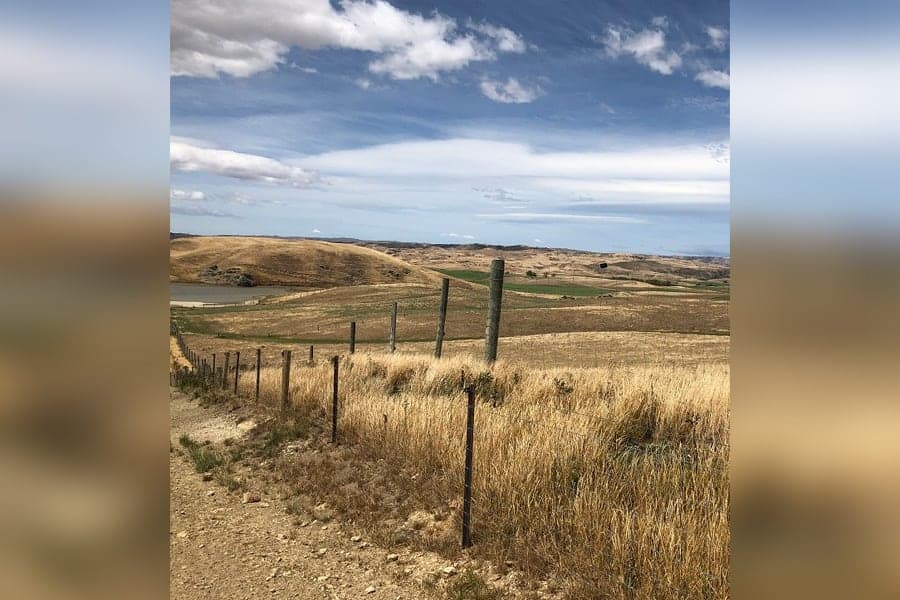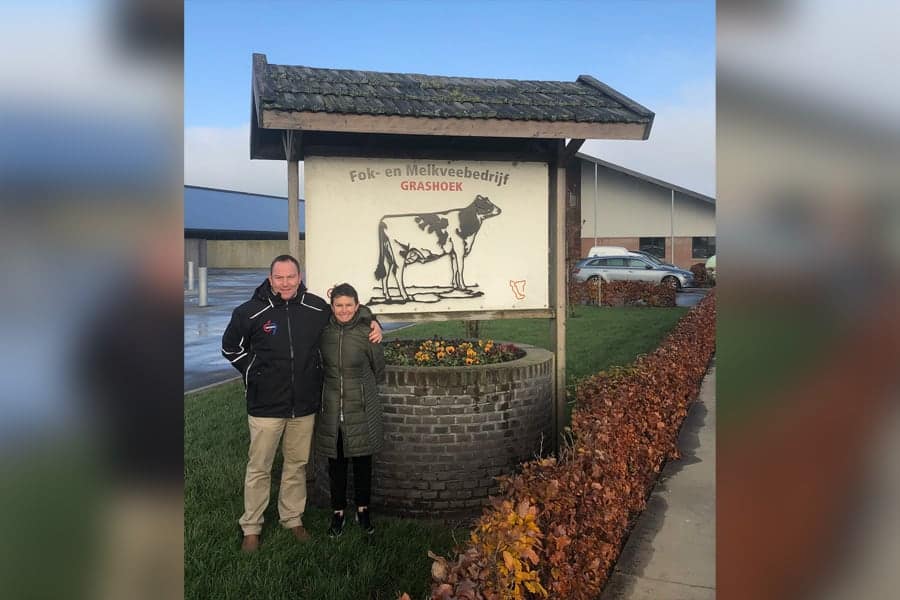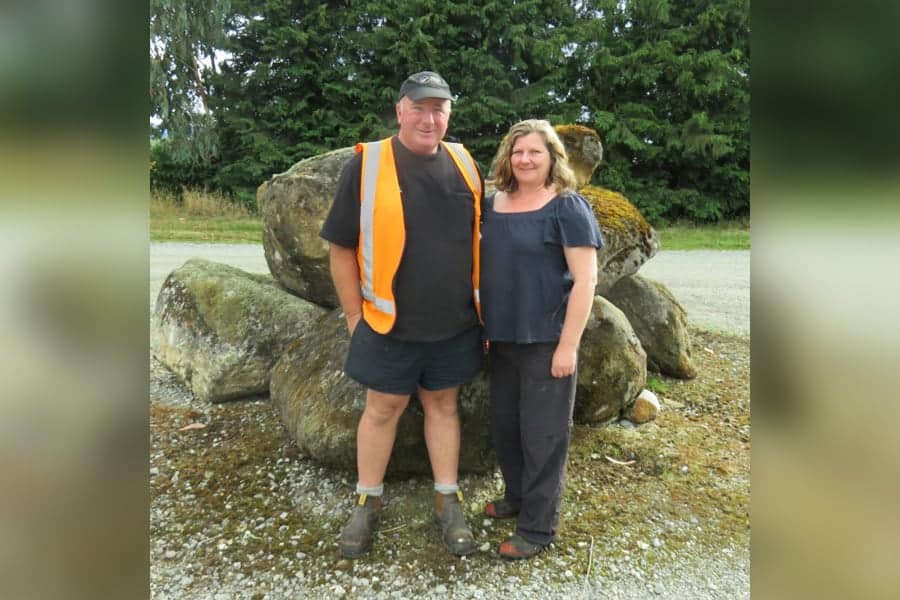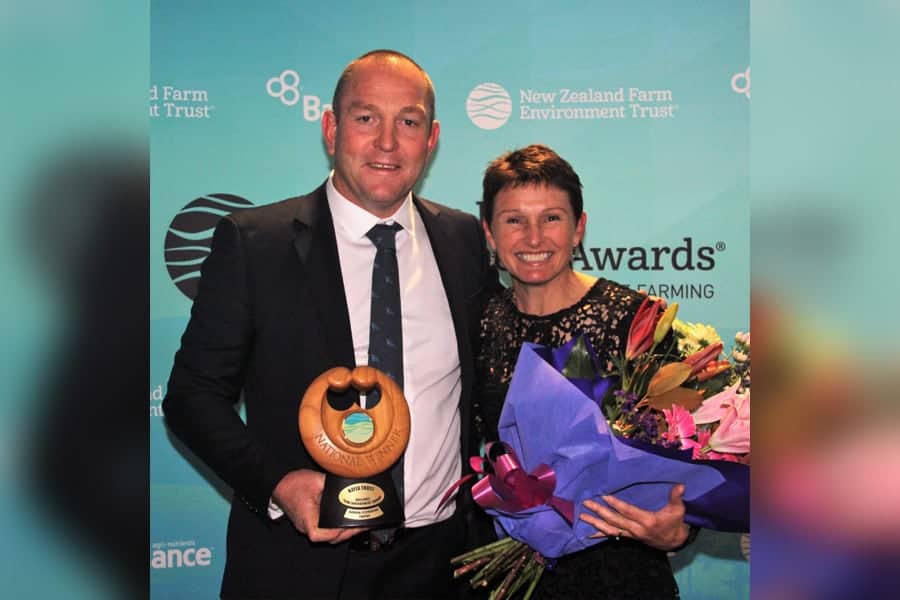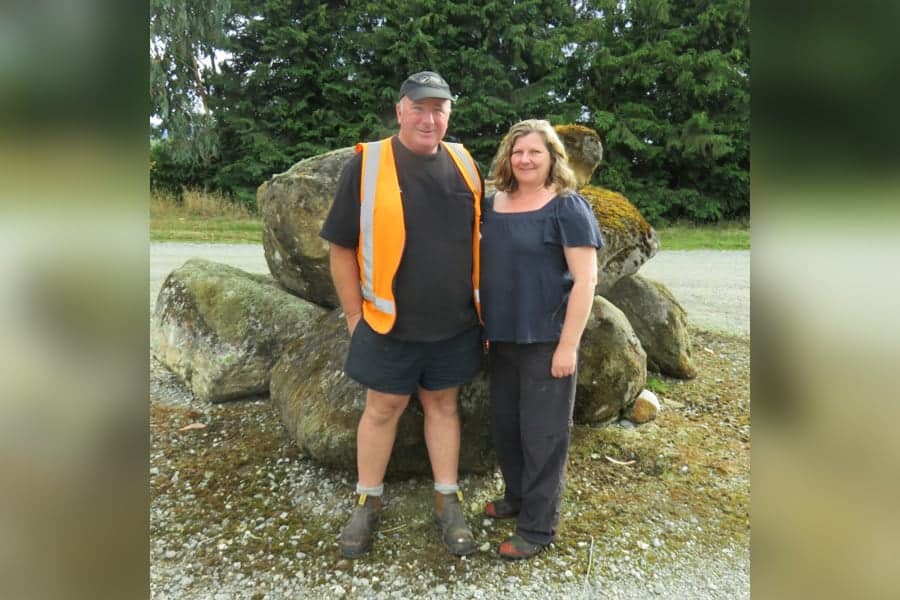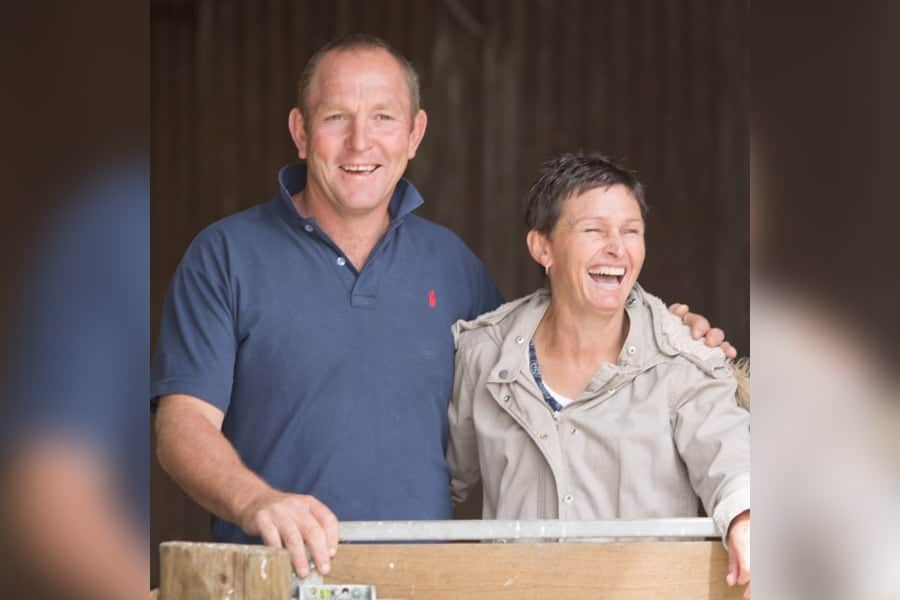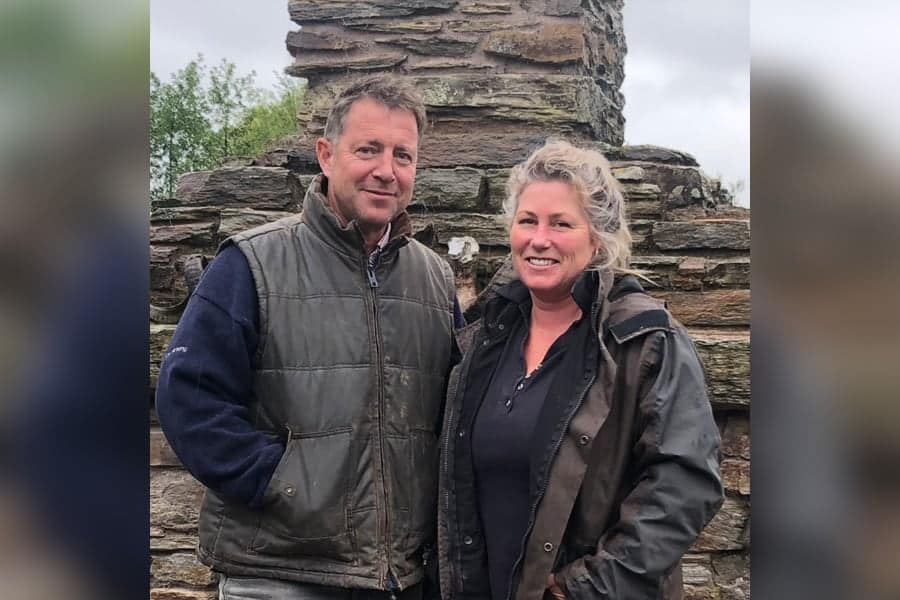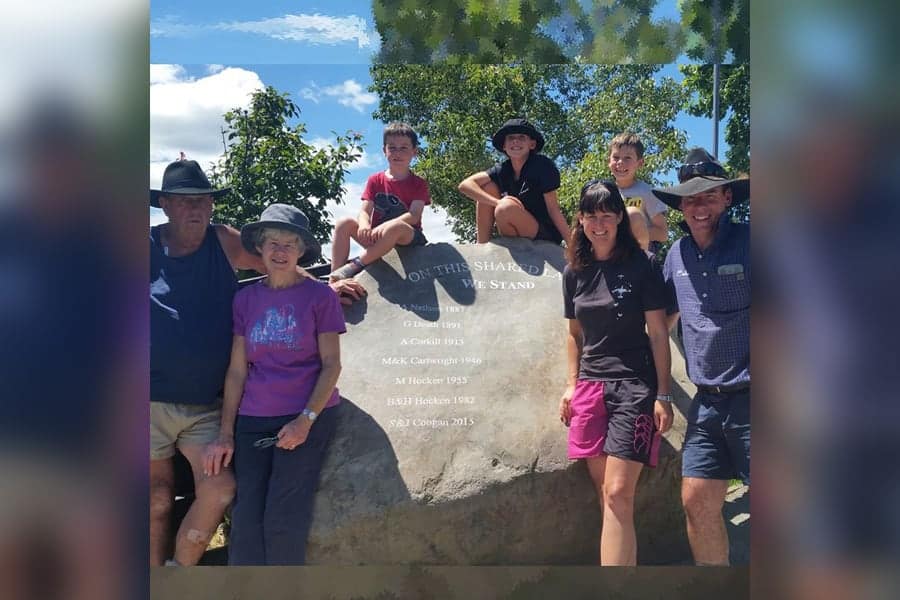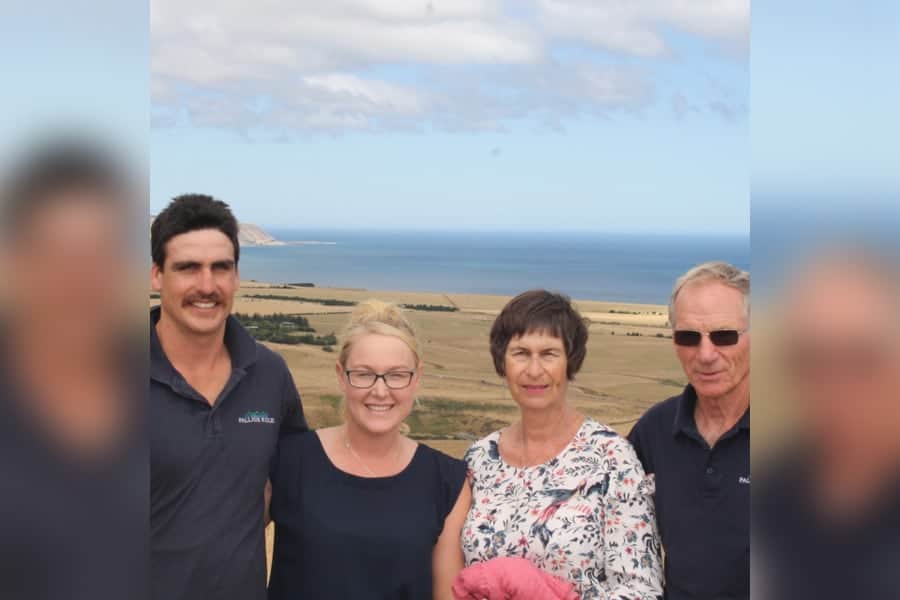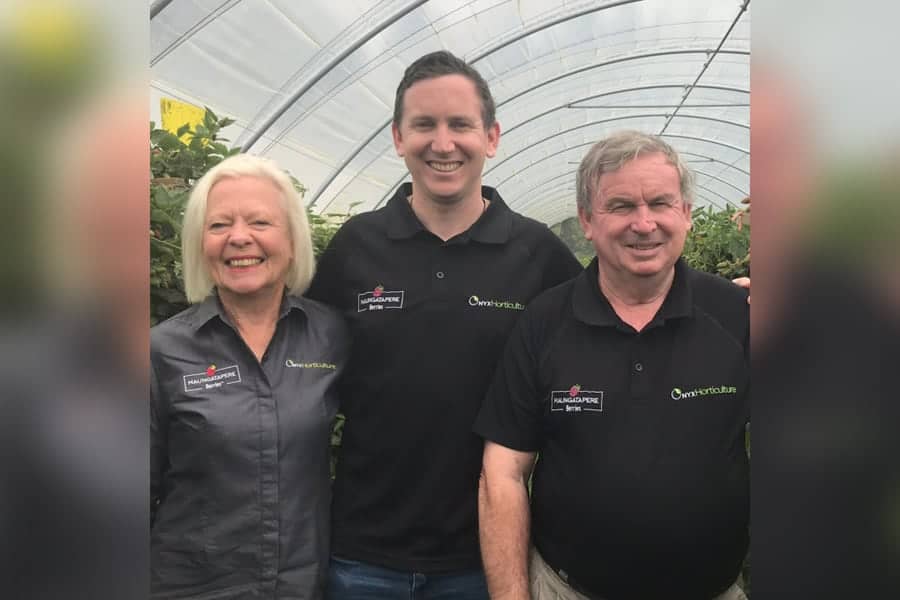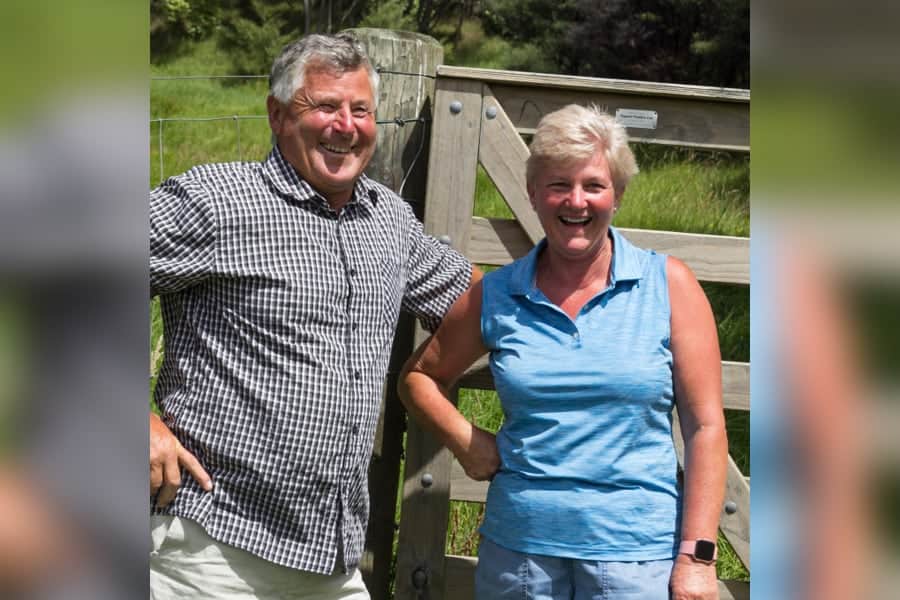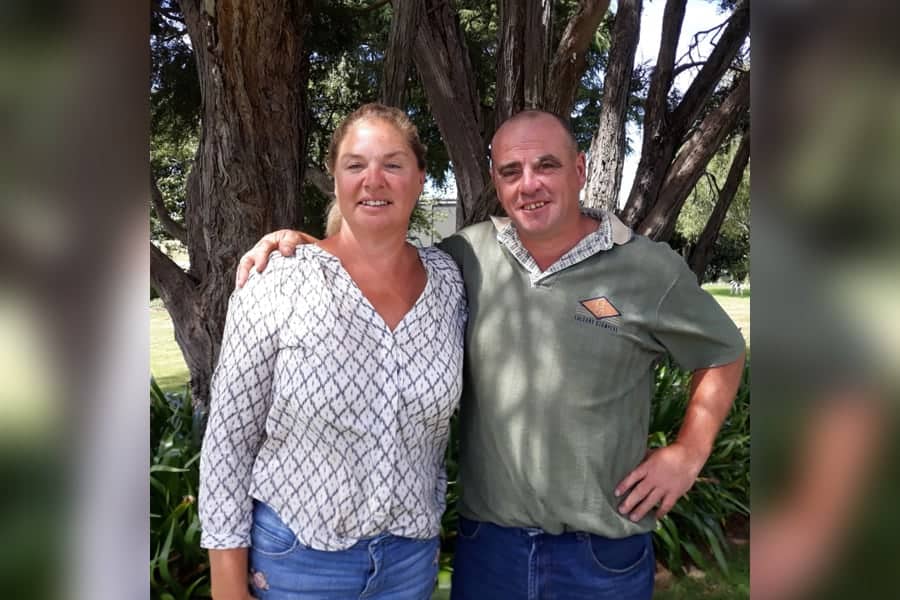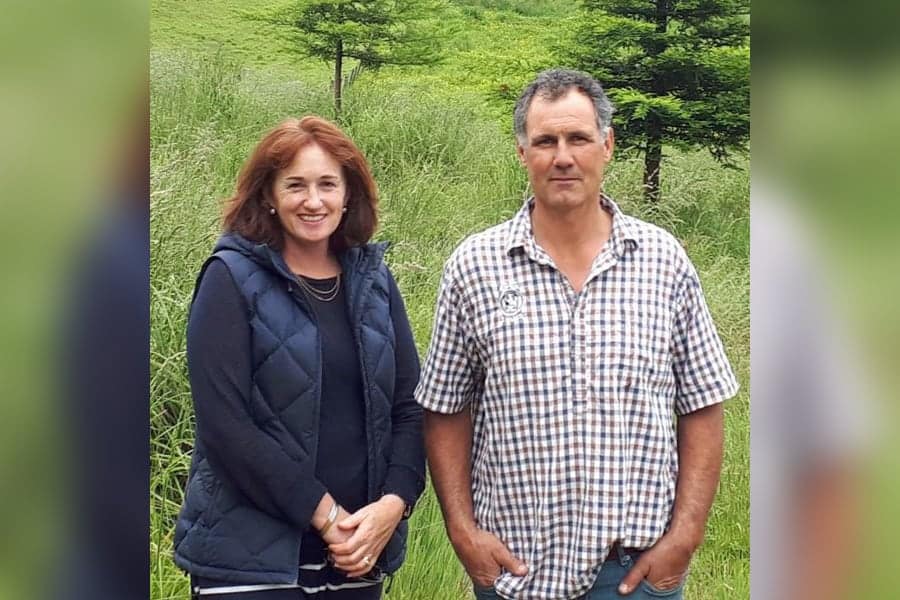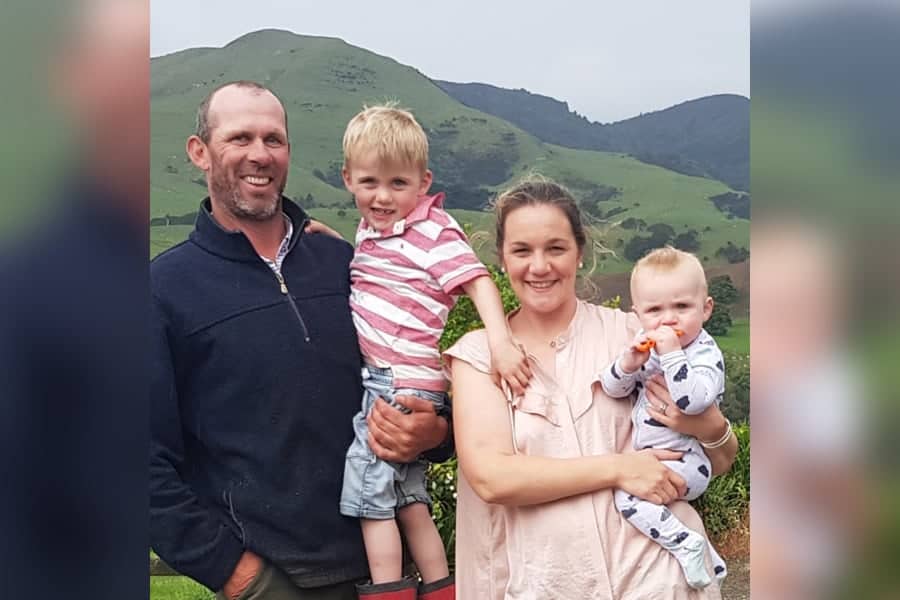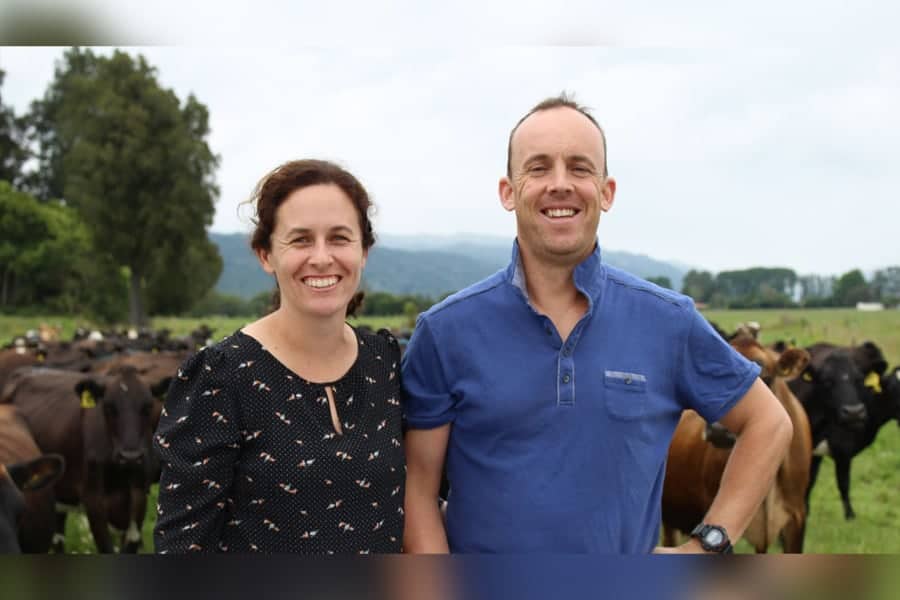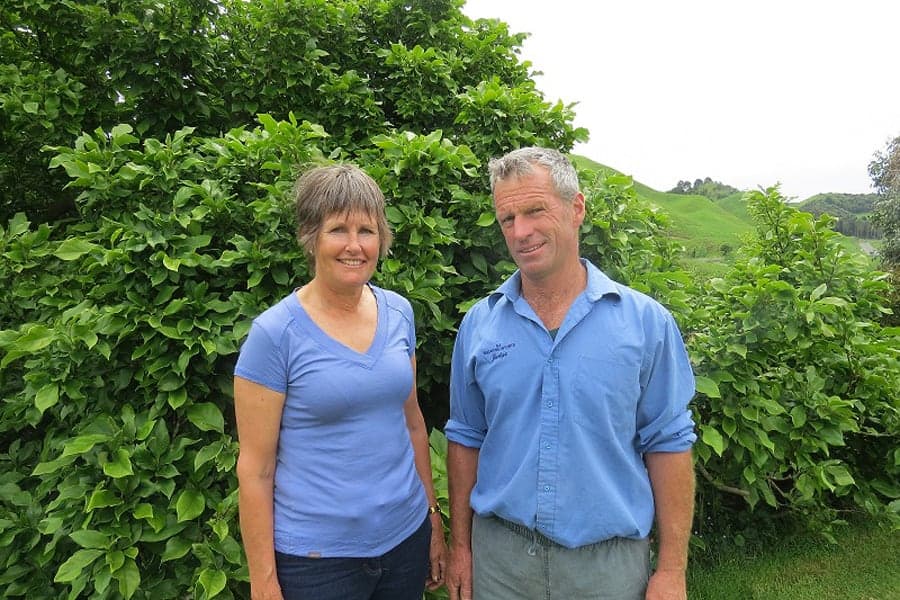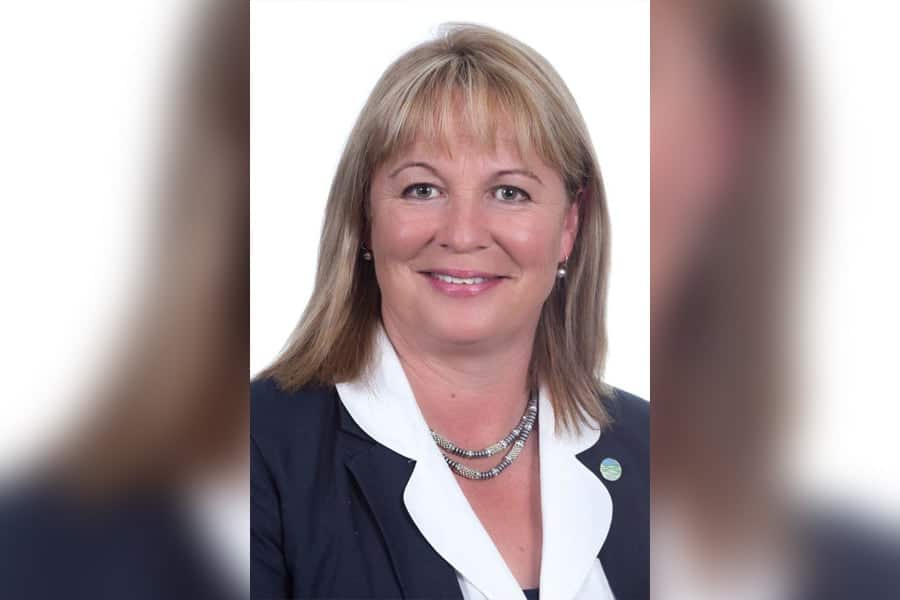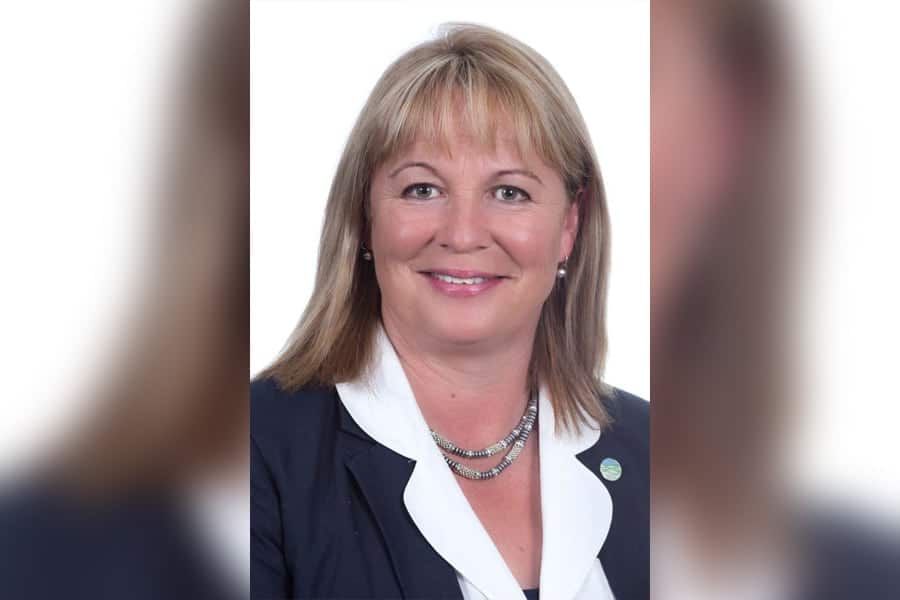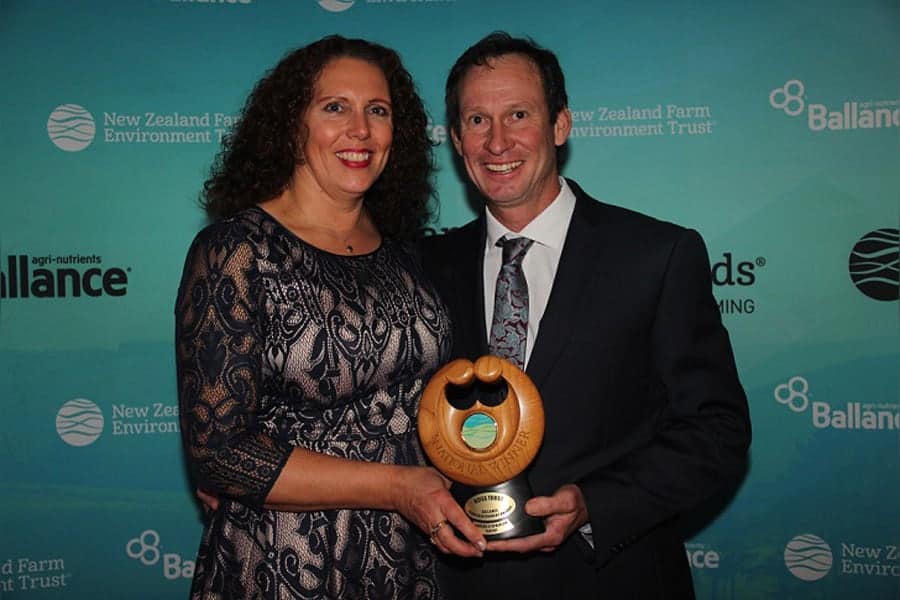The Dodunski’s holistic approach to dairy farming and their concern for both the dairy industry and the people who work in it were key contributors to their award success.
Ballance Farm Environment Award judges were impressed by the consistent stock performance achieved on the farm, the family’s use of benchmarking and monitoring and their focus on keeping the farm both environmentally and economically sustainable
Costs are closely scrutinised, debt levels are kept under control, and changes to inputs are made where practical.
A ryegrass-clover system is the basis of the grazing regime, with up to 28ha direct drilled into winter crop annually and then sown out into perennial pasture the following year. To achieve cost savings, no winter feed is made. However, small quantities of barley have been fed in the past two winters and there are reserves of silage and barley on hand to meet summer or winter feed shortages.
The McAtamneys original Coopworth flock has been crossed with some Finn and Texel and latterly stabilised with Kelso genetics. Other terminal sire options may be considered in the next year to achieve faster lamb growth rates. Their short-term objective is to achieve 160 percent lambing, when a further review of the genetic gain possibilities will be made.
The soil type is relatively free draining and compaction problems are minimised by avoiding overgrazing in wet periods. The natural lie of the land assists soil drainage and there are some tile and mole drains on the flatter paddocks.
Soil fertility is good across the property and nutrient levels are monitored annually. Some nitrogen in the form of urea is used to boost growth on first and second year pastures. The Overseer programme helps keep a check on nutrient levels and assists in determining fertiliser type and rates.
Gullies have been planted in pine and macrocarpa. These plantings provide shelter for the neighbouring paddocks and help keep stock out of waterways. Several of the steeper gullies that contain kanuka, manuka and other native scrub species are well managed with minimal grazing. The regenerating scrub, like the forest areas, also provides good shelter and this is especially valuable for the ewes after winter shearing.
The McAtamney family has an impressive involvement in their community through Lions, indoor and outdoor bowls, rugby, Plunket, netball, school and the Clutha Sheep Council.
Between 1996 and 1999, the property was a monitor farm. This experience exposed Simon and Terry to new ideas – such as the value of monitoring, better record keeping and benchmarking – and resulted in management changes and new challenges.
They also won the PPCS Livestock Farm Award
Other award winners were:
Hill Laboratories Harvest Award, Rippon Vineyard and Winery – Nick Mills & family
PGG Wrightson Habitat Improvement Award, Howard, Elizabeth, Liz and Brian McGrouther
Gallagher Innovation Award and Ballance Nutrient Management Award, Craigs Poultry Ltd – Brent and Bridget Craig
Otago Regional Council Sustainable Resource Management Award, Ross and Sonia Lyders
A field day will be held on the McAtamney farm, Tattenham, R D 4, Balclutha, on May 14 from 11.45am.Their operation, Kapua Farms, milks 900 cows on a 320ha milking platform and produces around 385,000kg of milksolids a year. David and Kay also rear 850-950 calves annually and graze 150 rising two-year heifers on the farm for two to five months. In 2005/06 the farm achieved an operating surplus of $2600/ha.
Among the first North Island dairy farmers to move south and convert to dairying, the Dodunskis have adopted a “triple bottom line” farming philosophy that encompasses social, environmental and profitability goals. They operate a total quality management programme and have put in place management plans focused on achieving total sustainability. These plans are continually reviewed.
Ballance Farm Environment Award judges noted the low labour requirement of the operation and were impressed by the Dodunski’s strong family focus and “team approach” to staff management.
The Dodunskis draw on the expertise of a wide range of specialists and are quick to take up advice they believe will benefit their operation.
As members of the Dairy Green project, the Dodunskis were pioneers in trialling the use of the low application rate, K-line system for effluent disposal. Effluent is held in a large storage pond and only spread via the K-line when soil conditions are adequate to prevent leaching into groundwater or runoff into open drains.
Open drains are not sprayed. Weeds and grasses are allowed to grow and this combined with other plantings helps to filter runoff and mitigate any adverse effects on the quality of water leaving the property.
Each year 2-3c/kgMS is spent on tree plantings and last winter 2000 trees were planted on the property.
Dairy farms have a high water usage and to reduce the risk of waste, all water on Kapua Farms is metered. This enables leaks or breakdowns to be quickly identified and repaired. Recycled water is also used to wash down the yards, reducing water usage and costs.
David delegates responsibility to his staff members who have clearly defined roles. The farm is split into two blocks and herds, each under the control of one staff member, while a third has responsibility for the farm dairy operation. This gives staff a “buy-in” to what happens on the farm.
The goal is to provide staff with motivation, opportunity and direction to grow their personal abilities and performance. Each winter David travels to different regions of the country to glean new ideas from other innovative farmers and businesses. “Knowledge is one of the most important things in life,” he says.
Award judges were also impressed by the Dodunski’s pasture and nutrient management. Pastures on Kapua Farms have high clover content, and the quality and growth of these pastures is maintained by grazing to a residual level rather than a specific time. The Overseer model is used for nutrient budgeting and fine-tuning nutrient requirements. T
Family time is important to the couple and they take six to eight weeks off farm each year.
David says they are constantly reviewing their strengths and weaknesses and always looking to the future. “We love the land and looking after it.”
Along with the Supreme award they also took out the LIC Dairy Farm Award, the Ballance Nutrient Management Award and the Southland BFEA Water Quality Award.
Other 2007 Winners are:
PPCS Livestock Farm Award, John and Liz Chittock – Jeff Farm
Gallagher Innovation Award, Andrew Speight – Branxholme Cow Company Ltd
PGG Wrightson Habitat Improvement Award, Mark and Leanne Buckingham – Rowellen
Hill Laboratories Harvest Award, Allan and Jennifer Taylor – Oakridge Farm
A field day will be held on David and Kay Dodunski’s Supreme award-winning farm on May 10, starting 11am.

